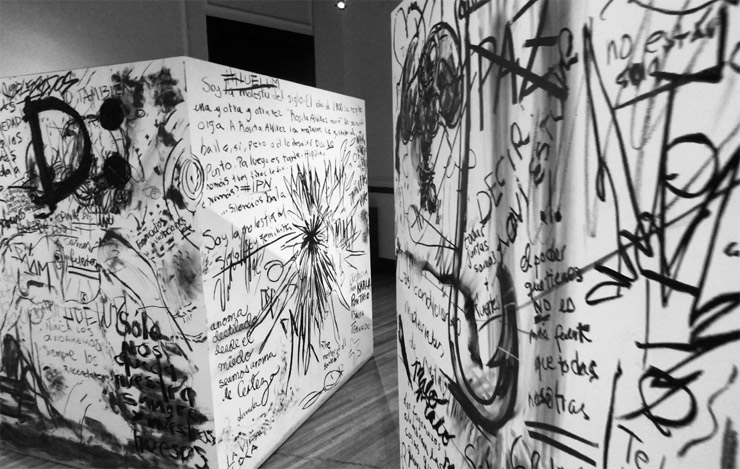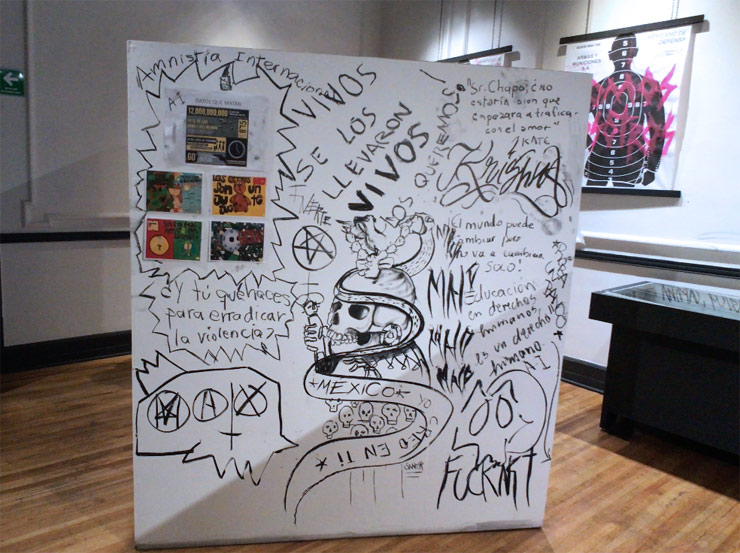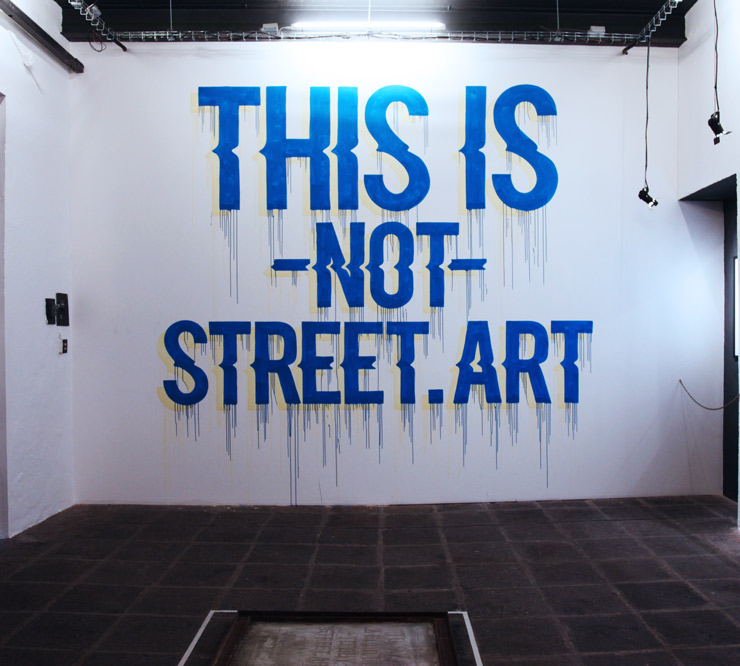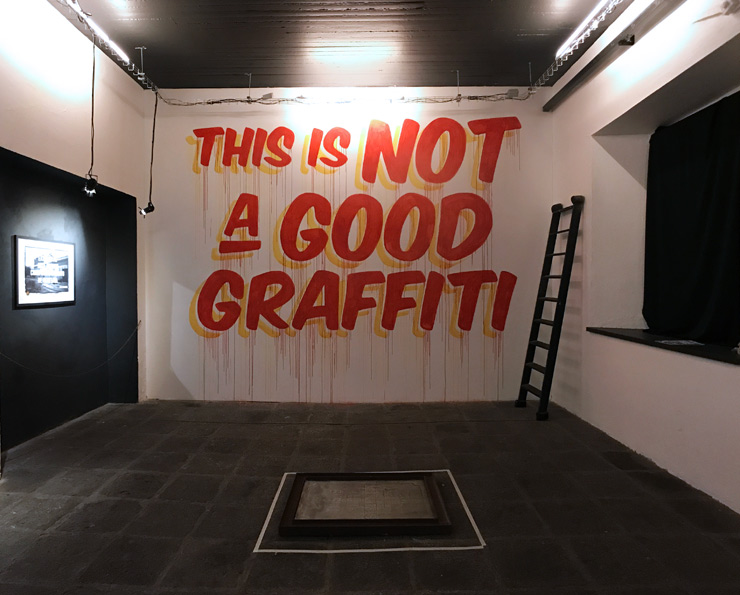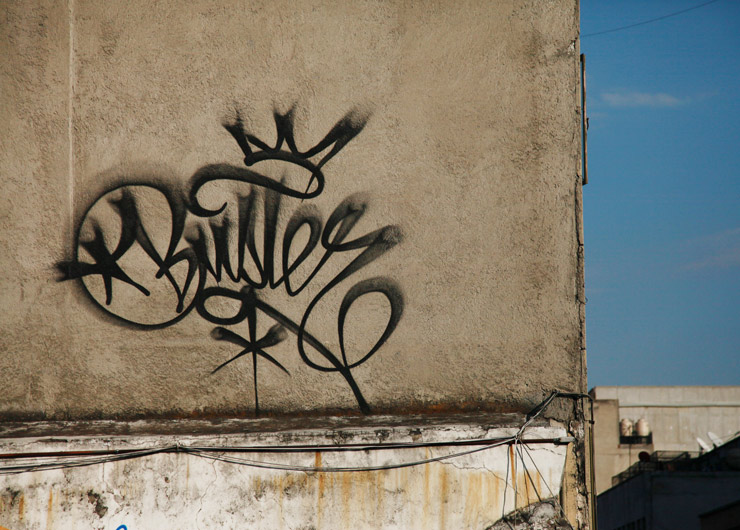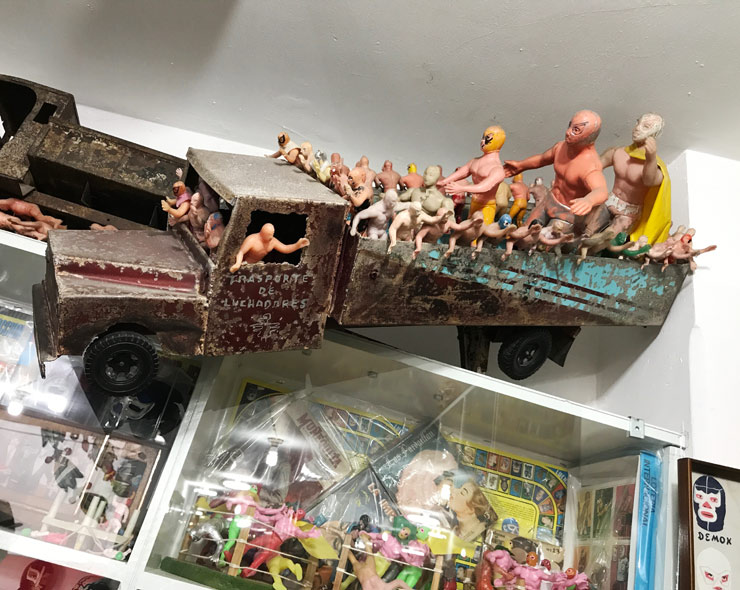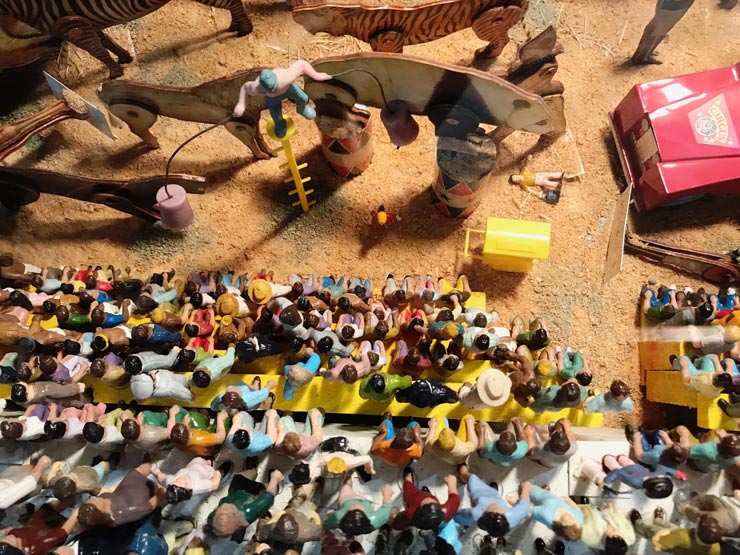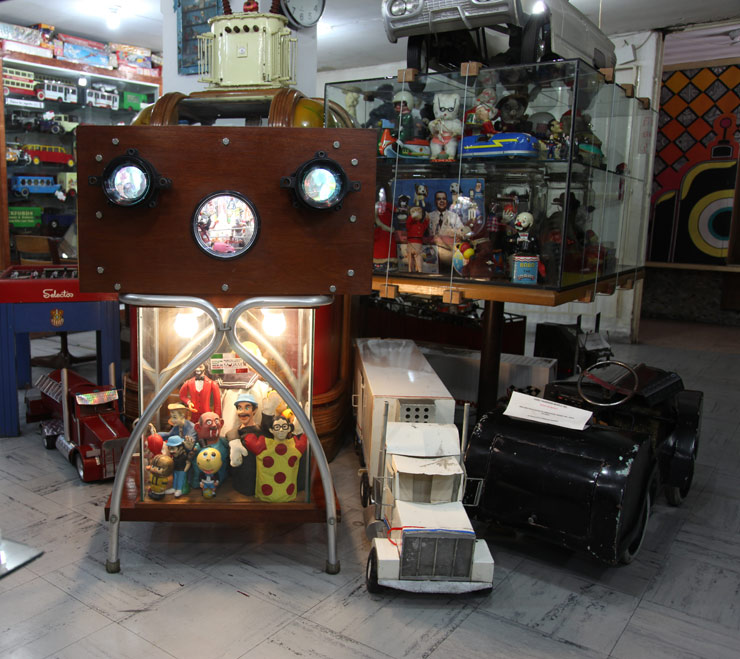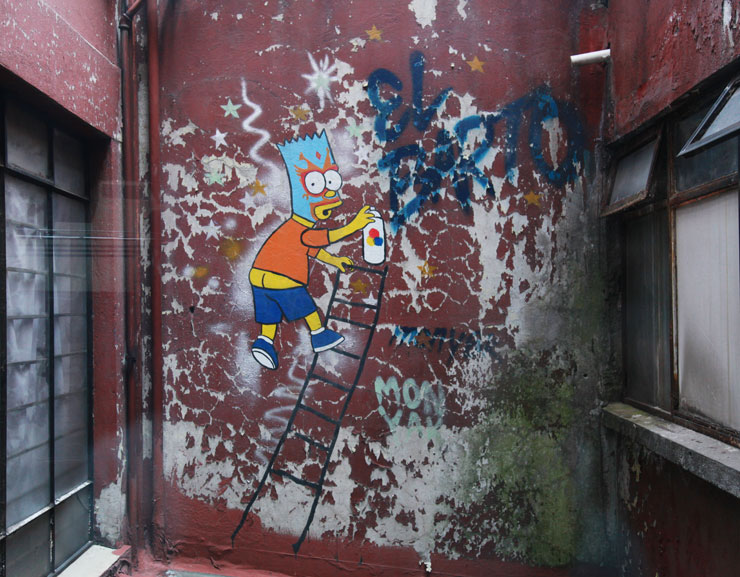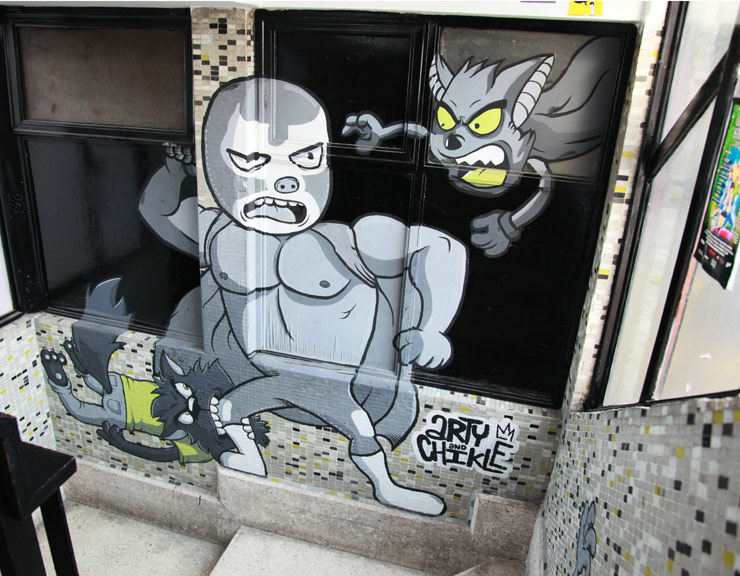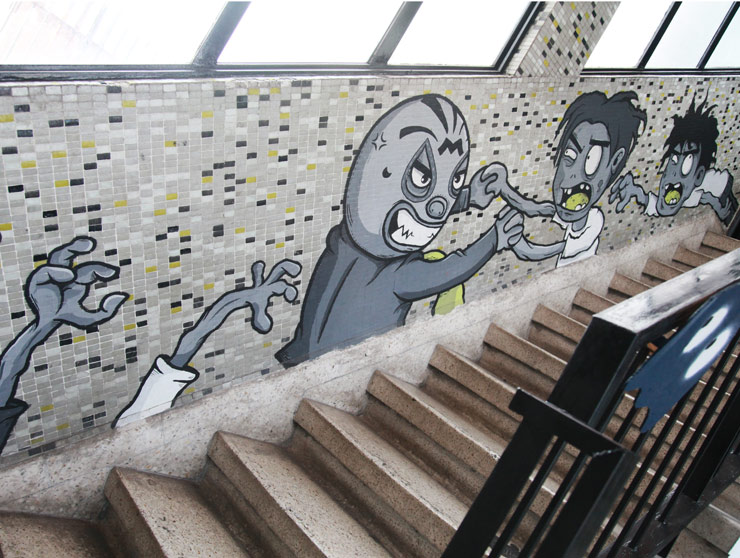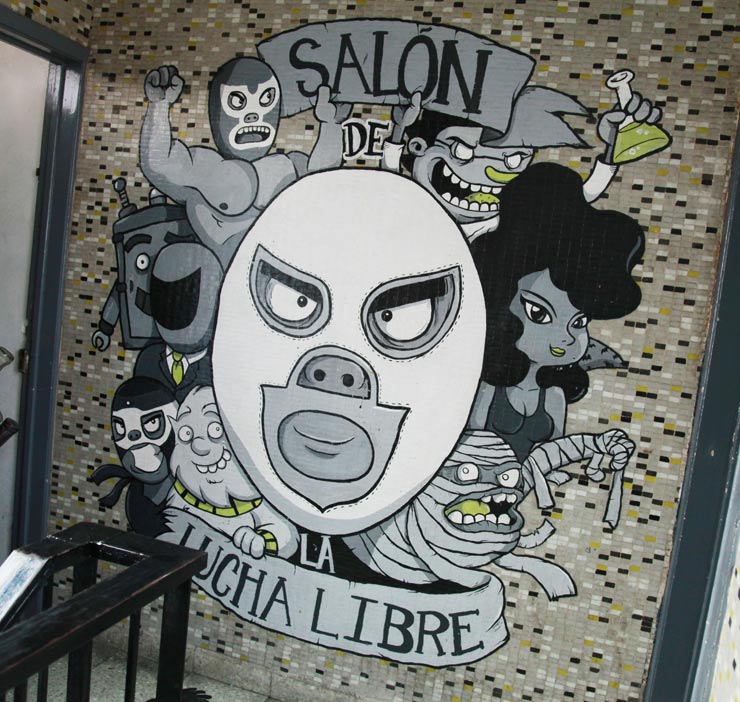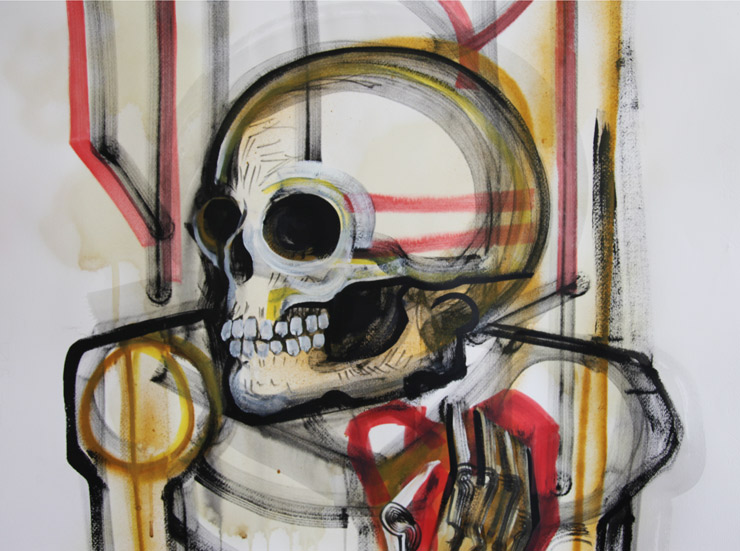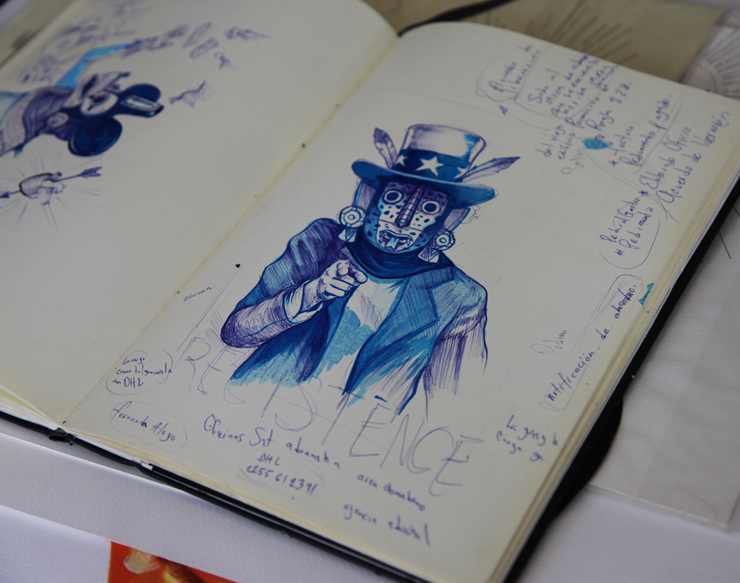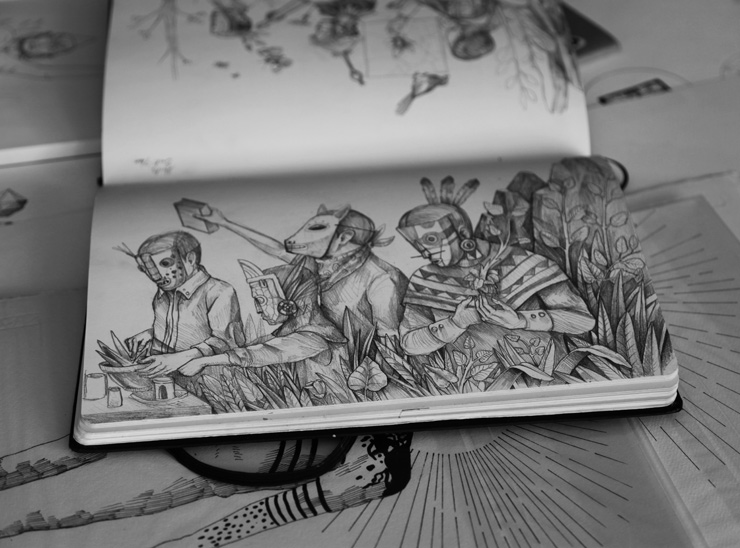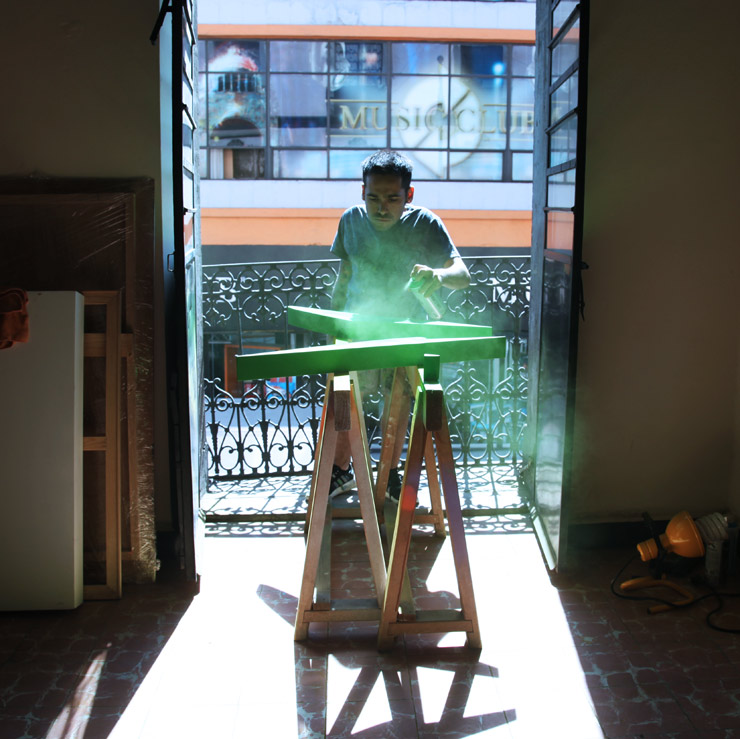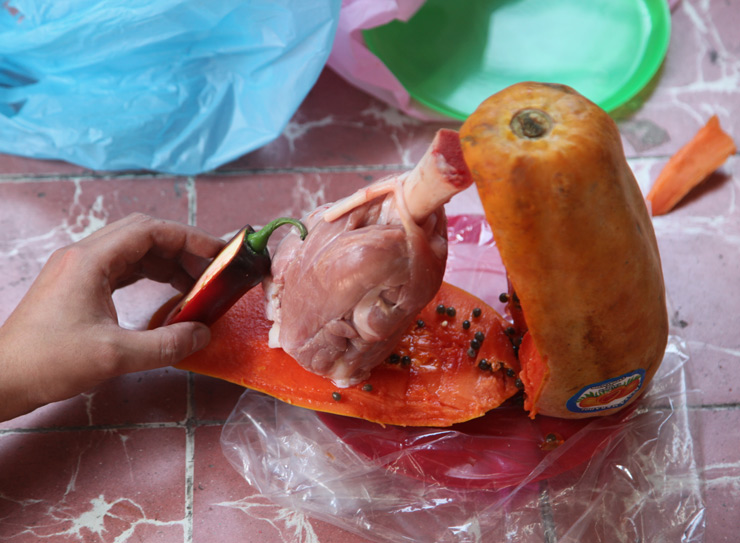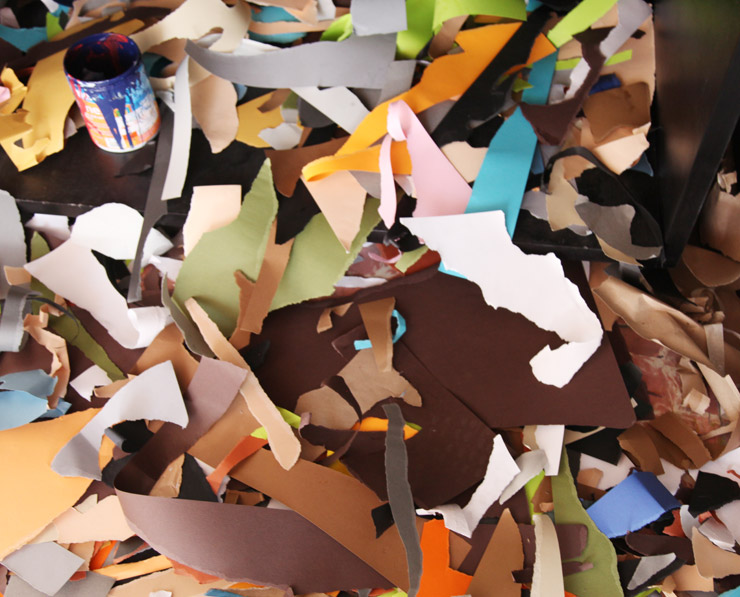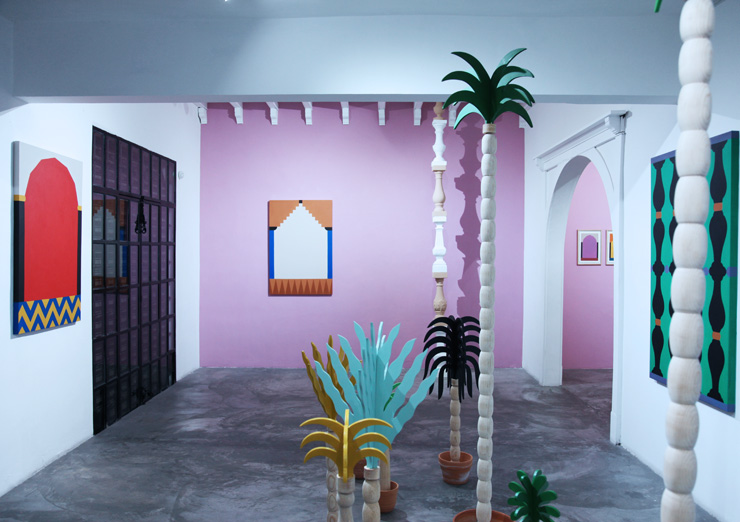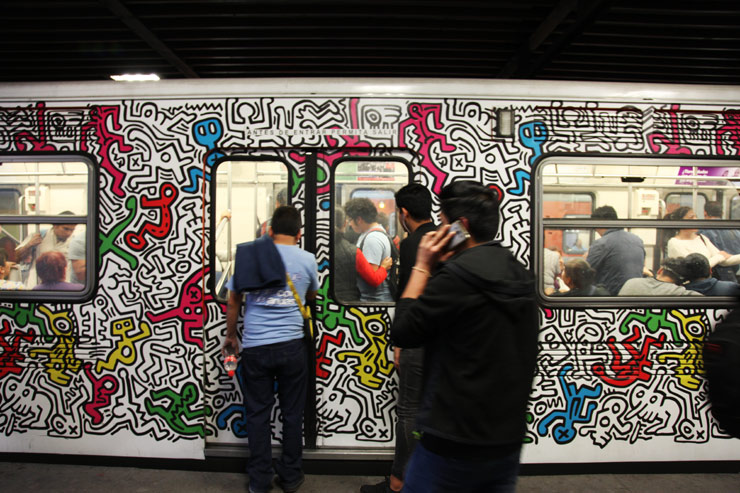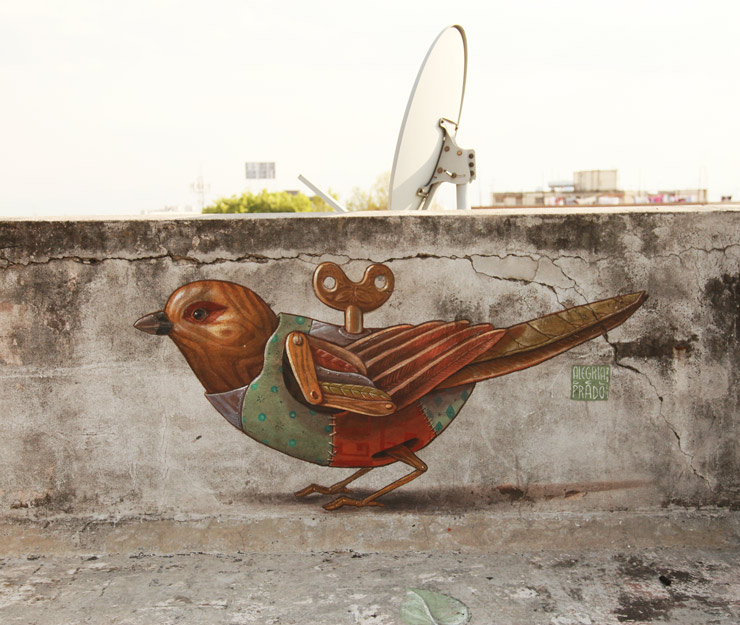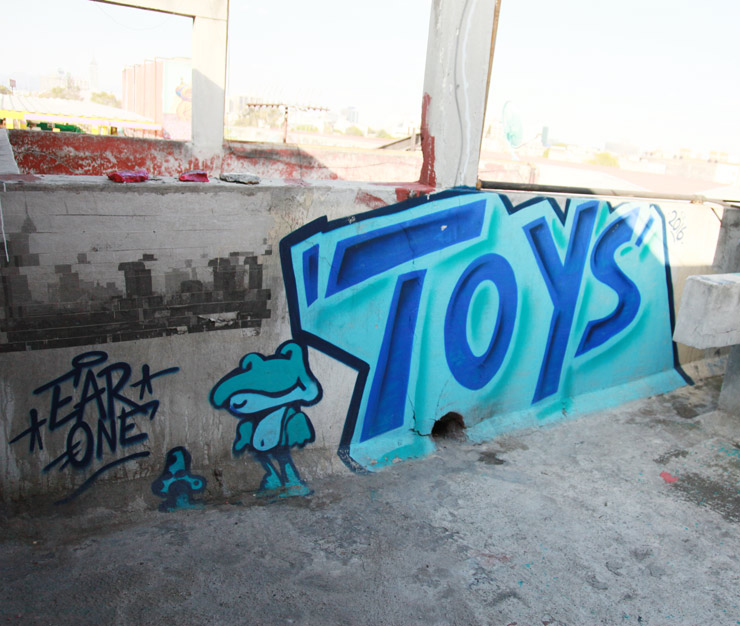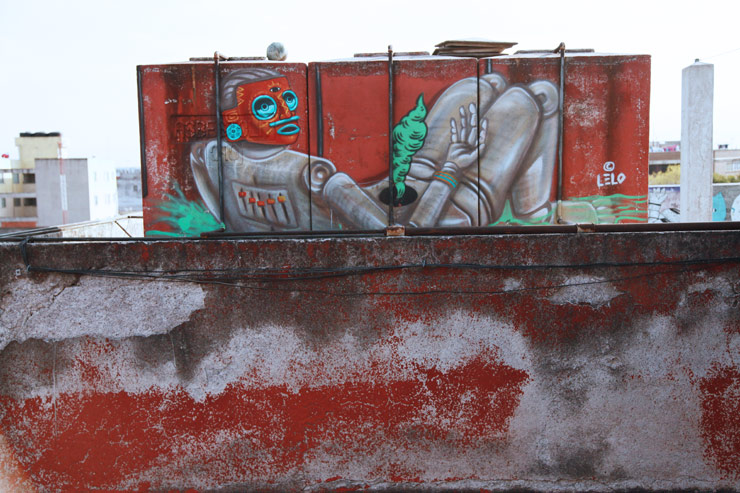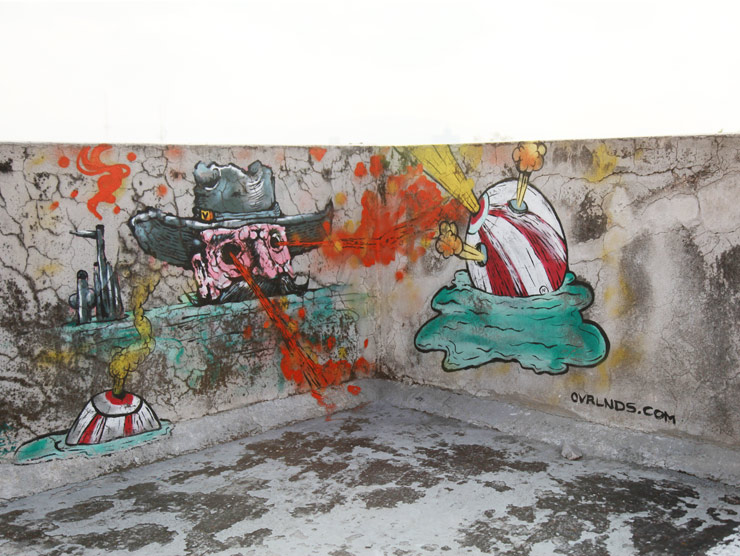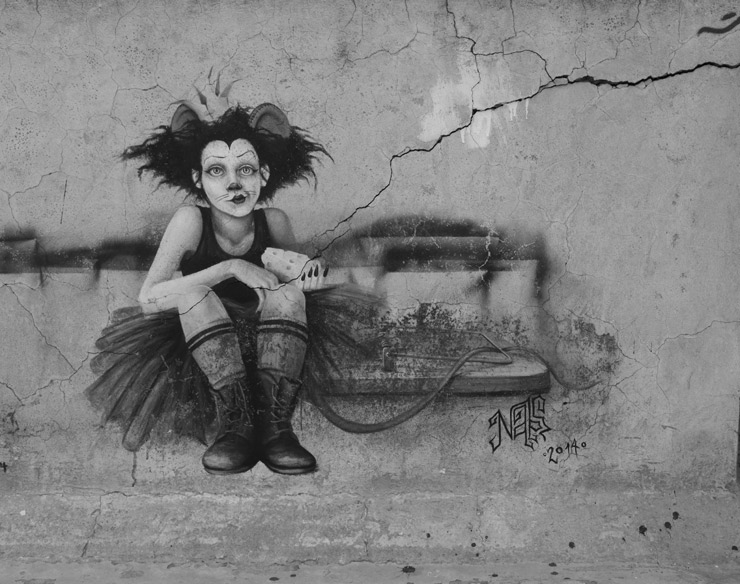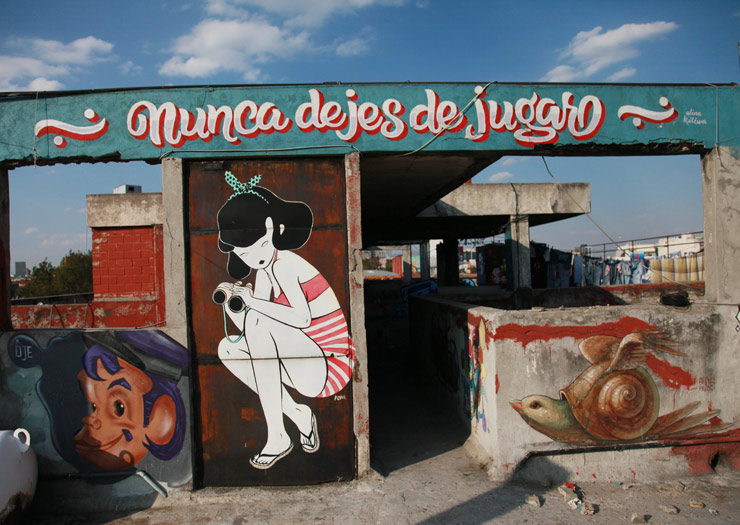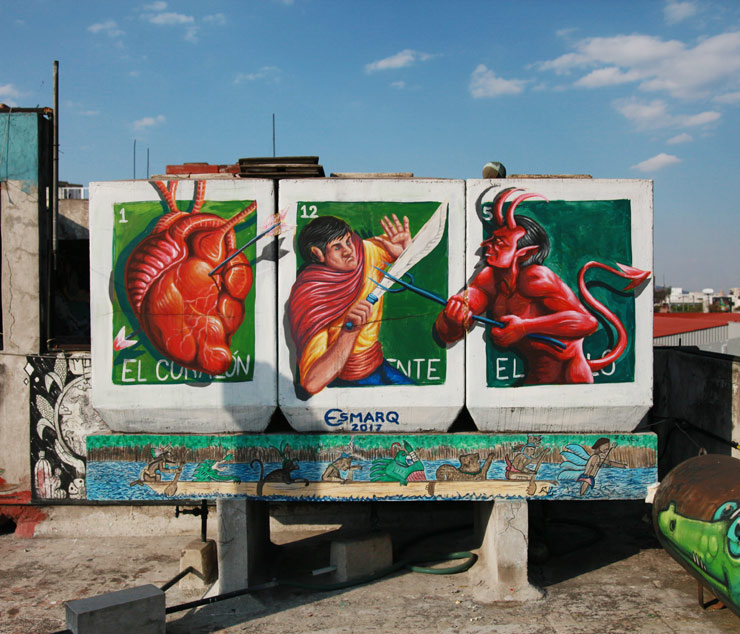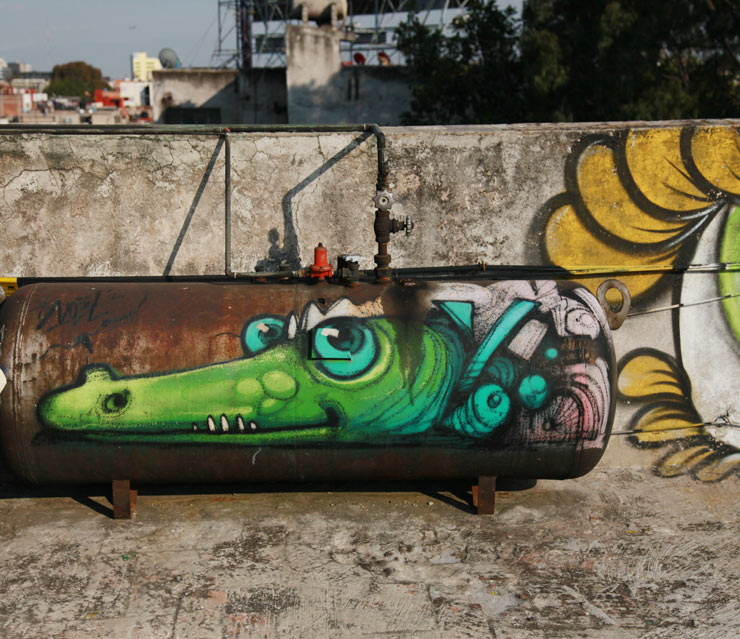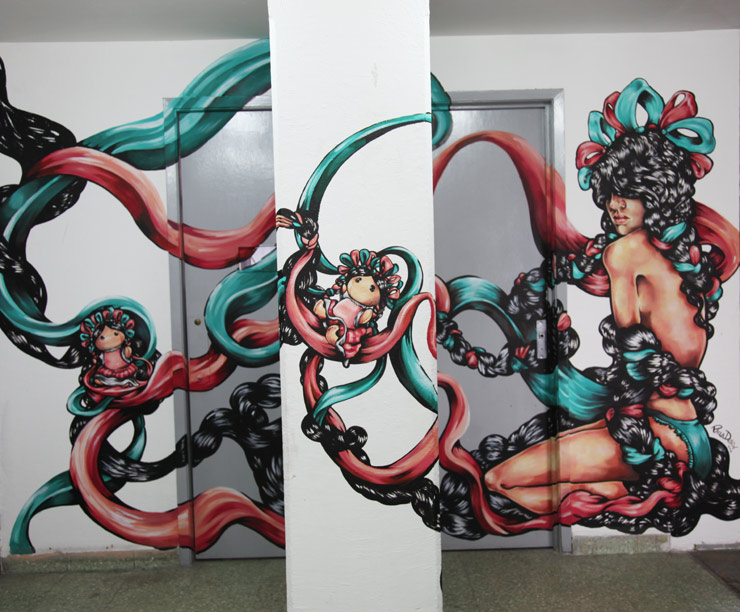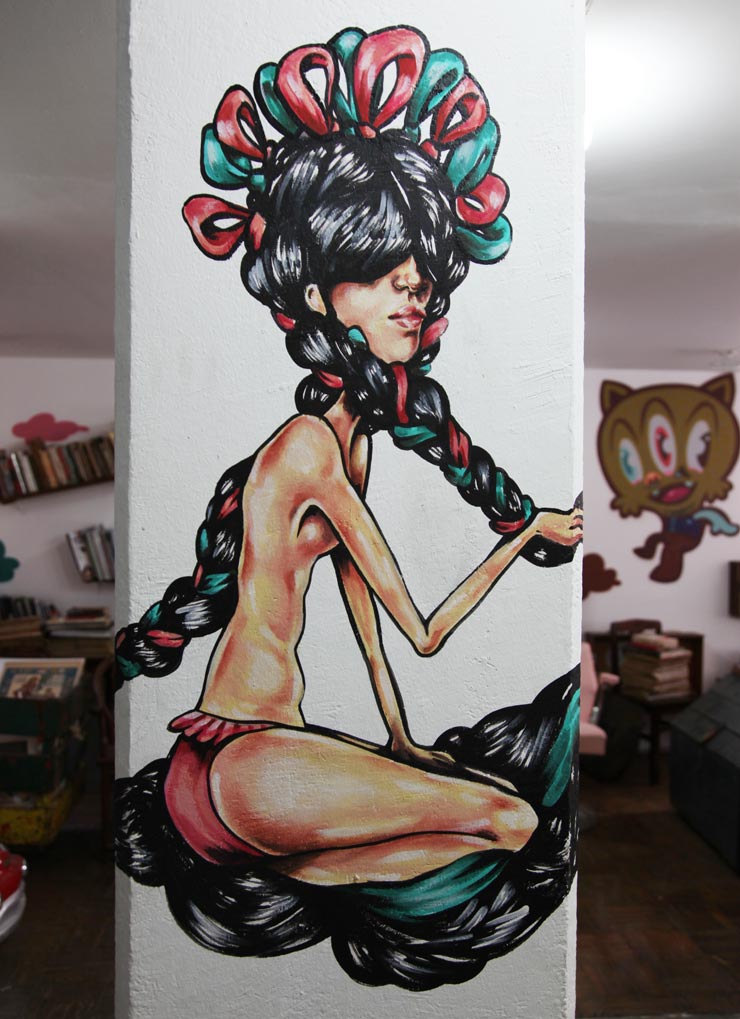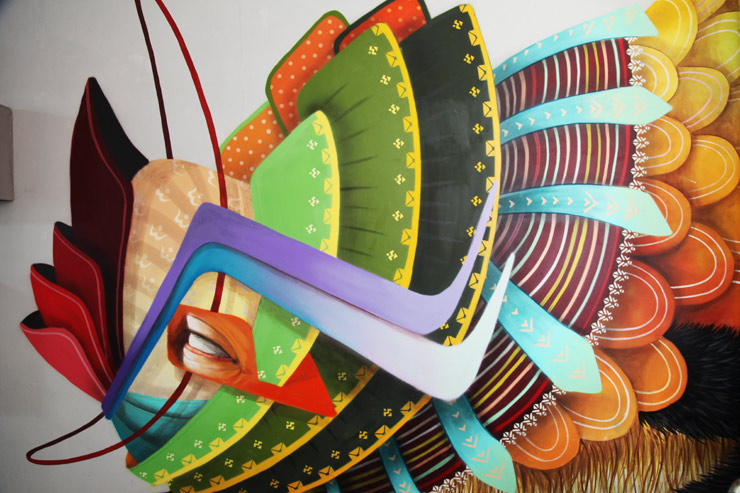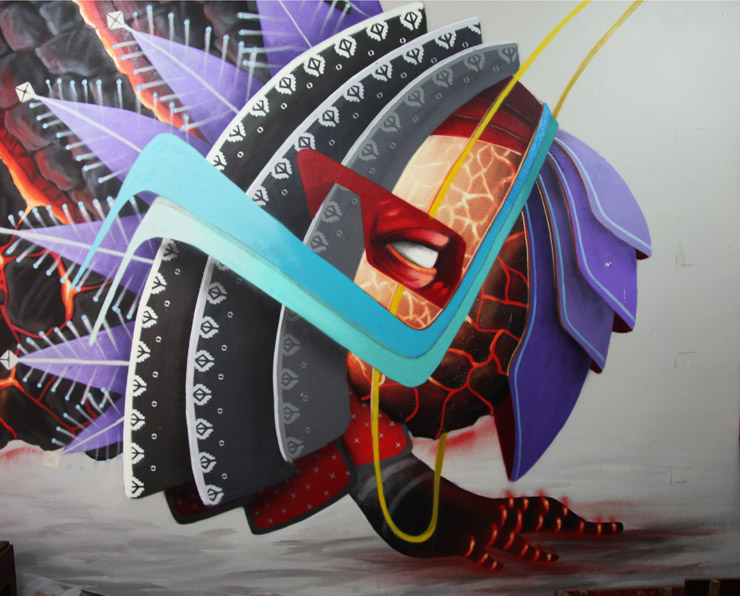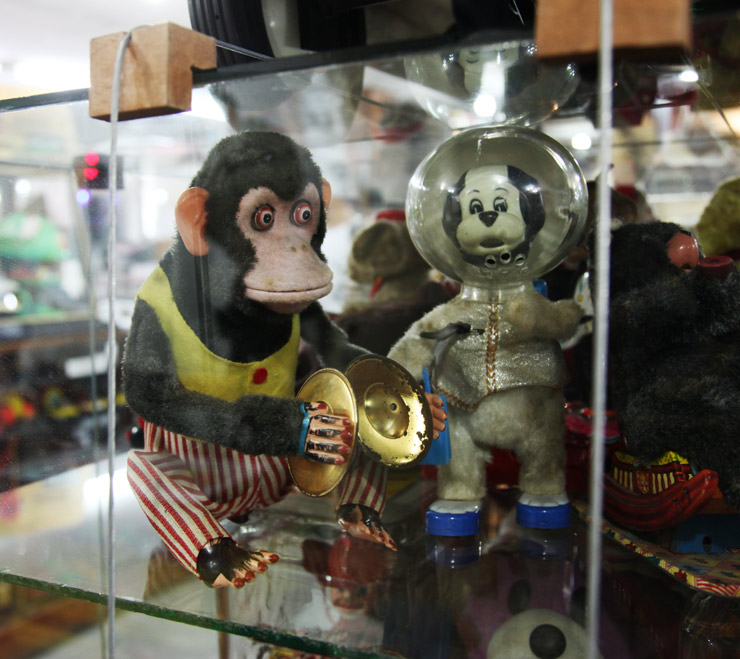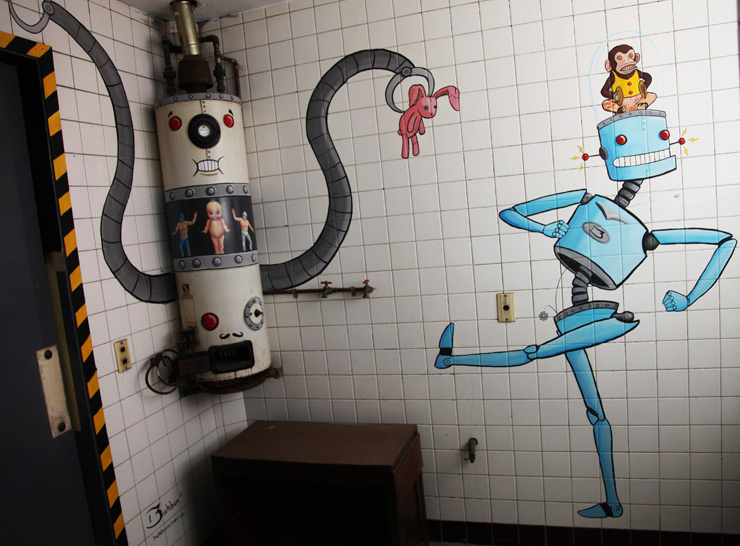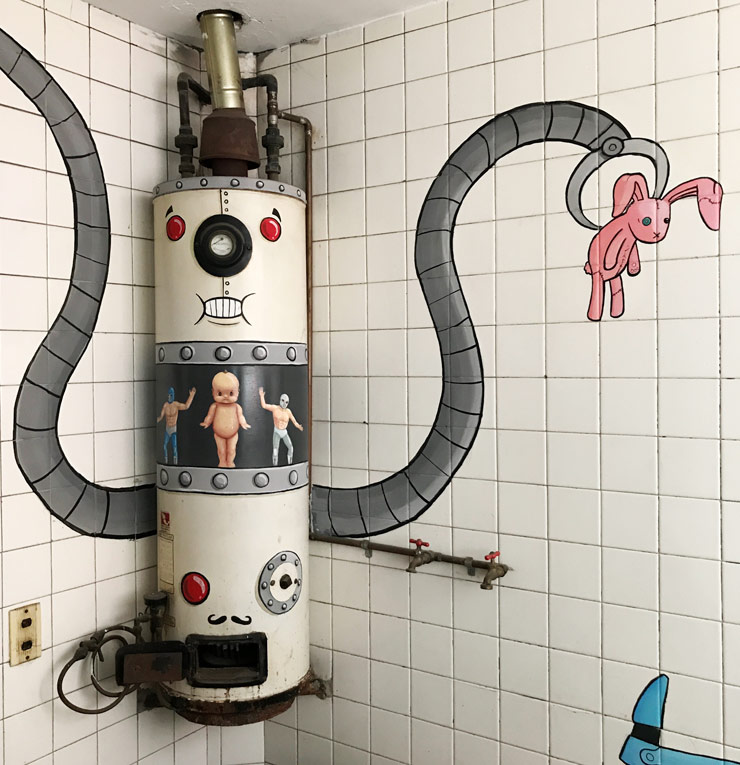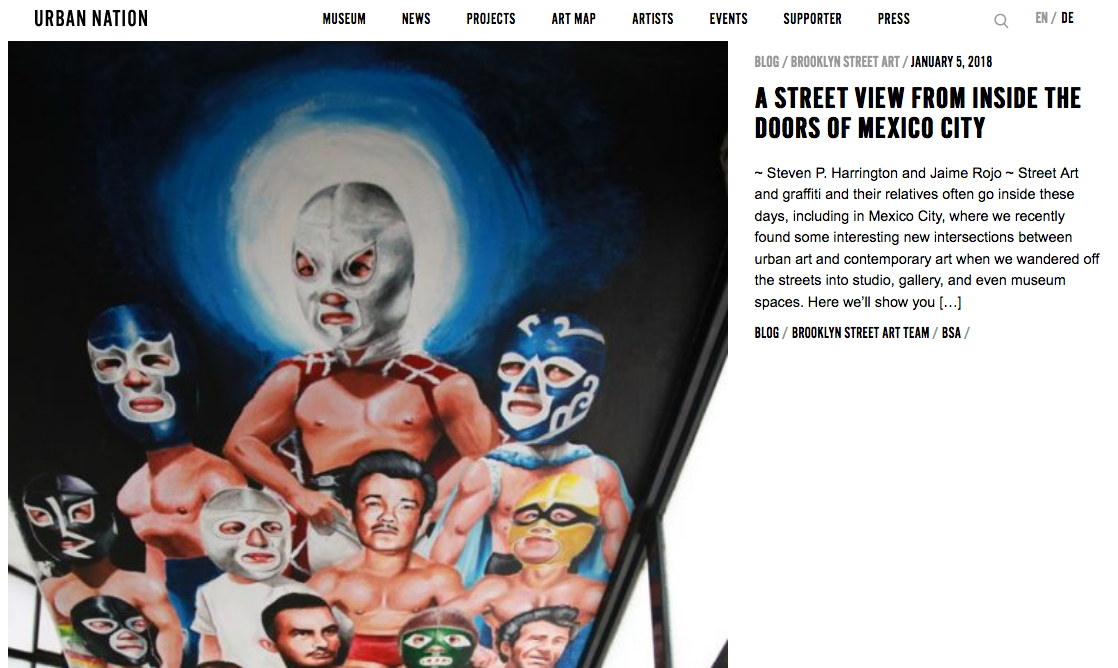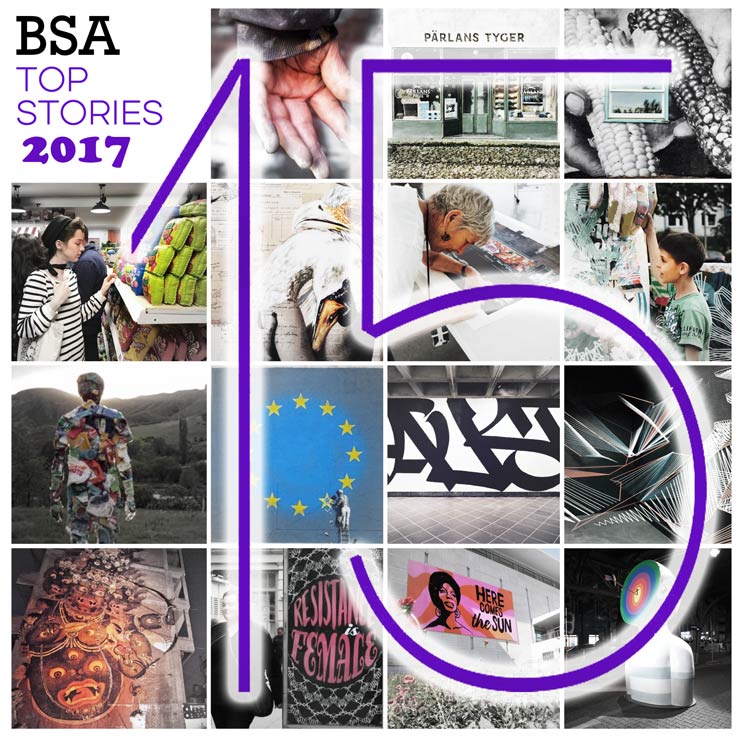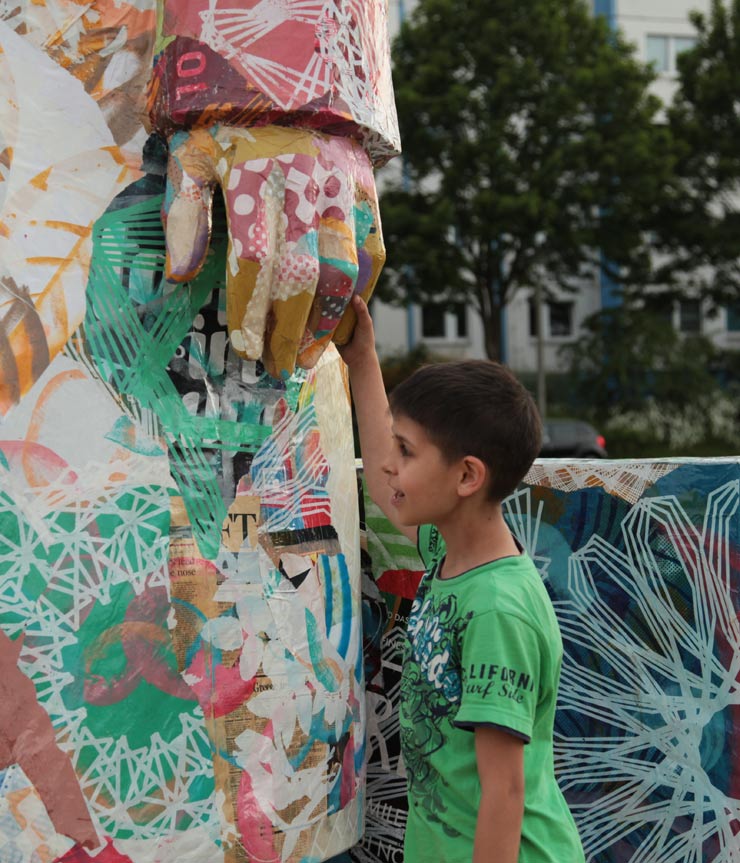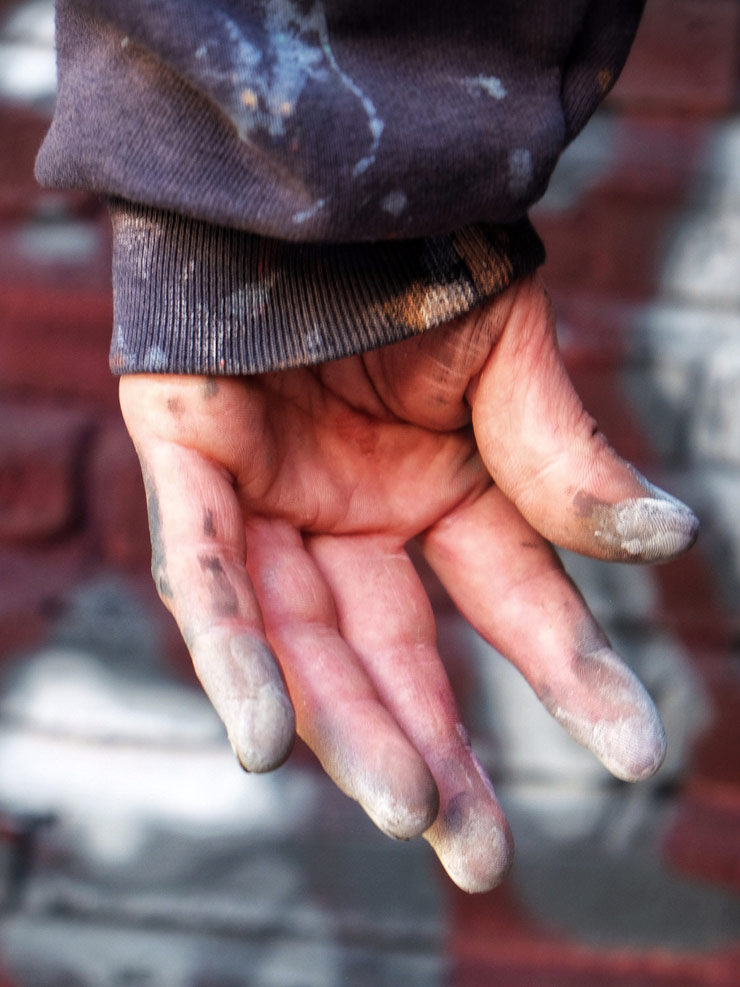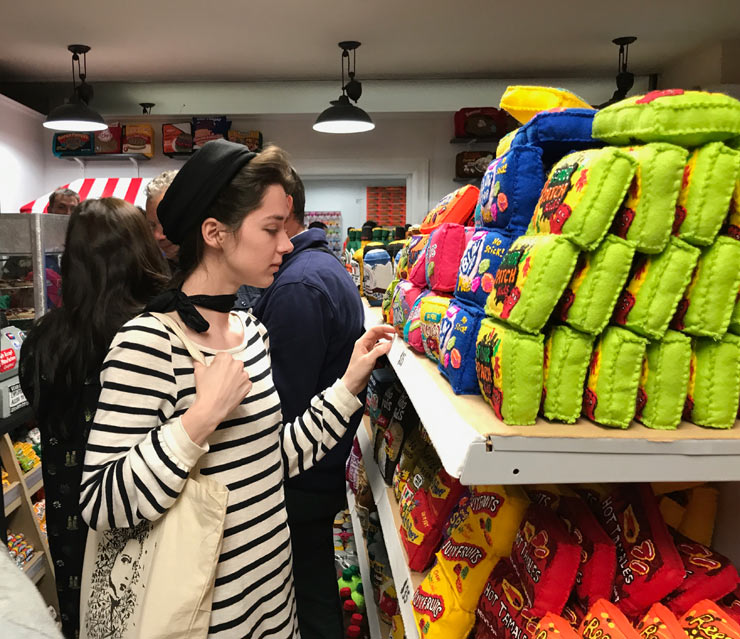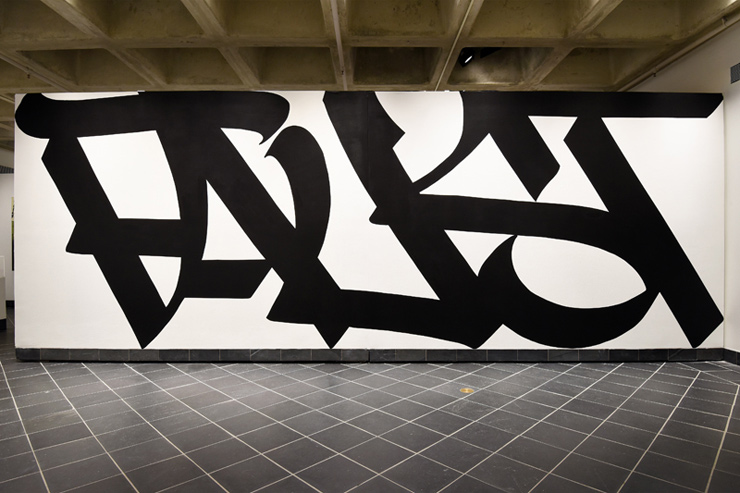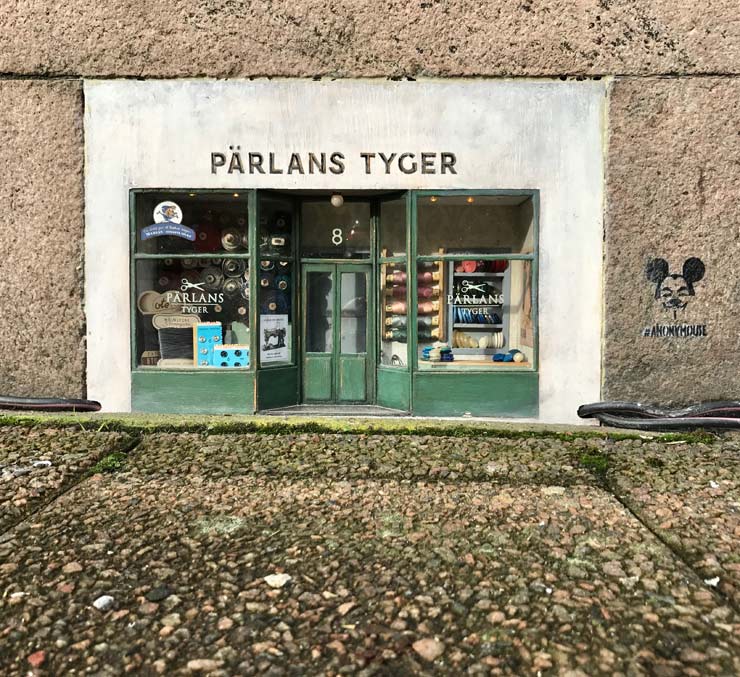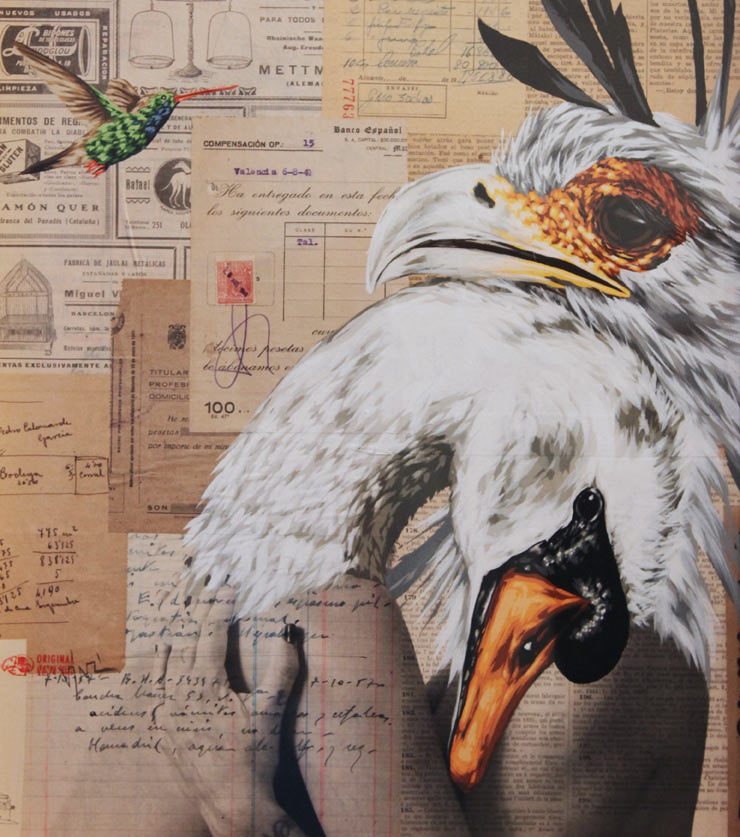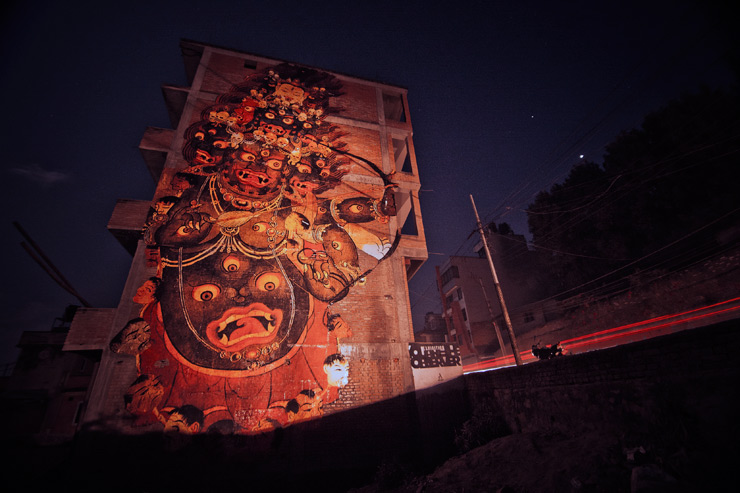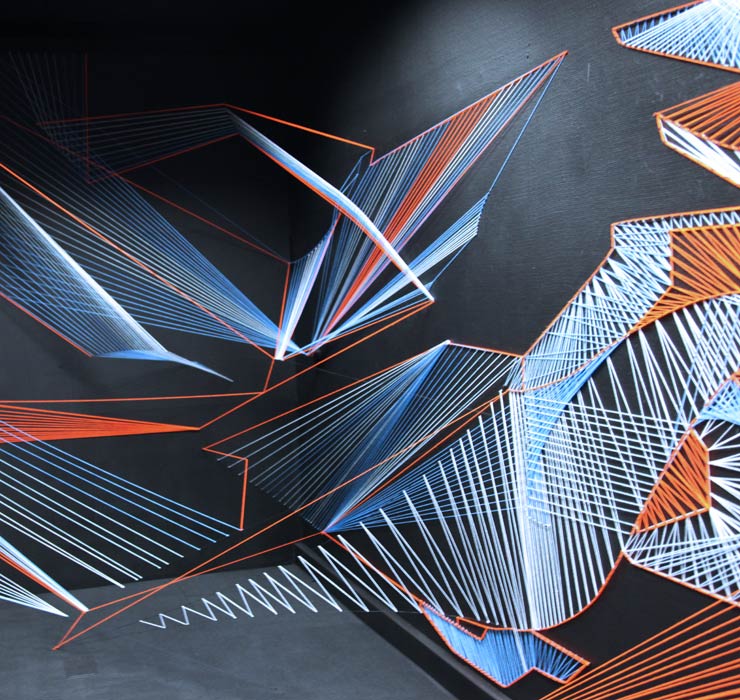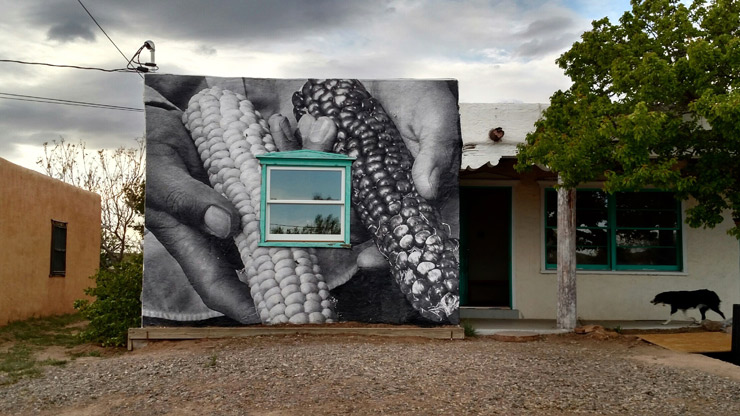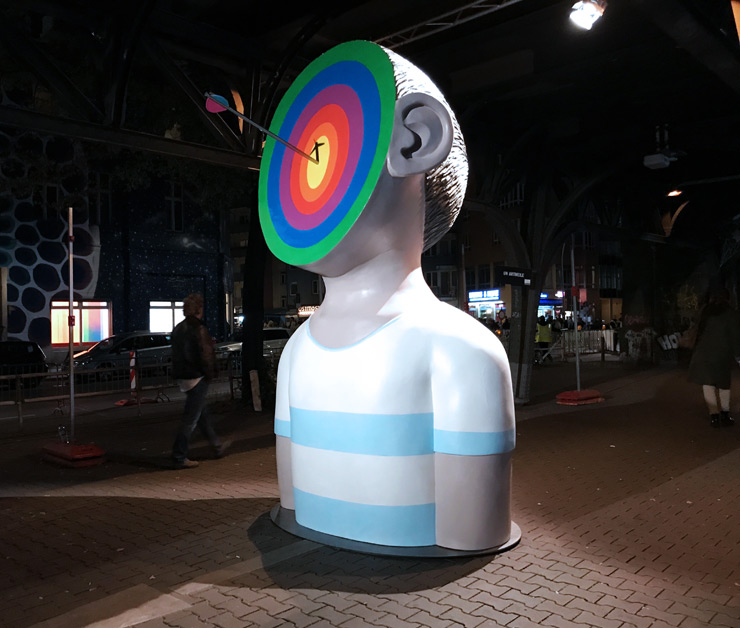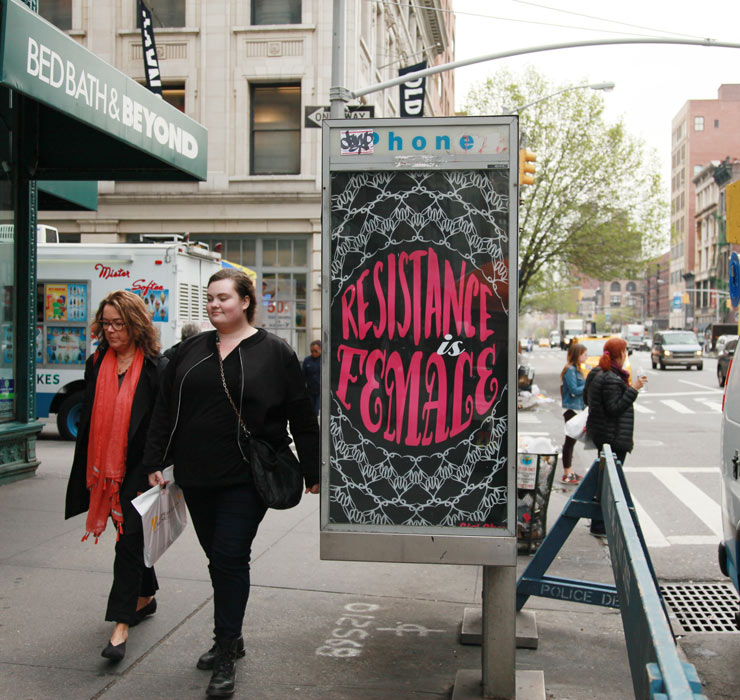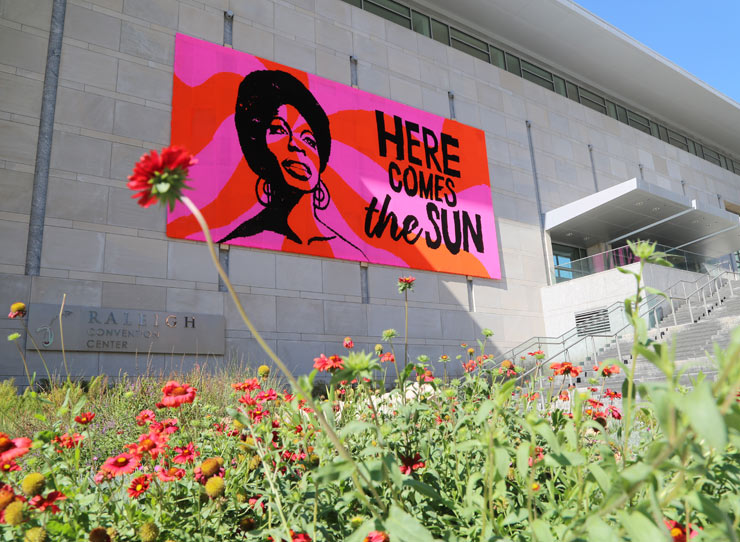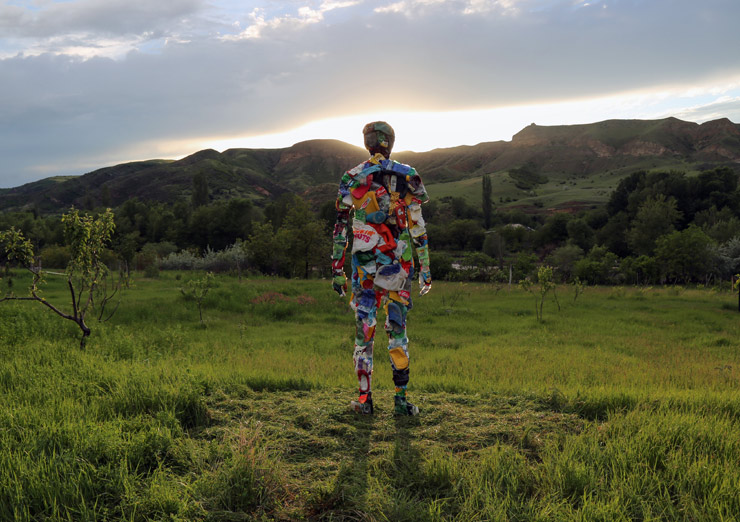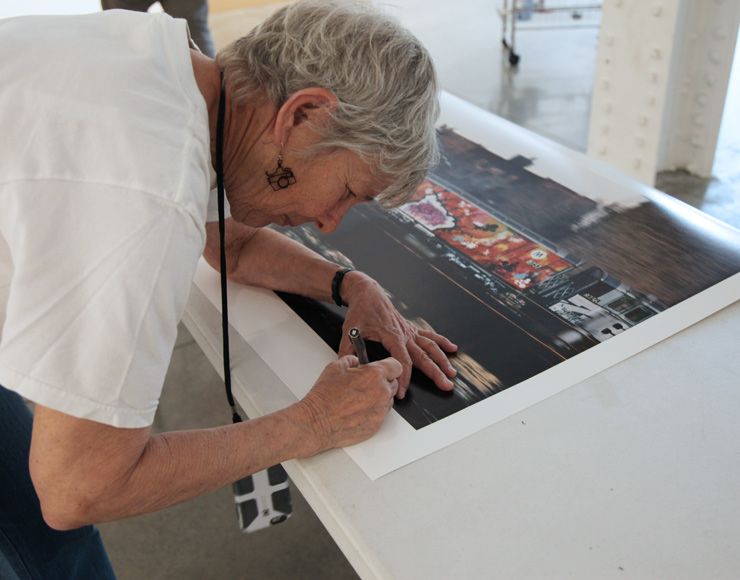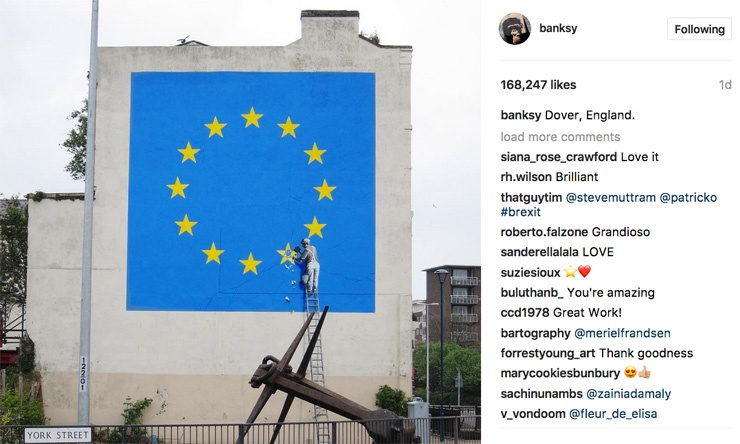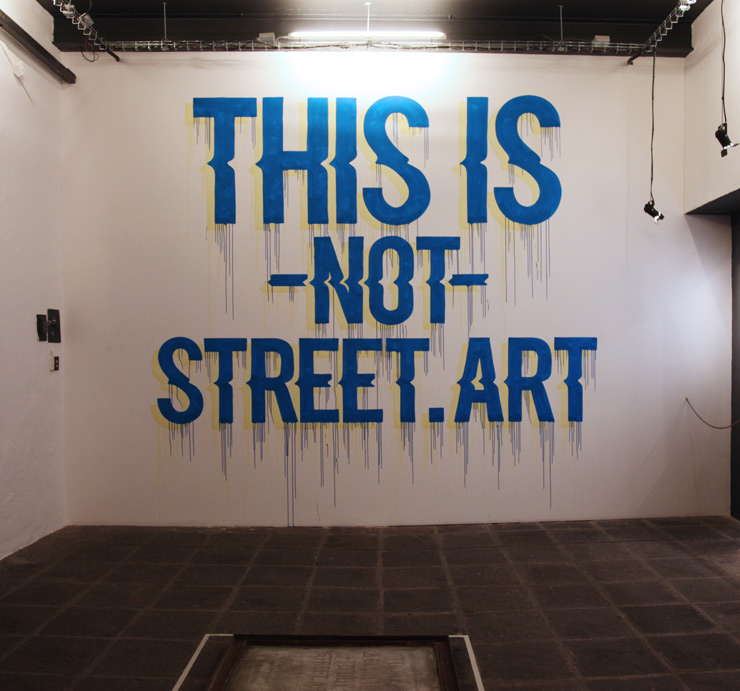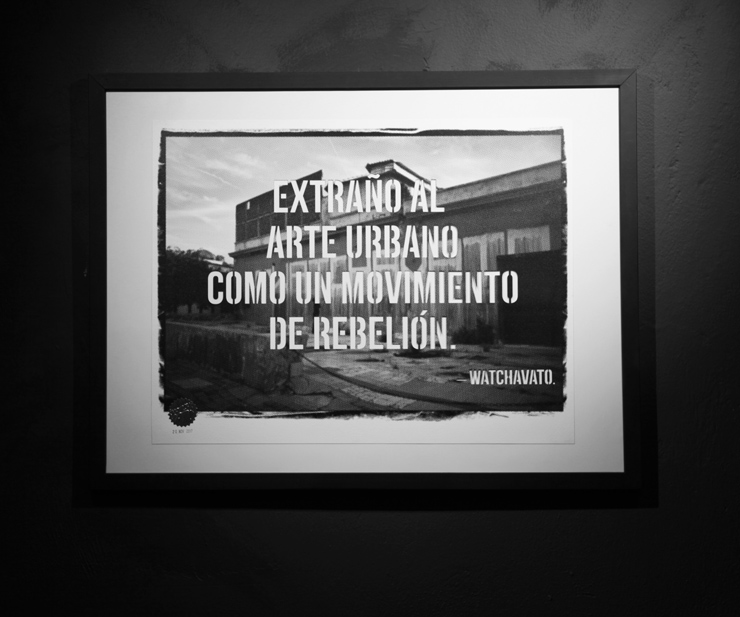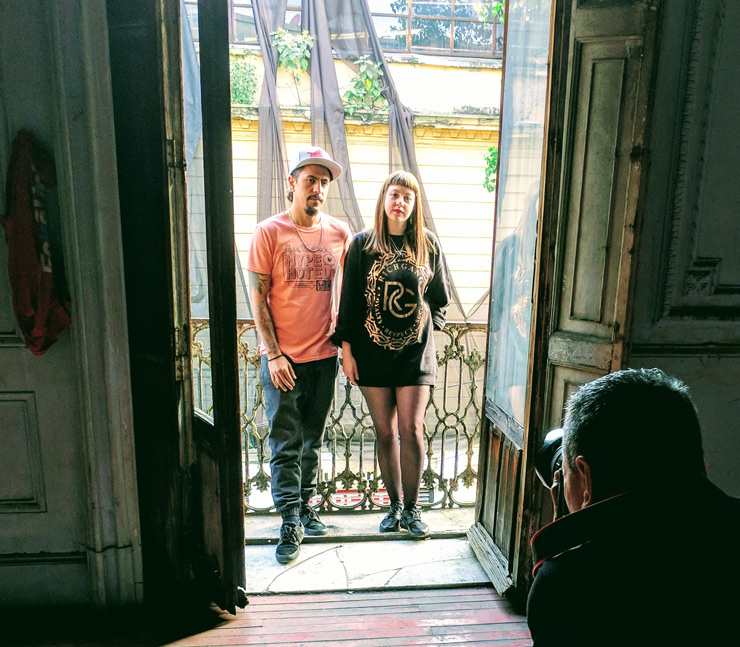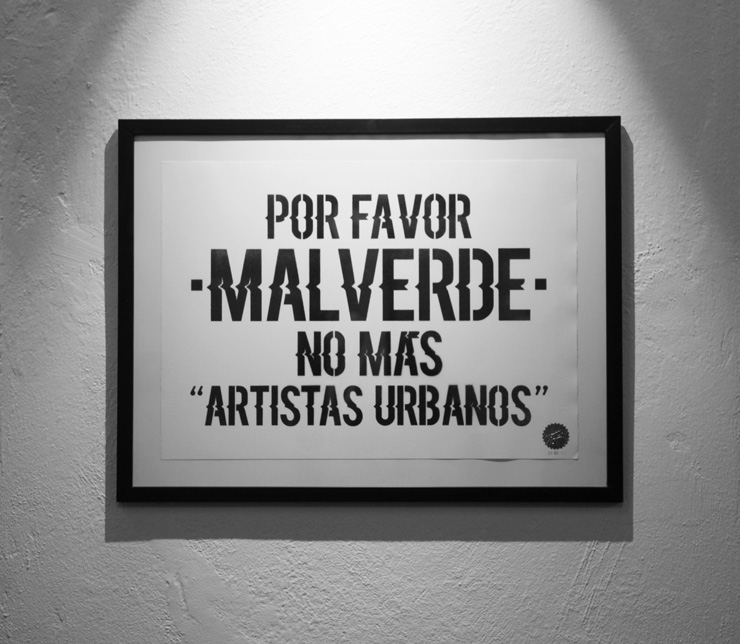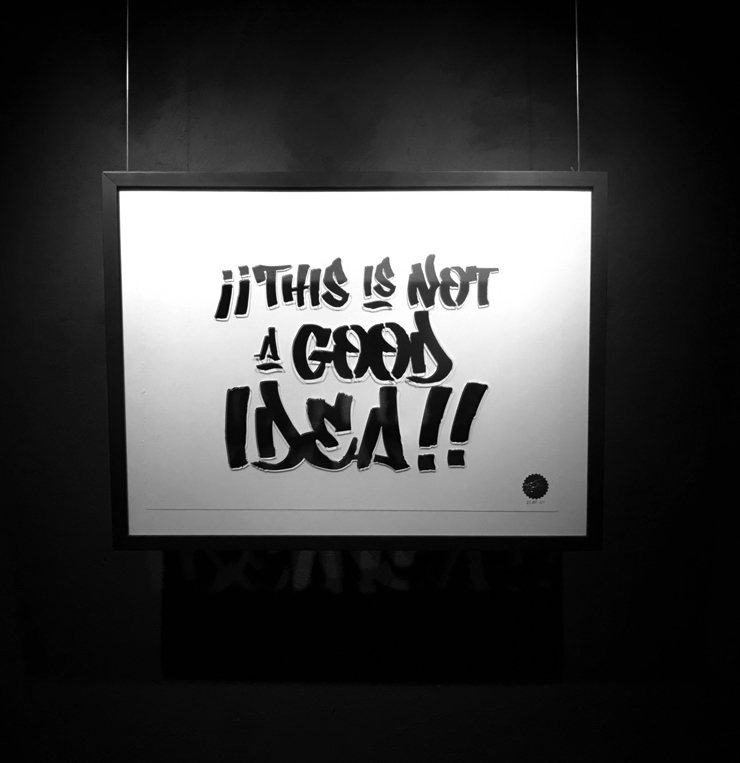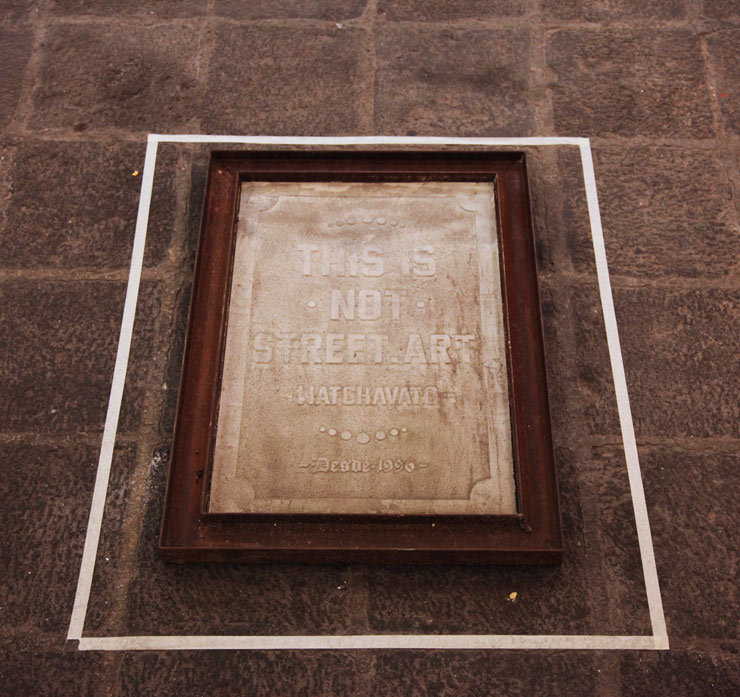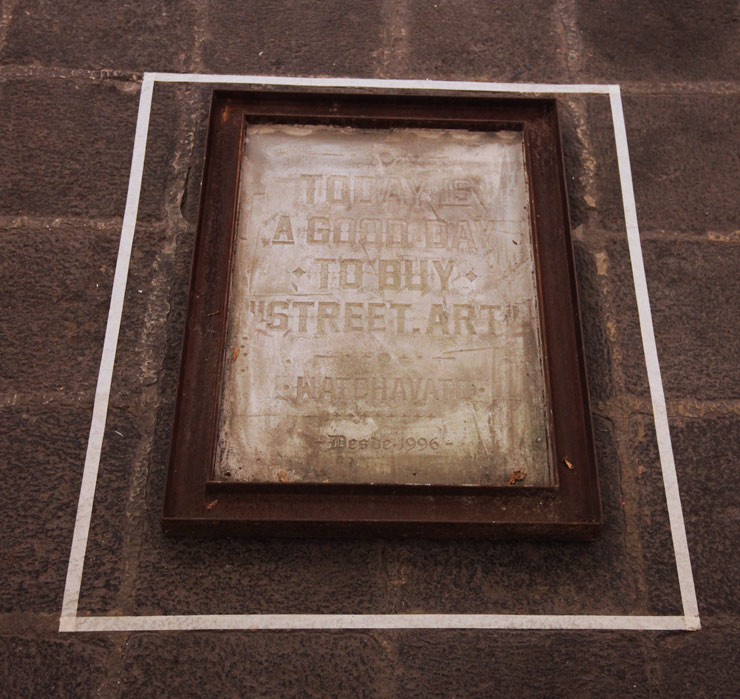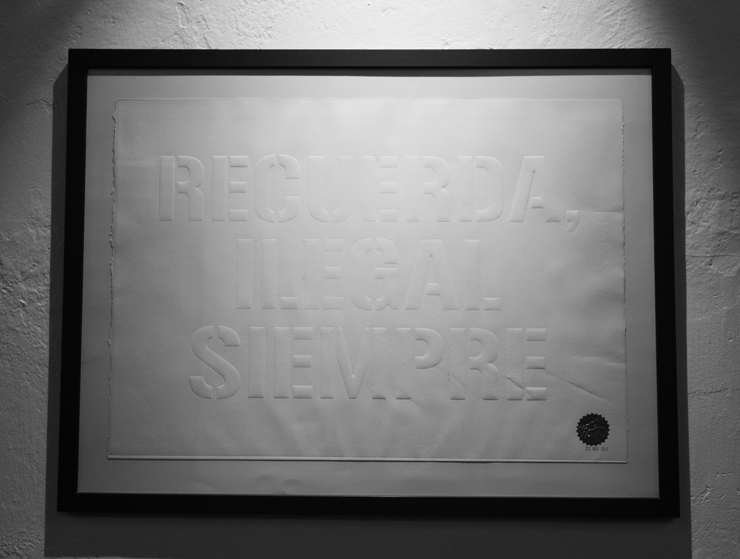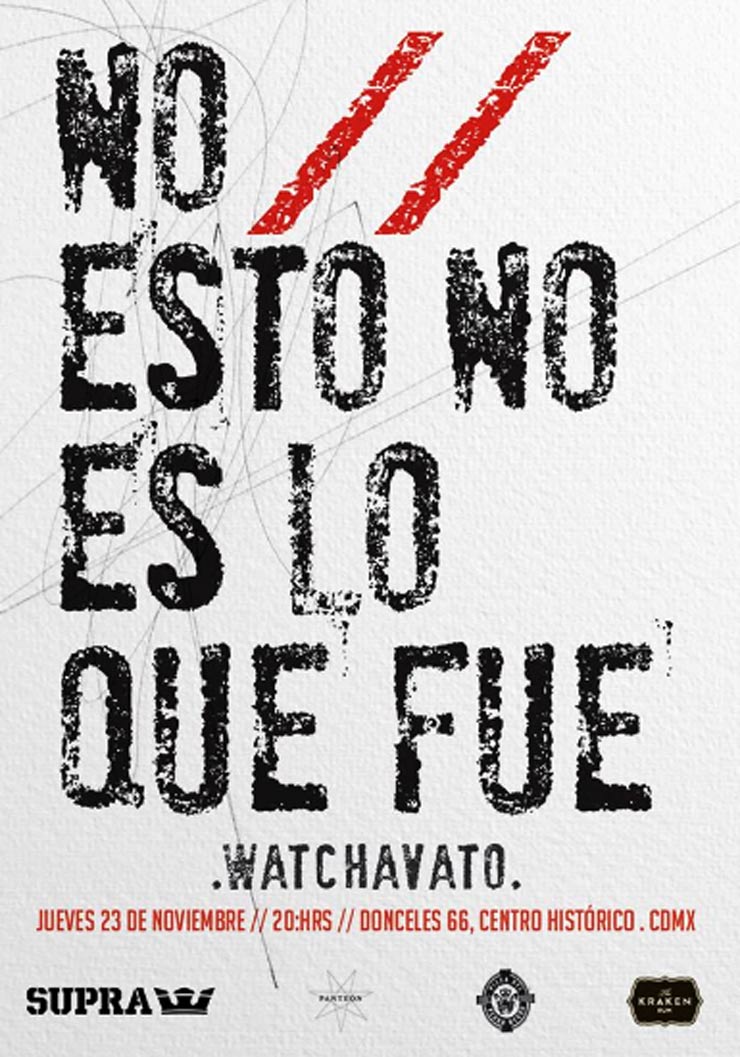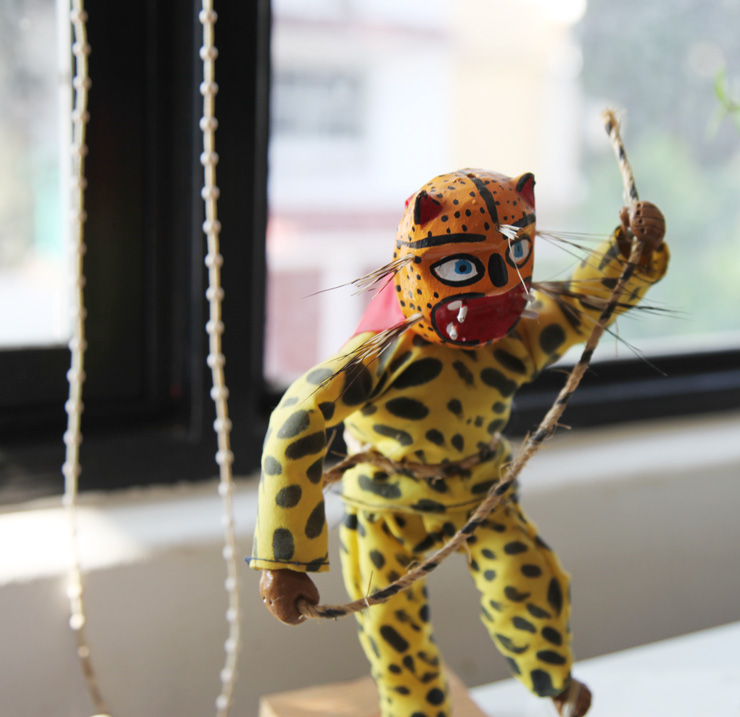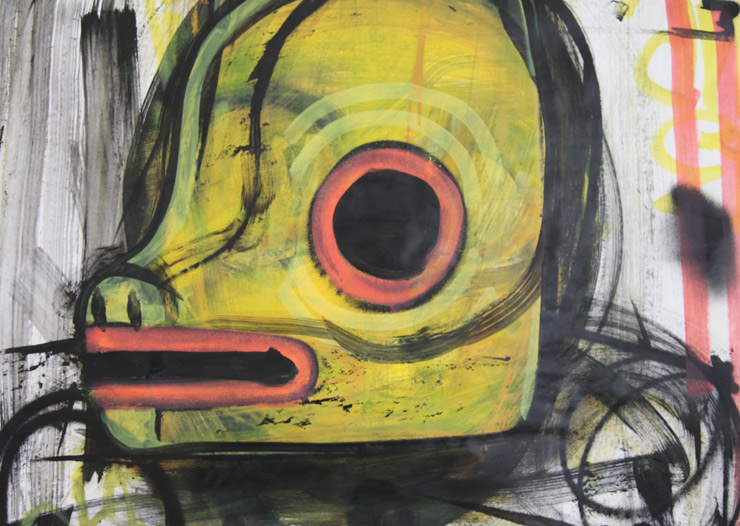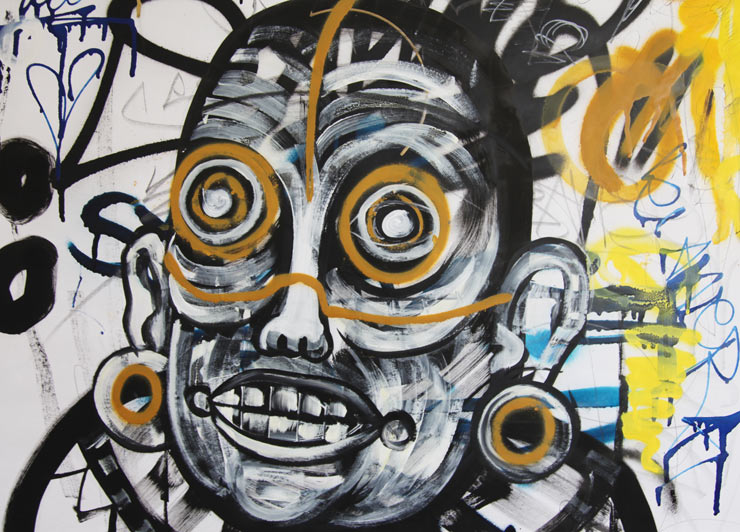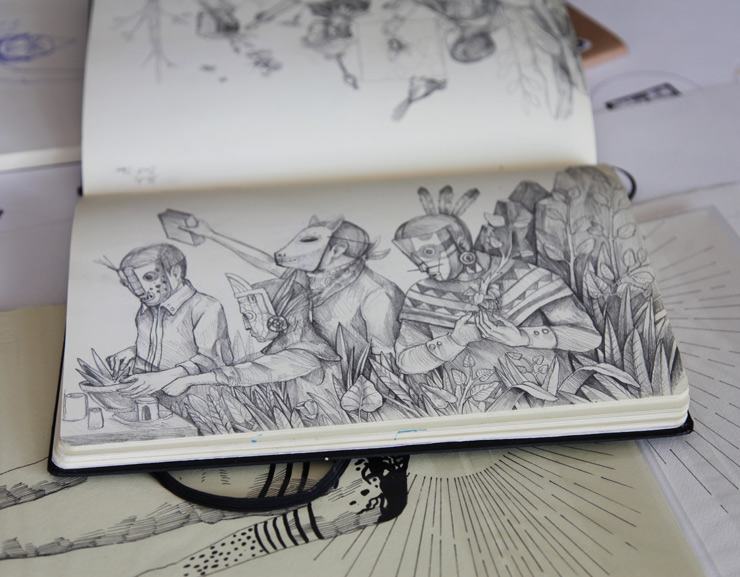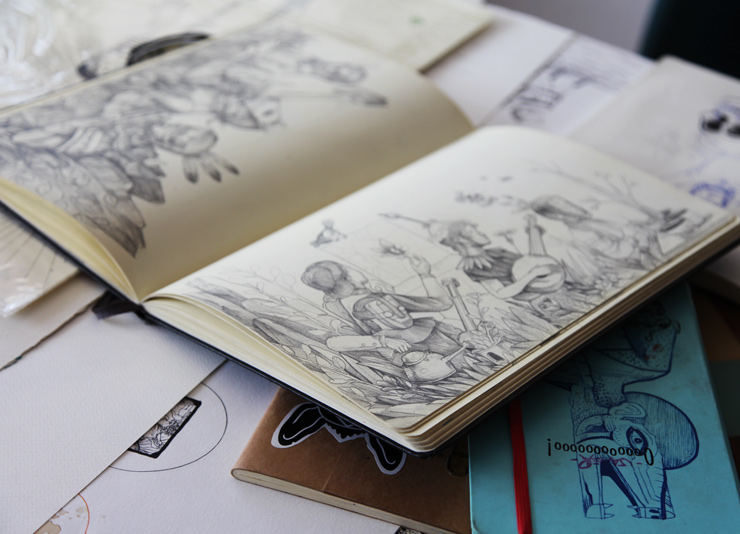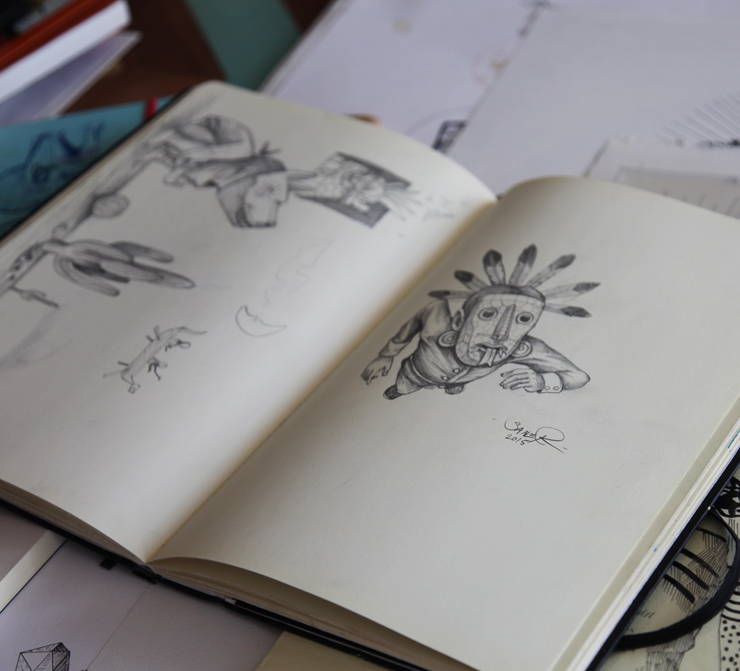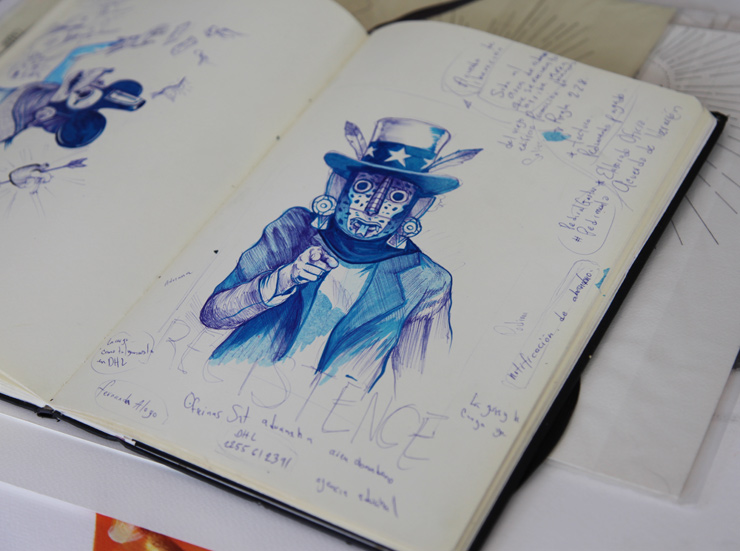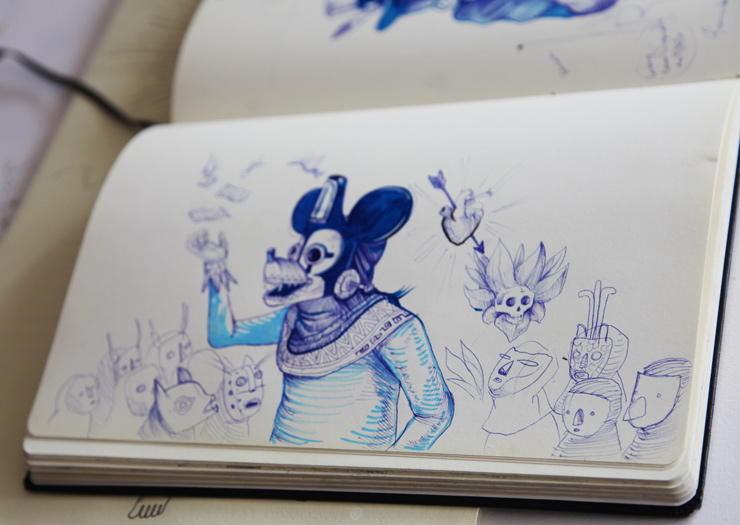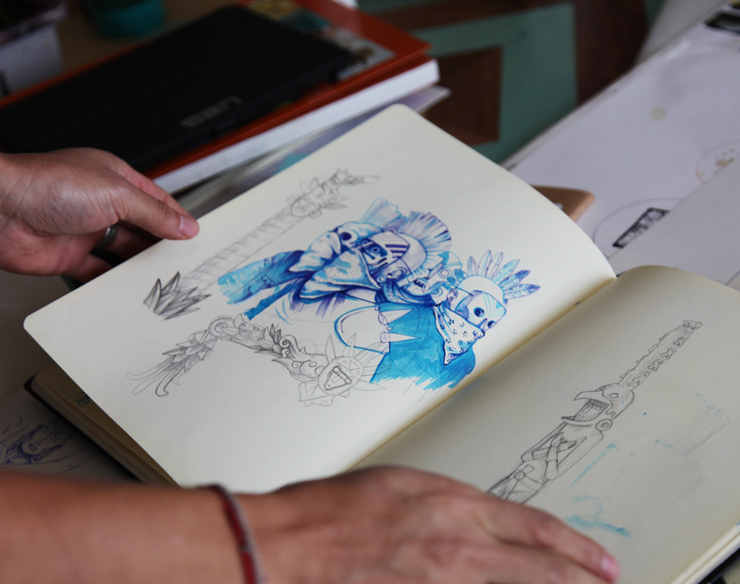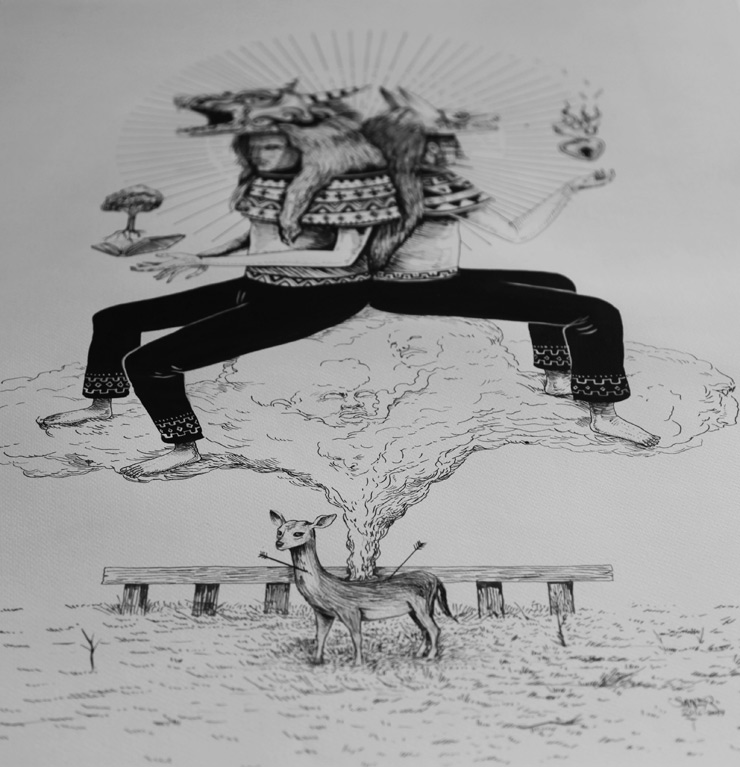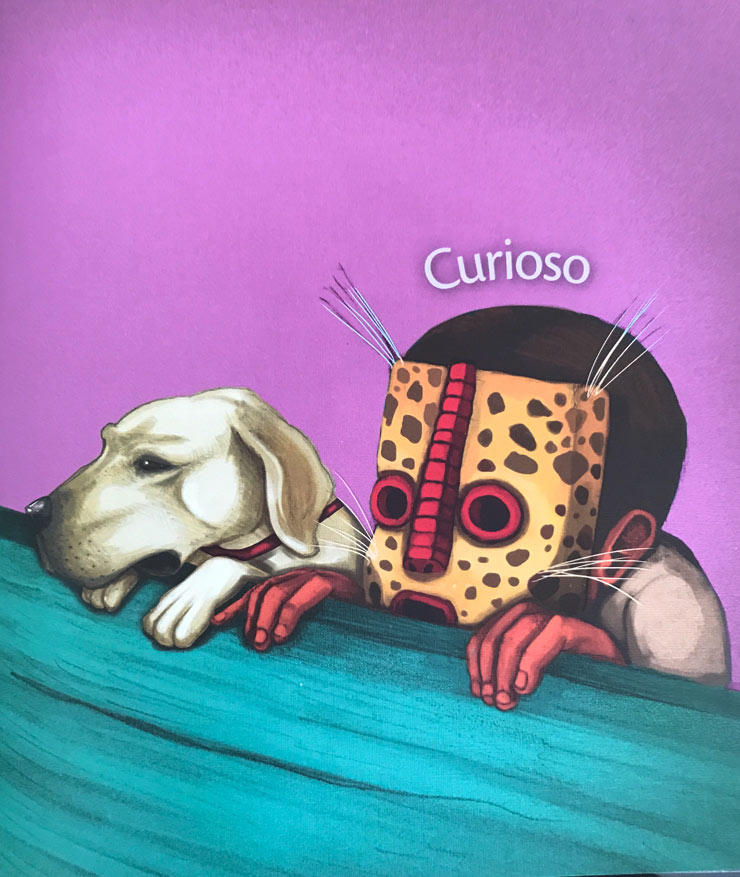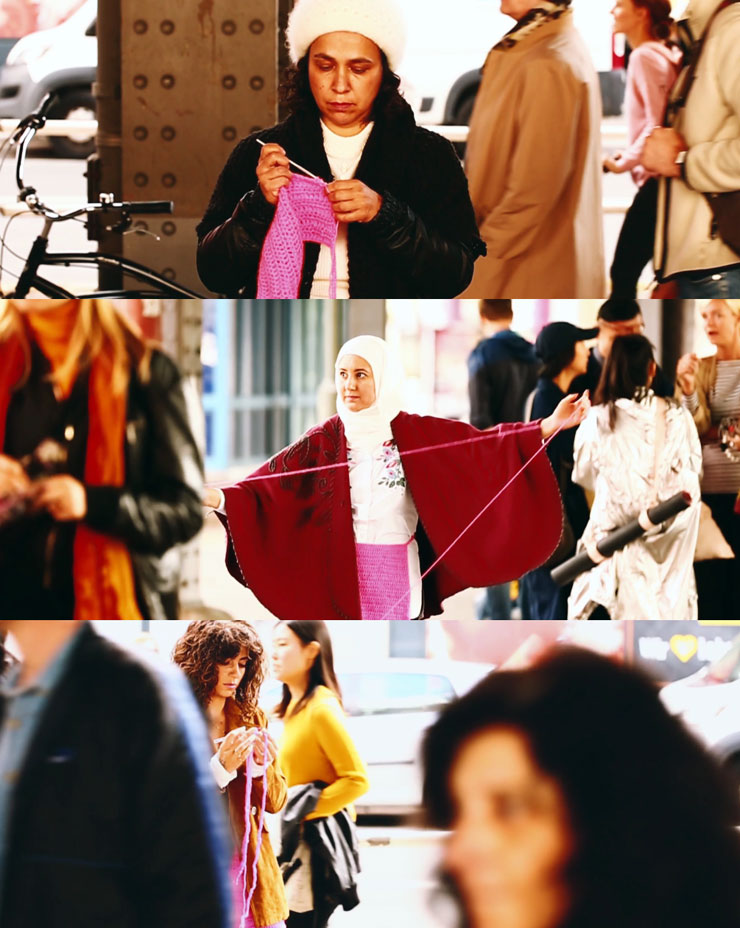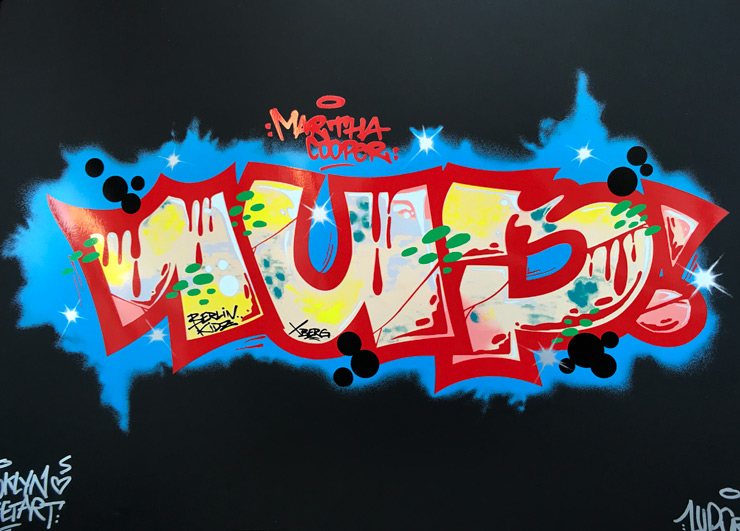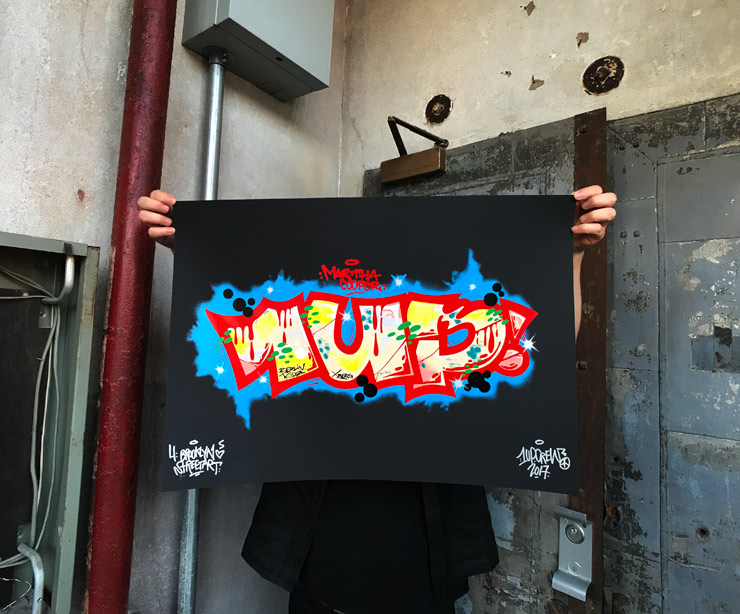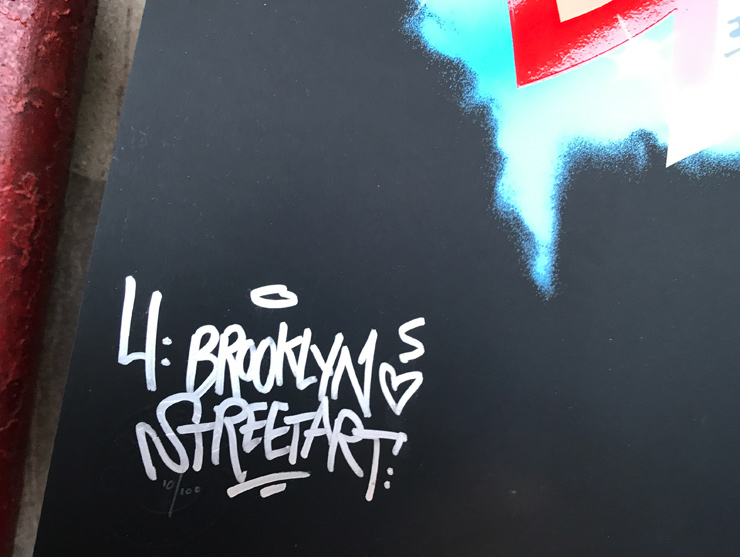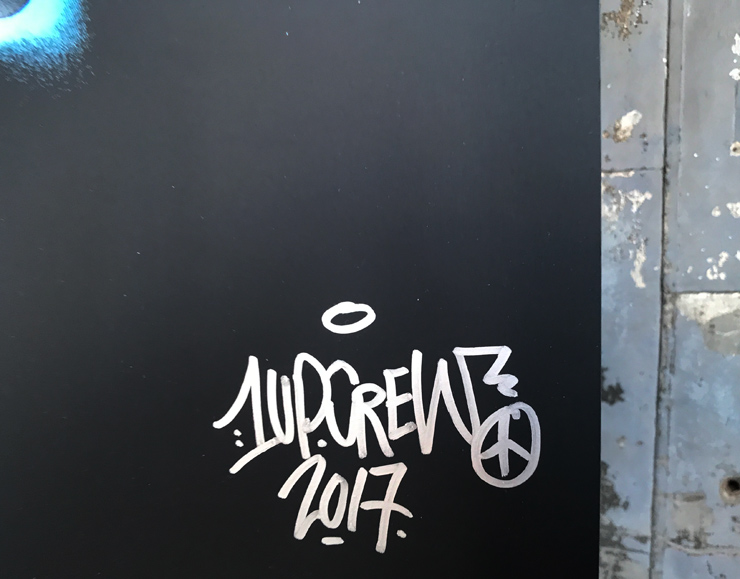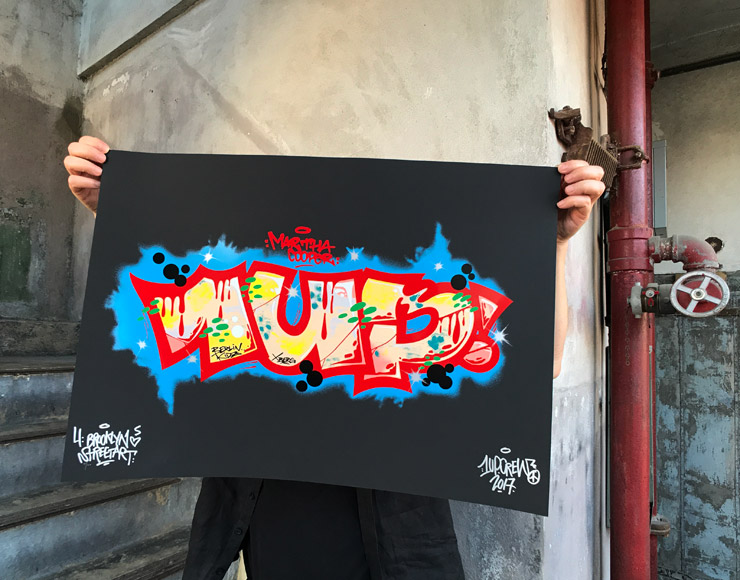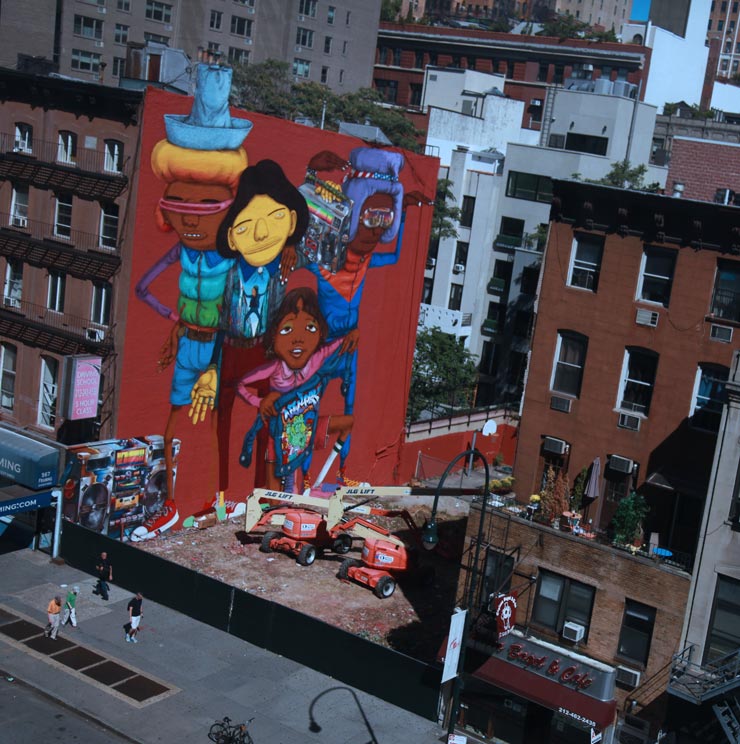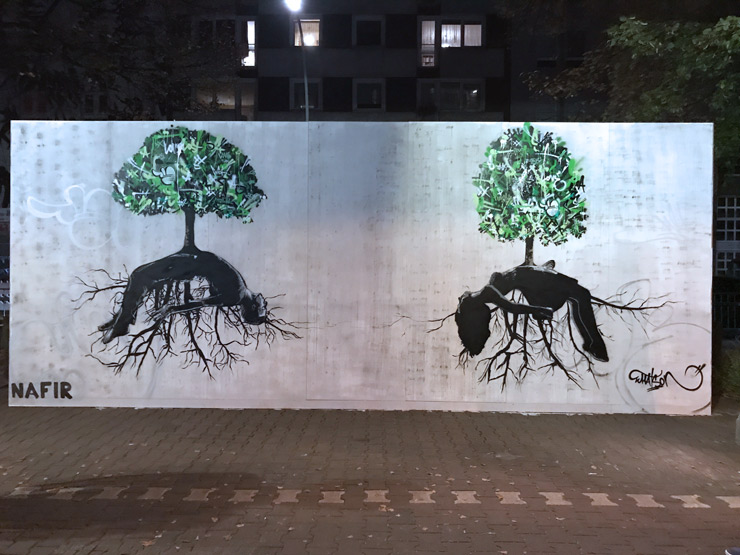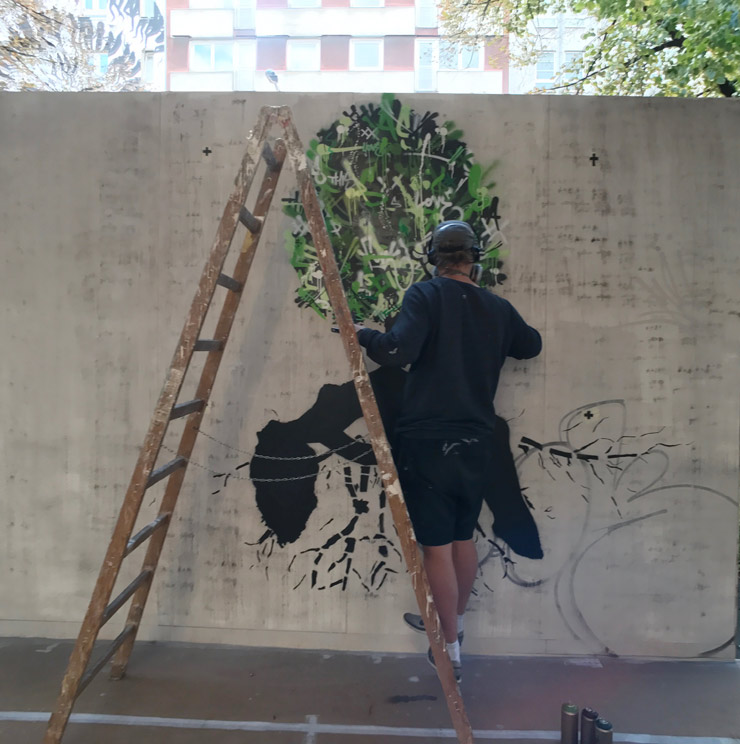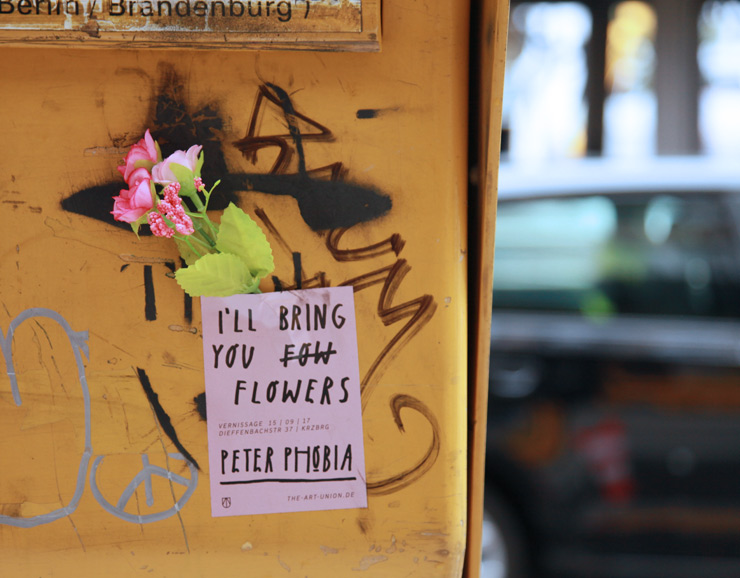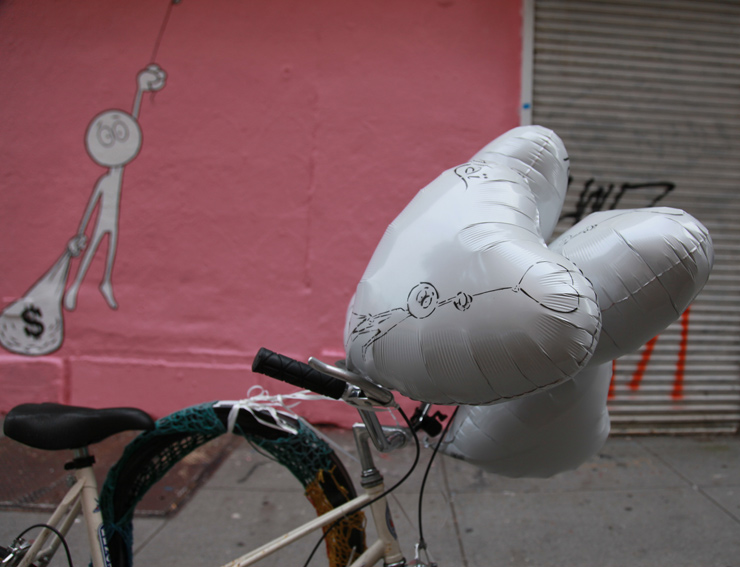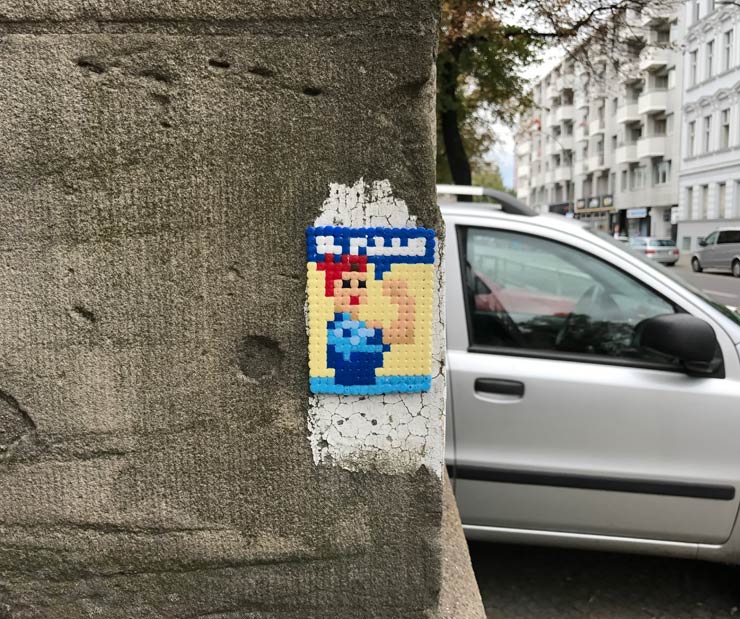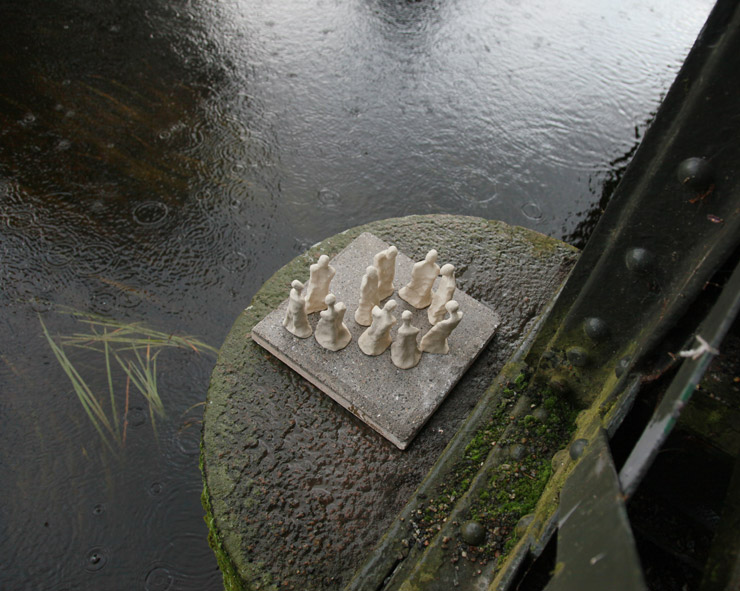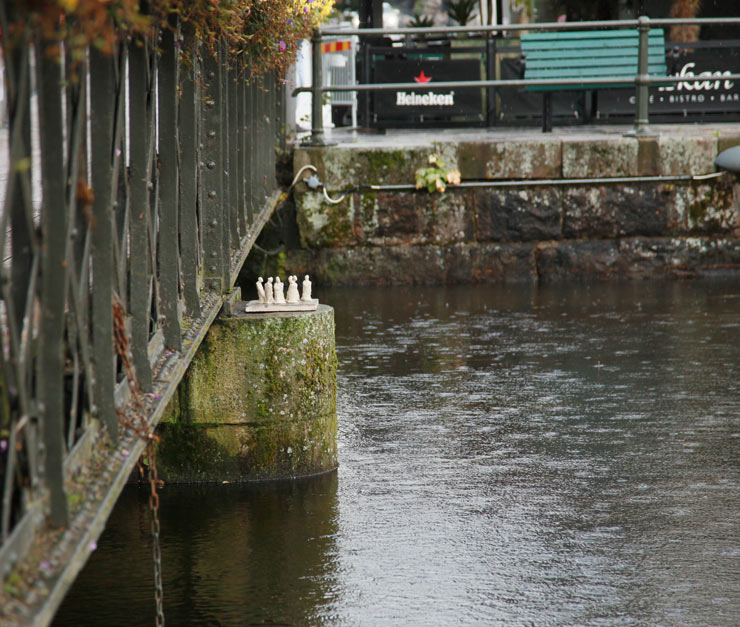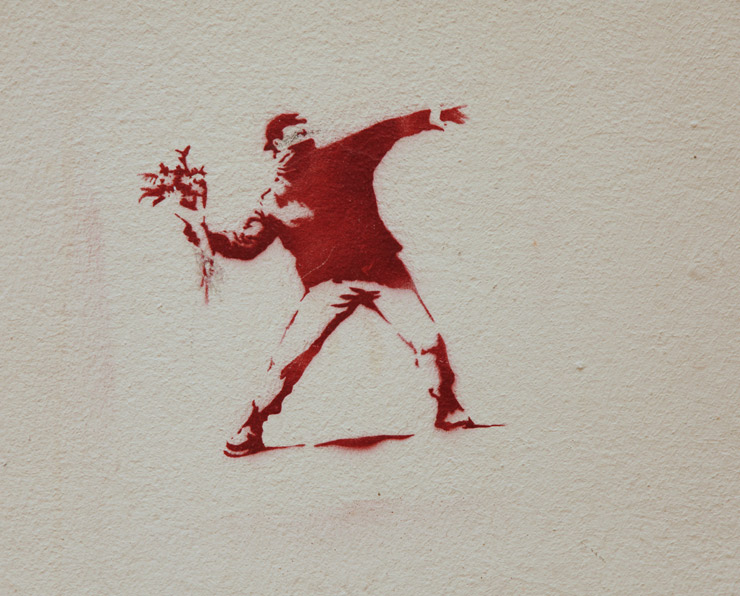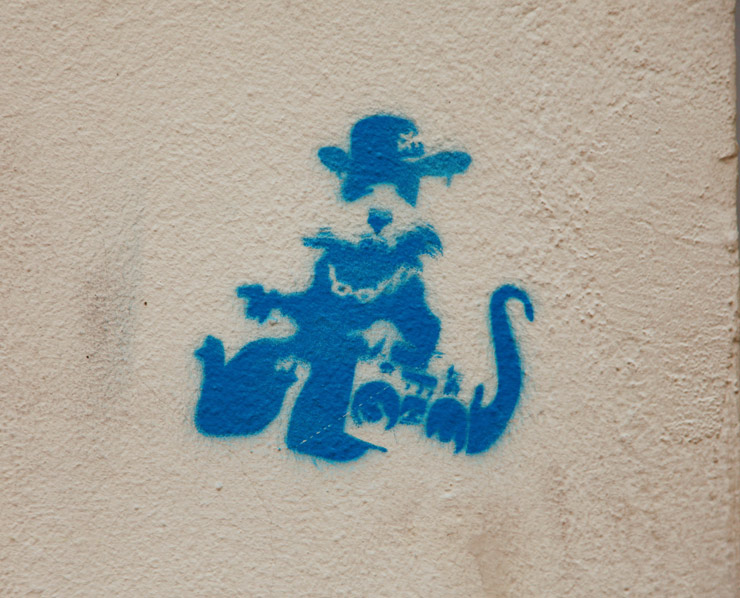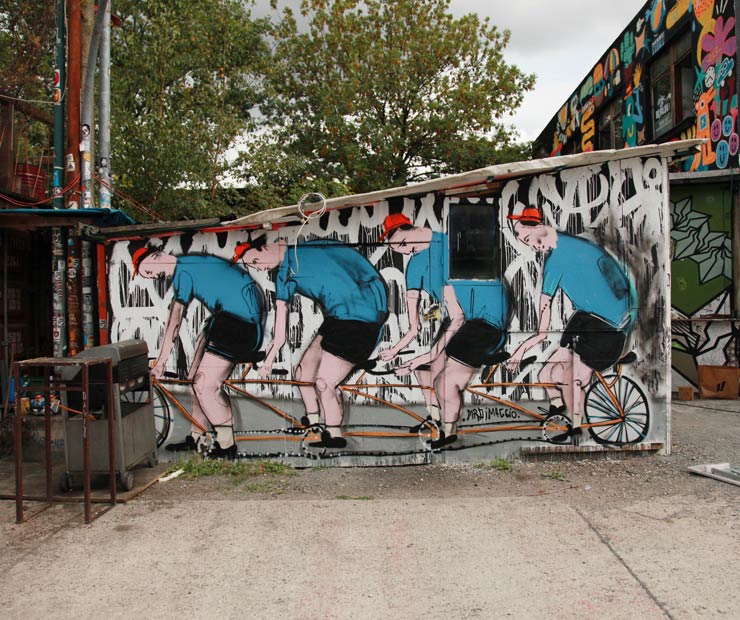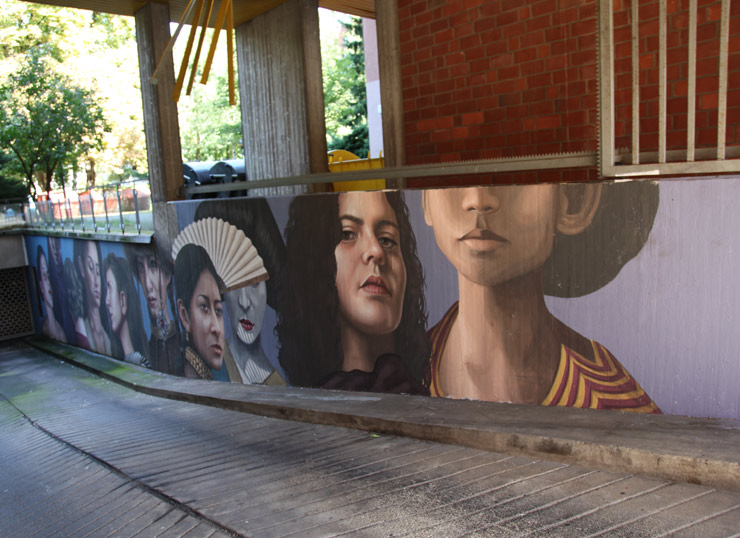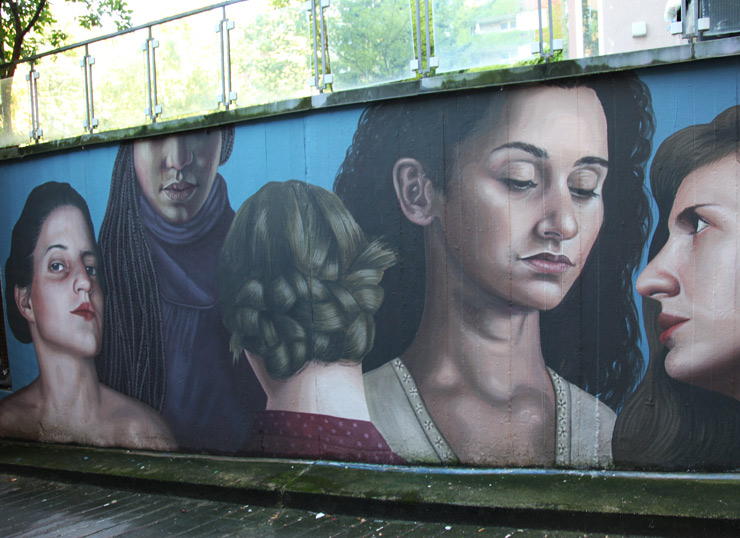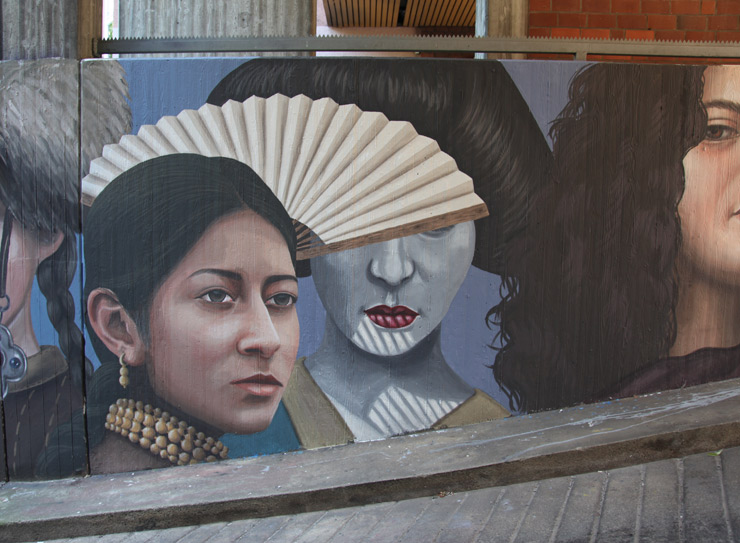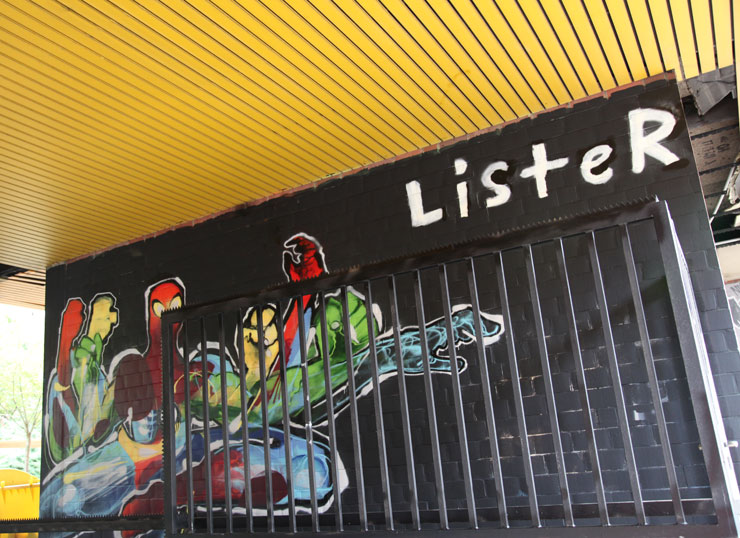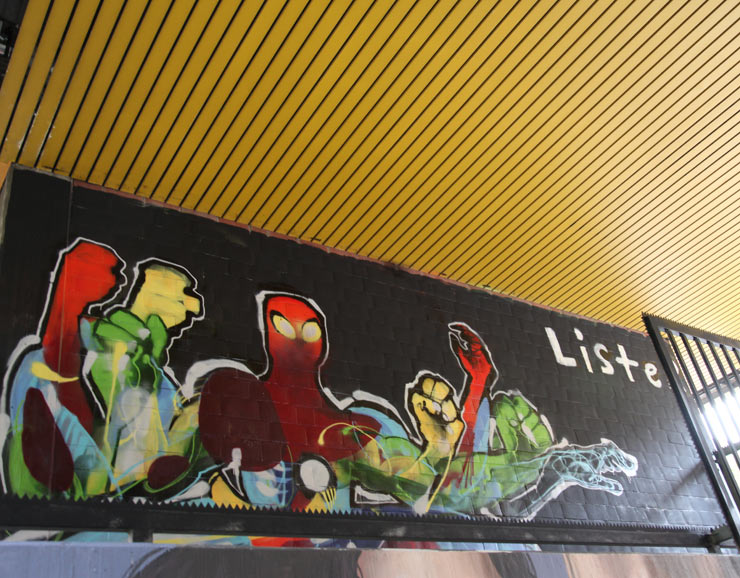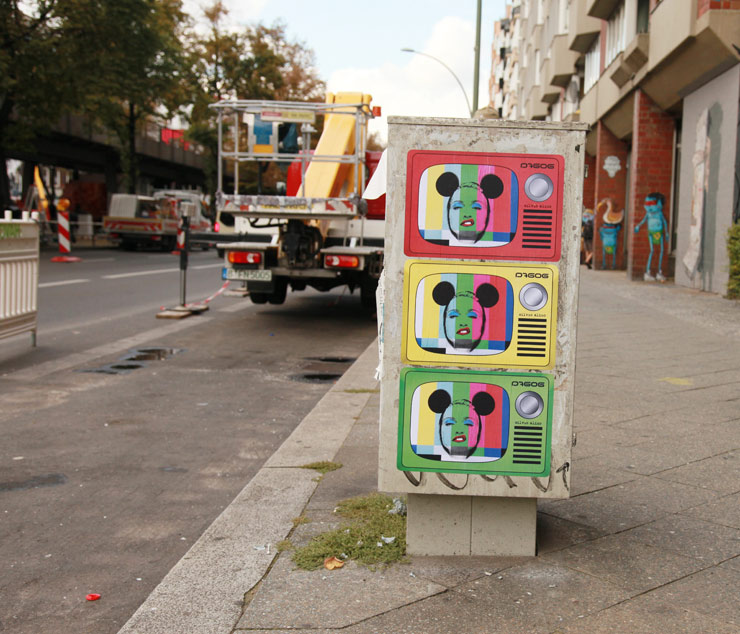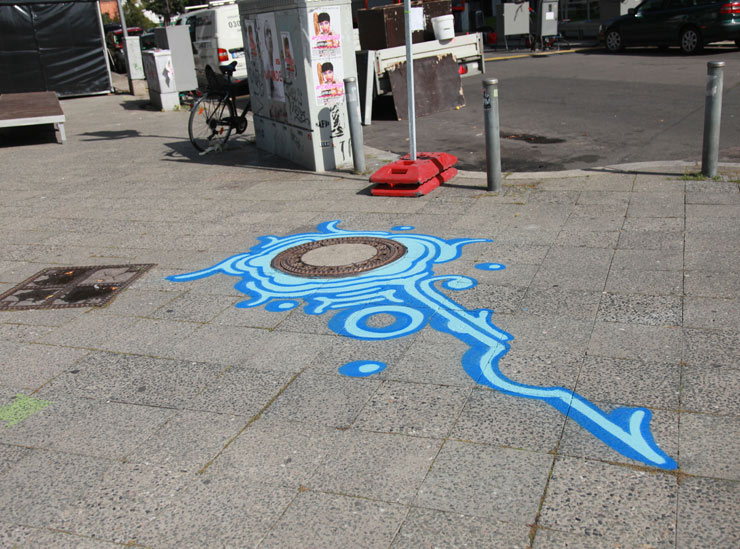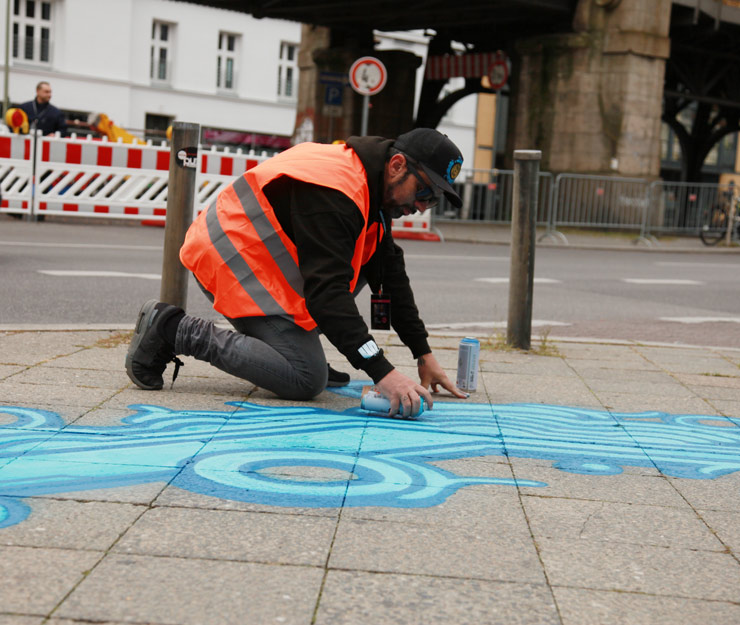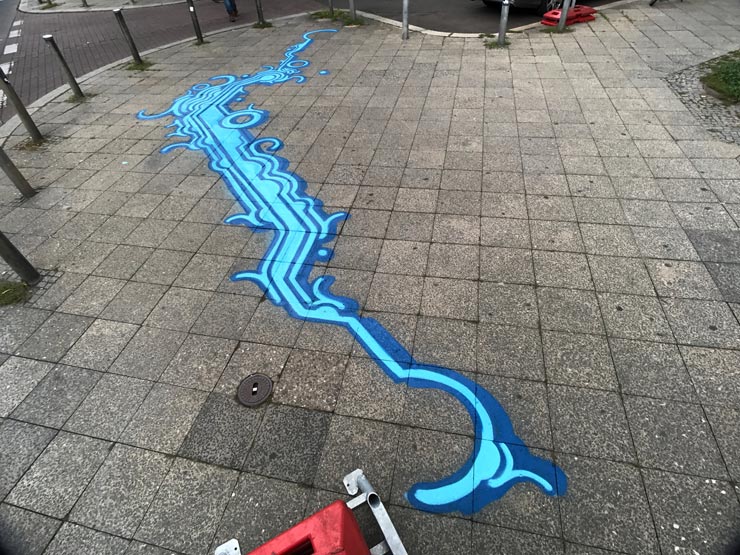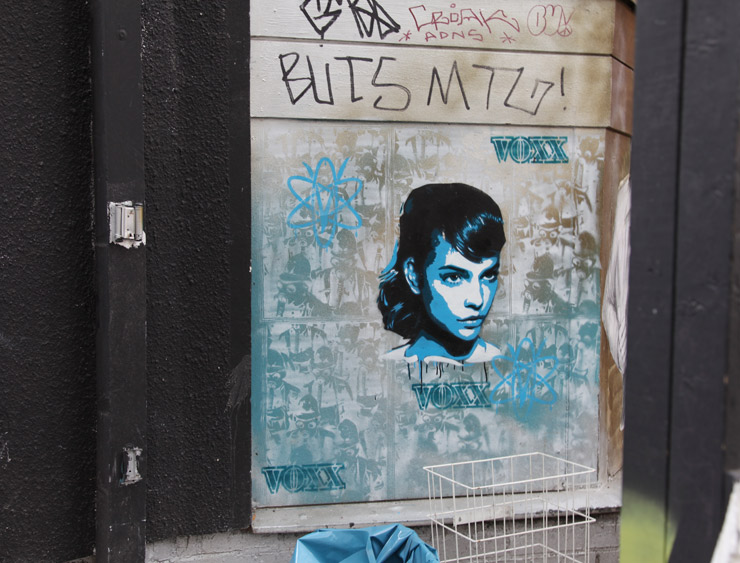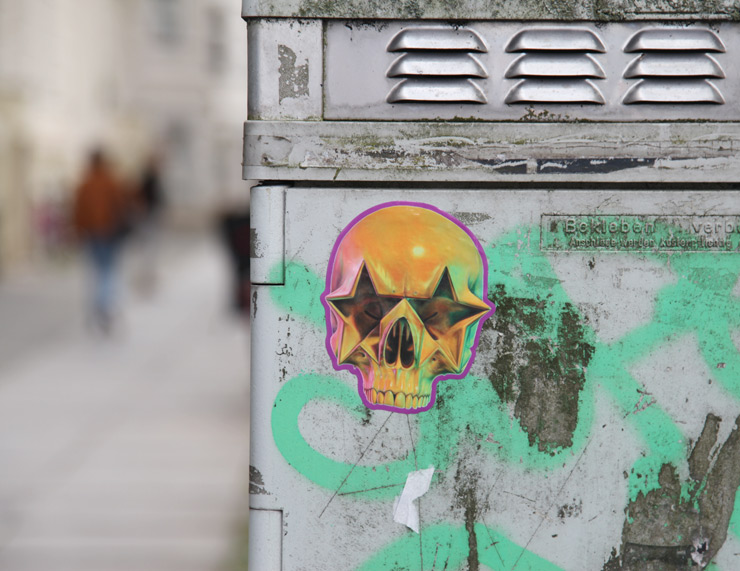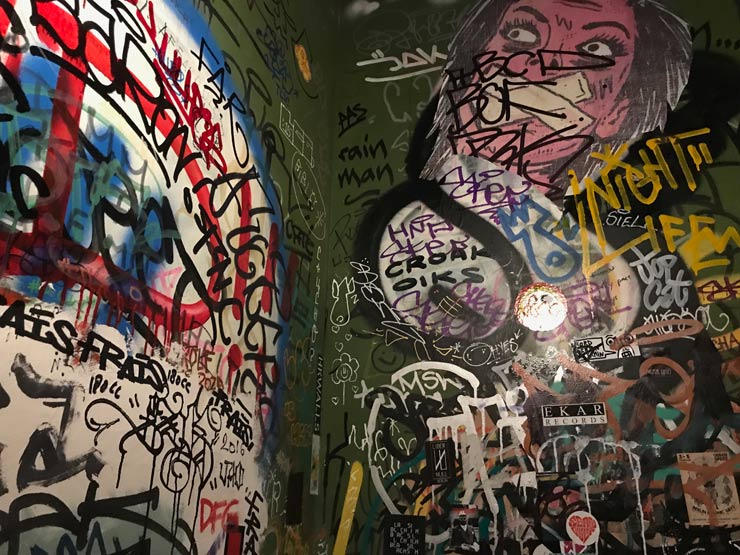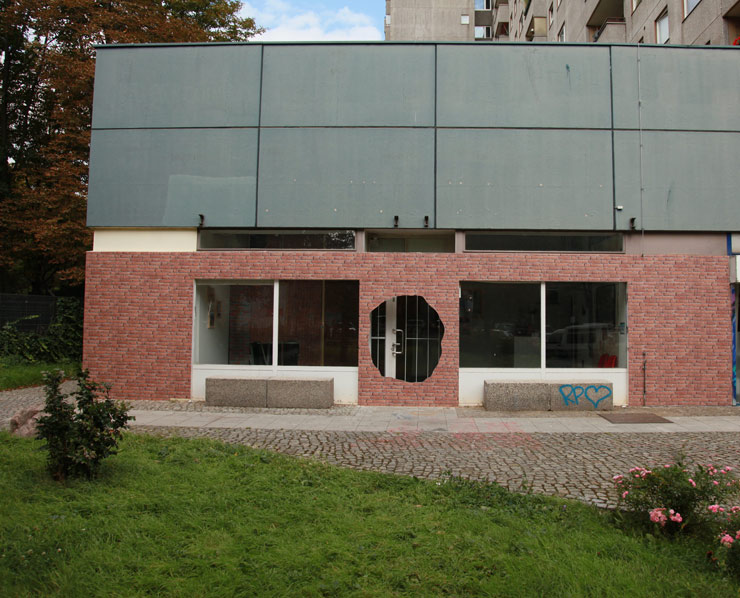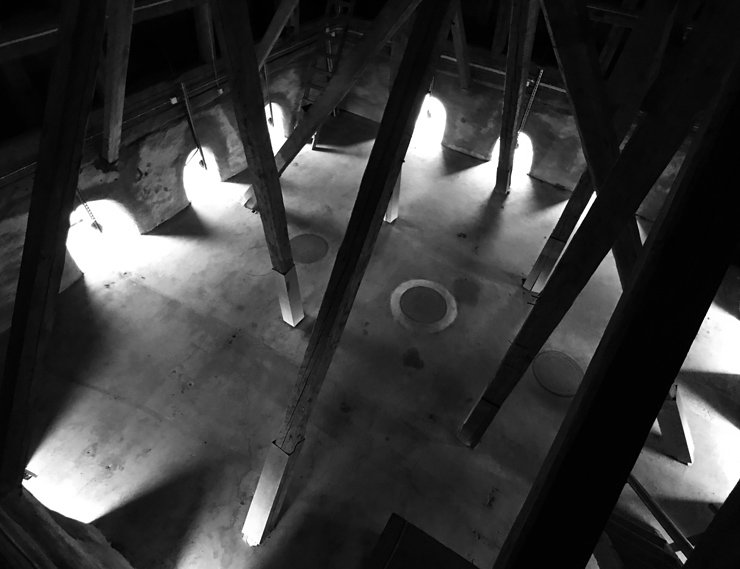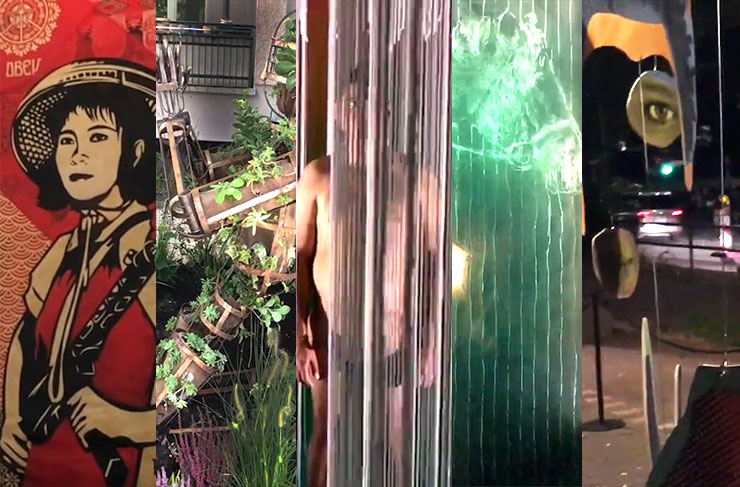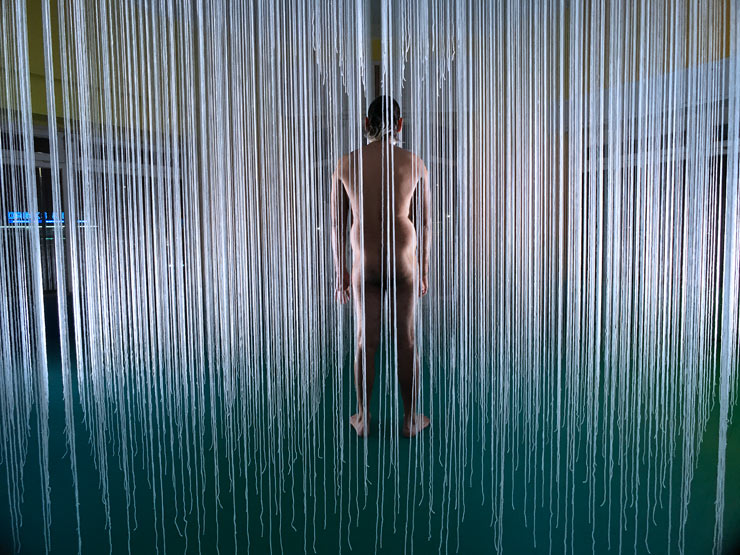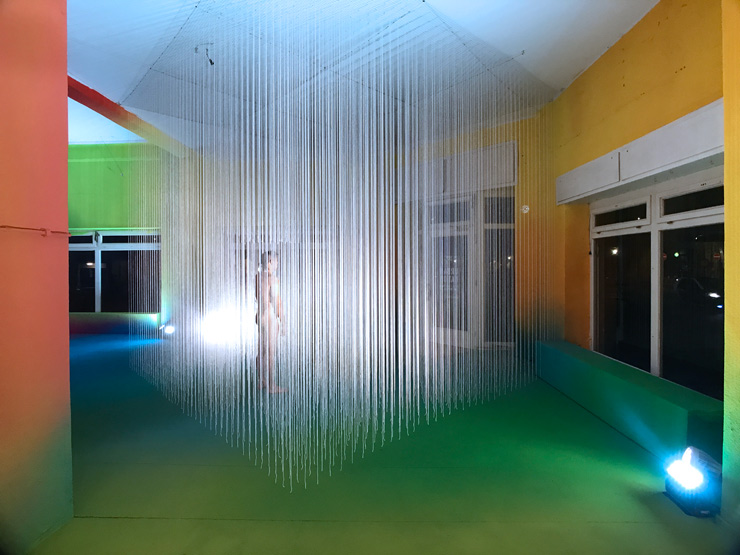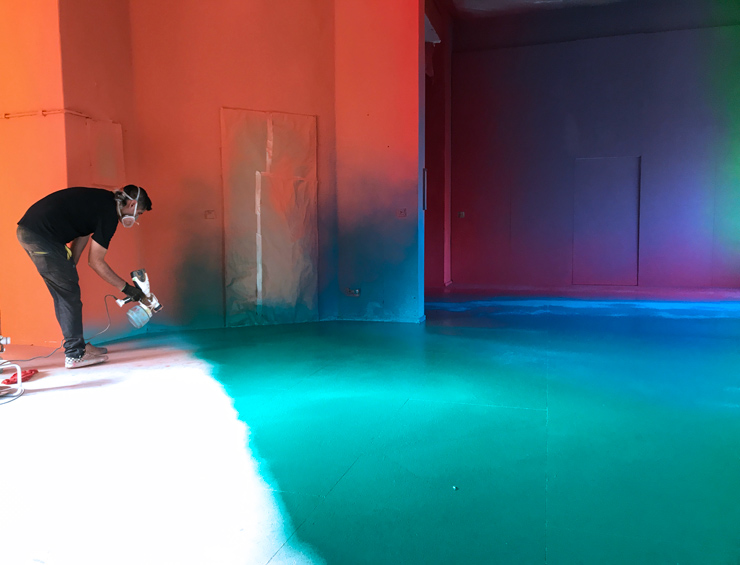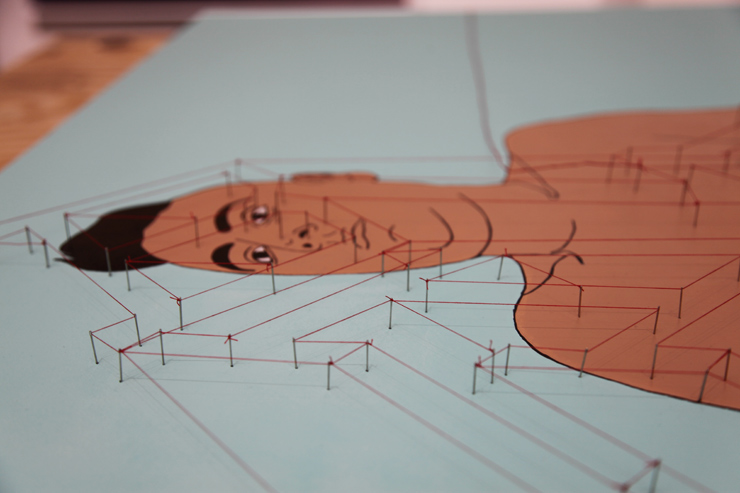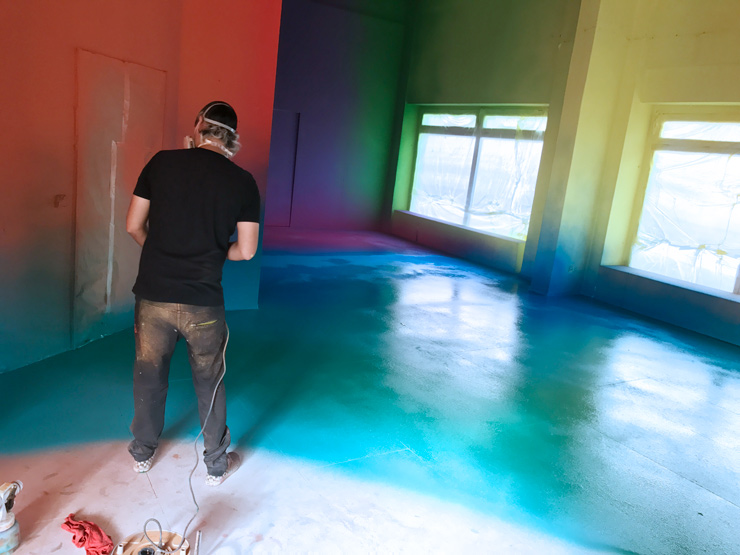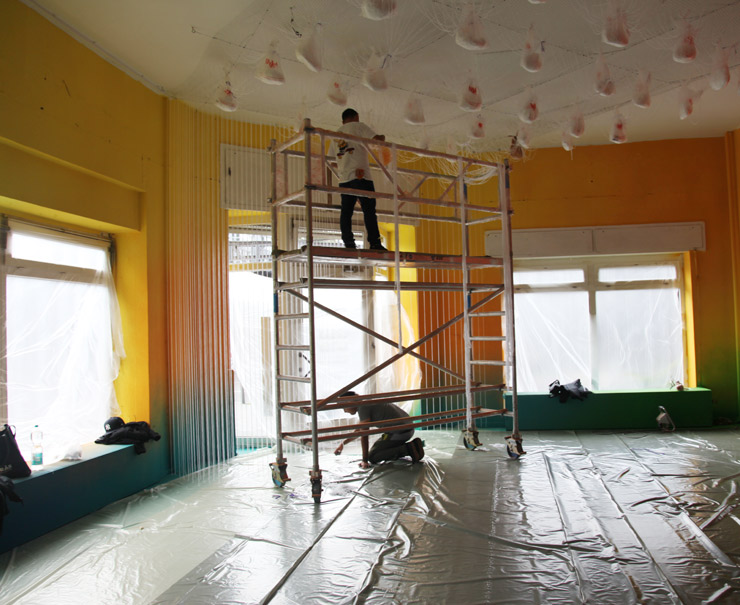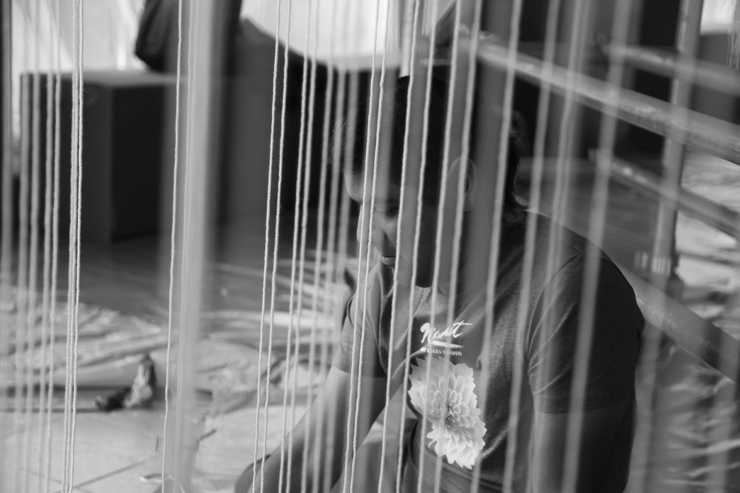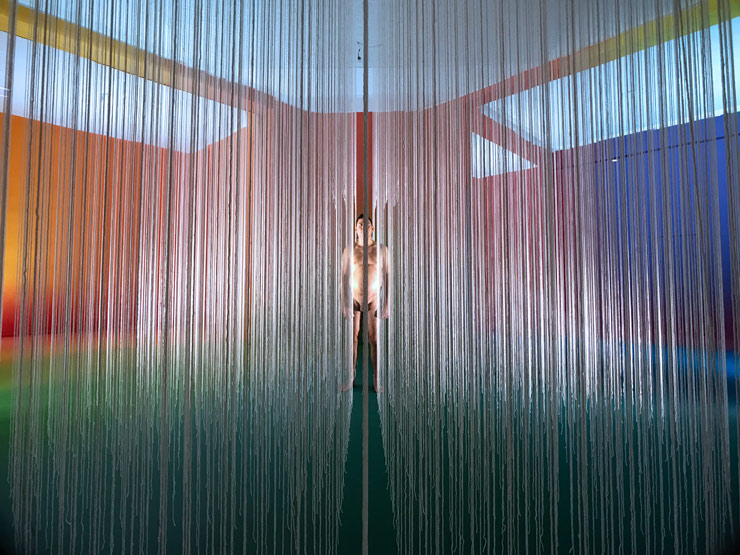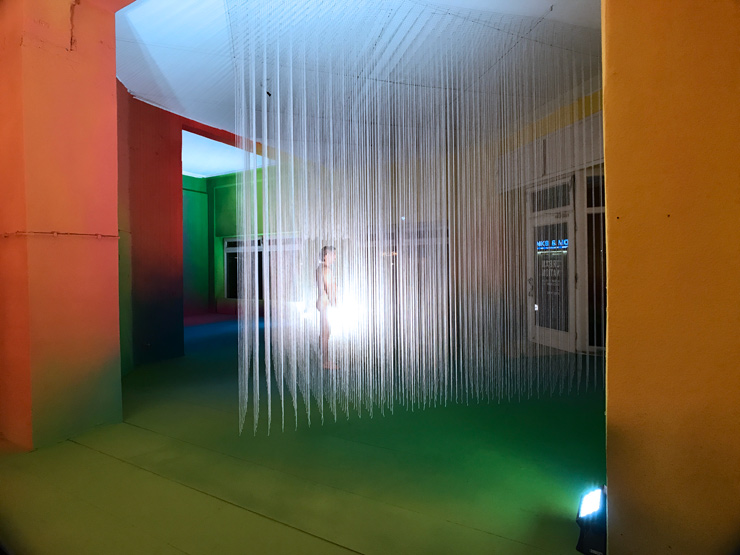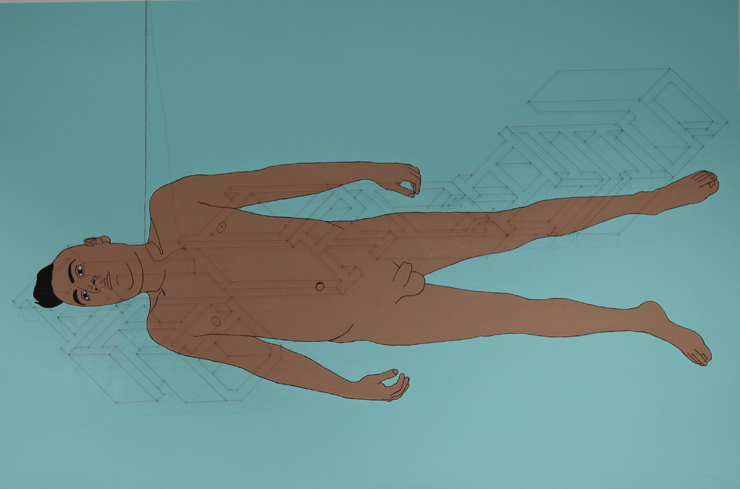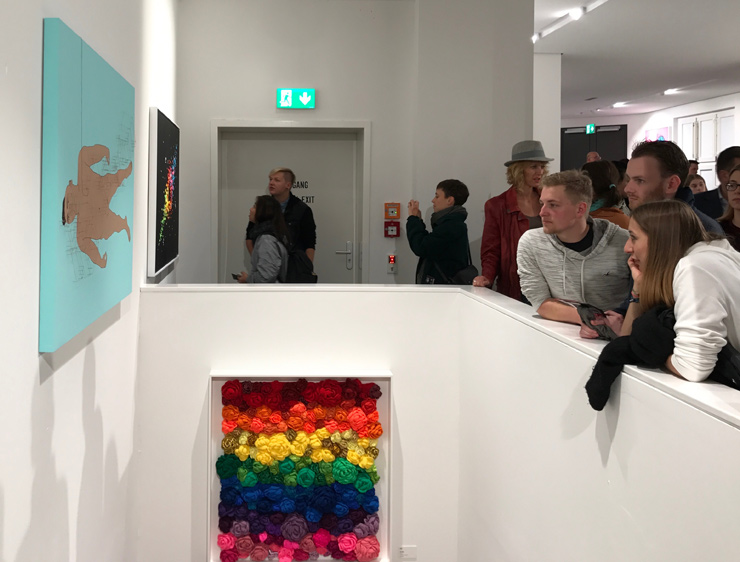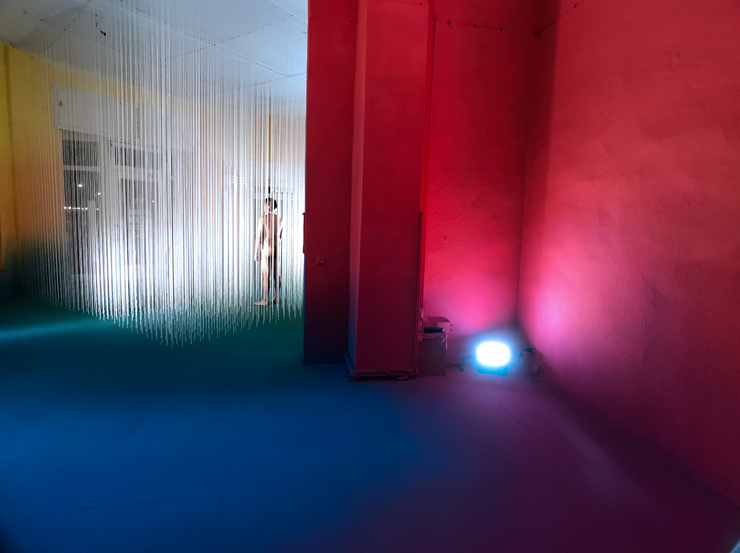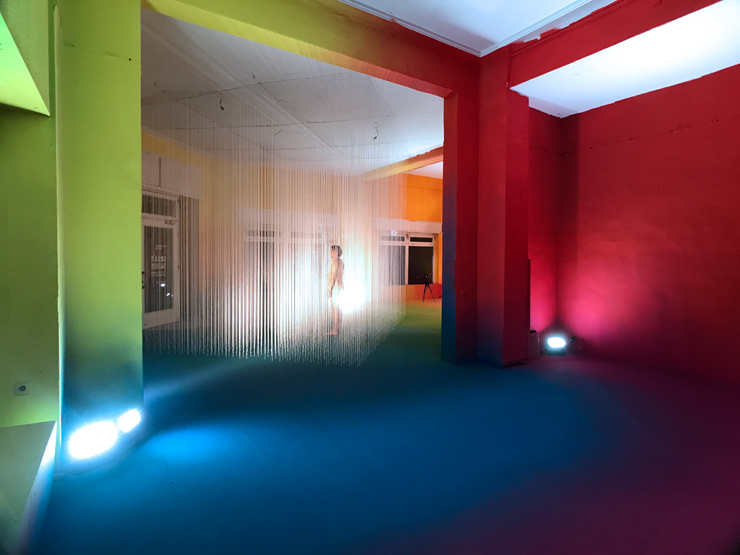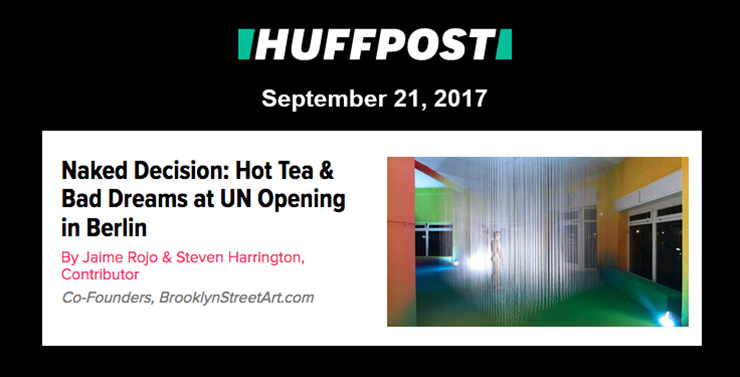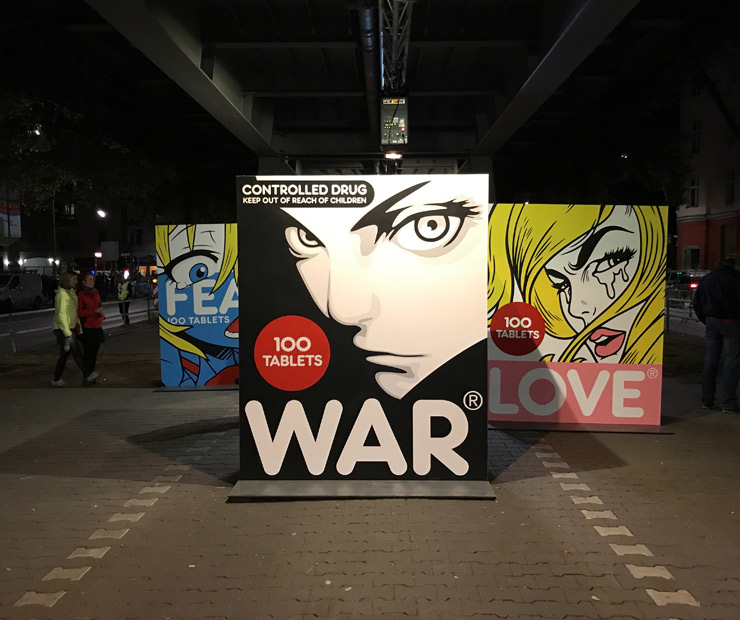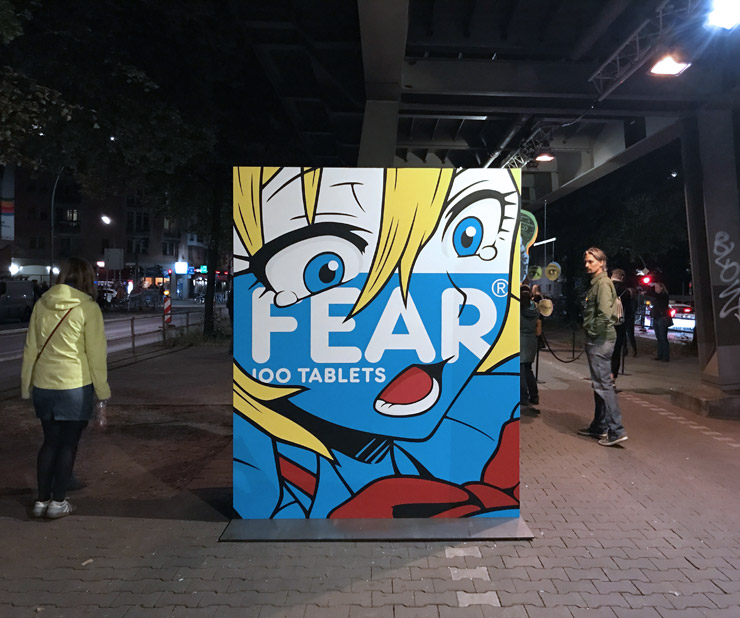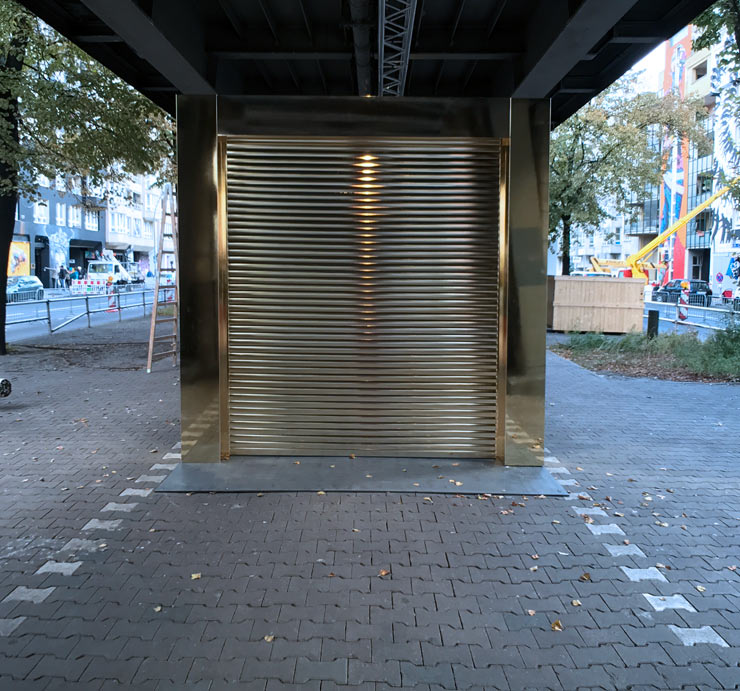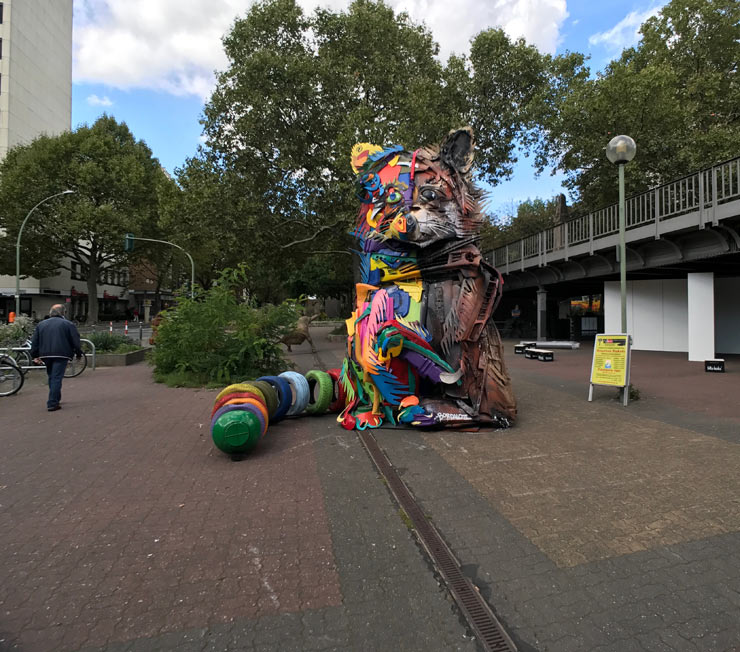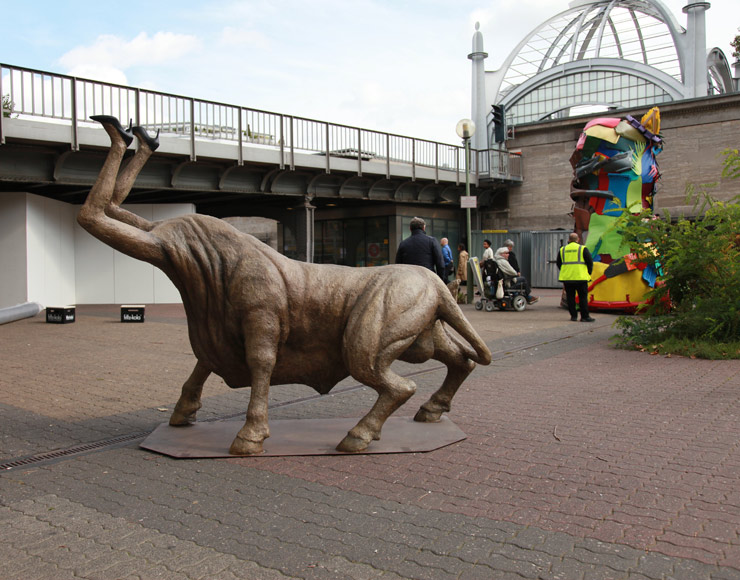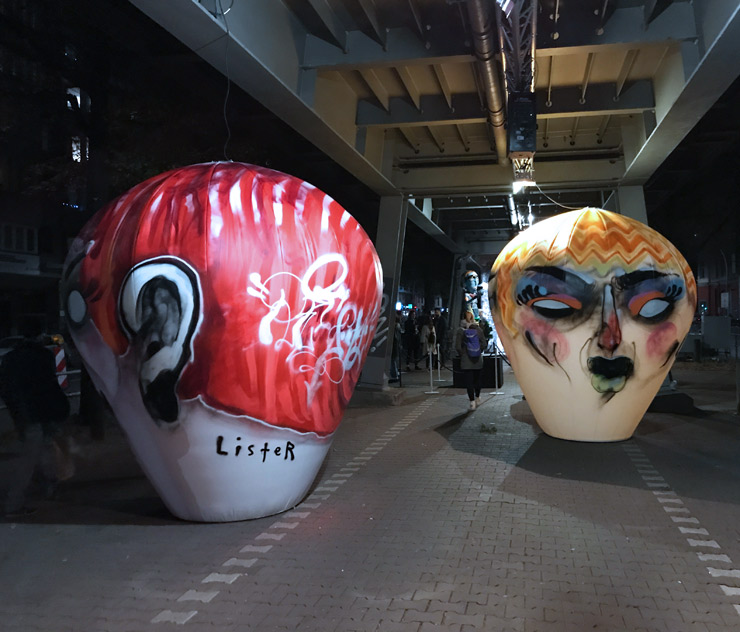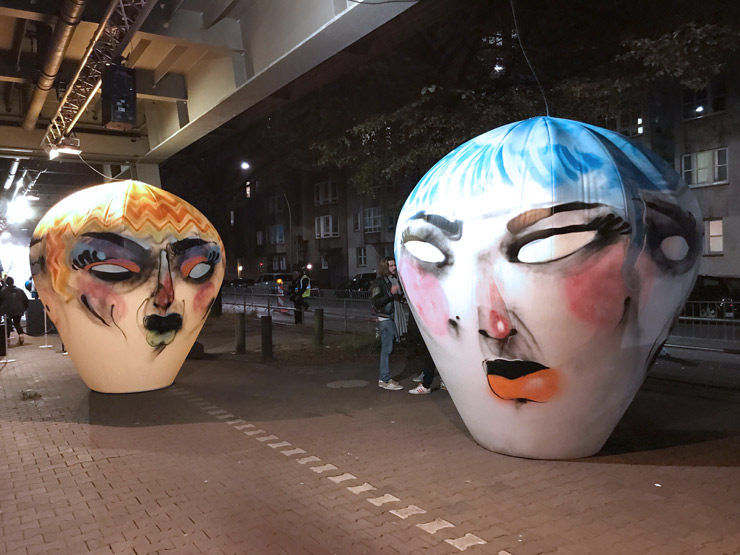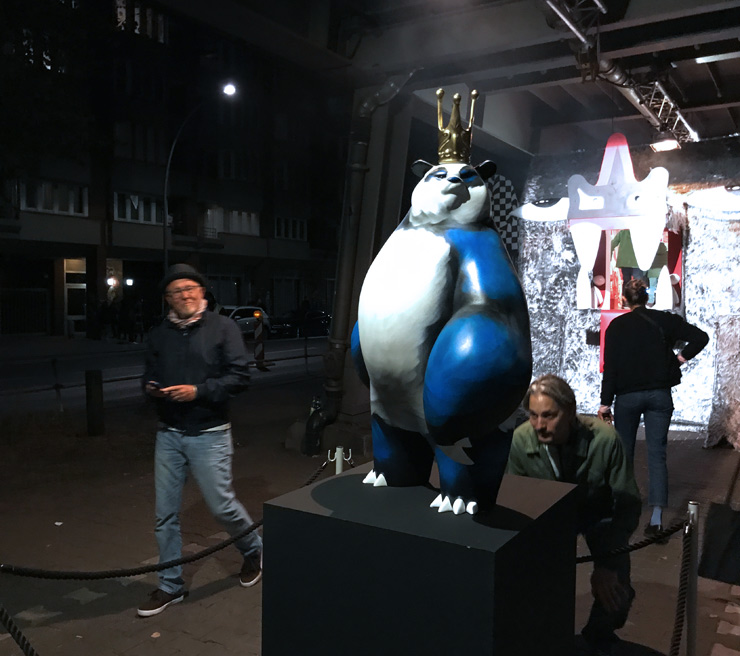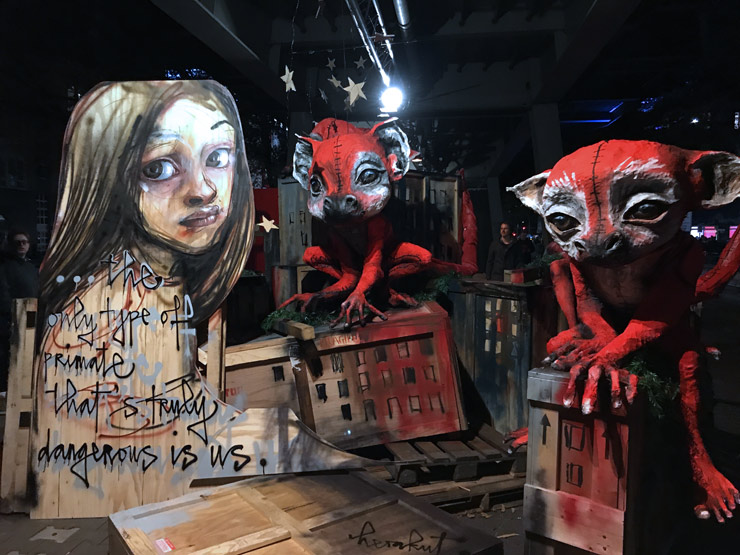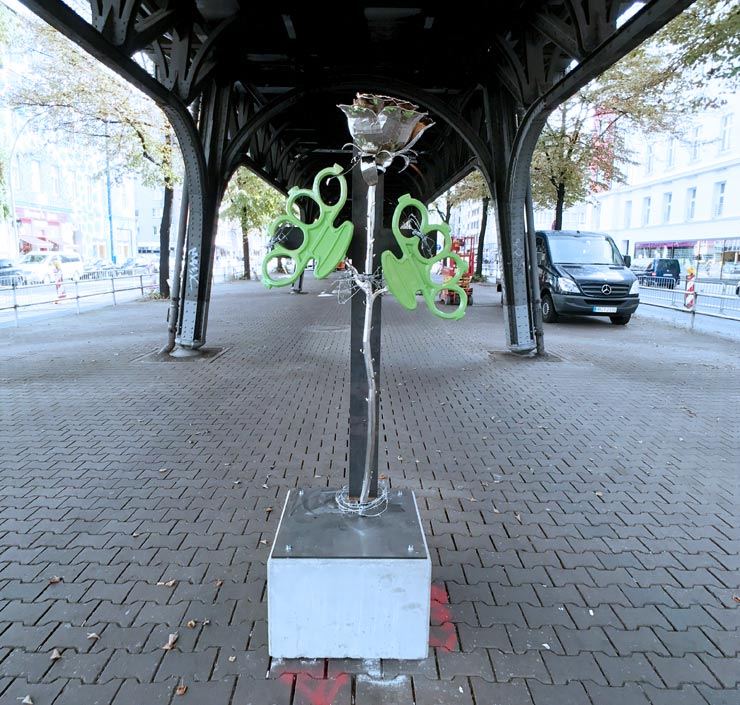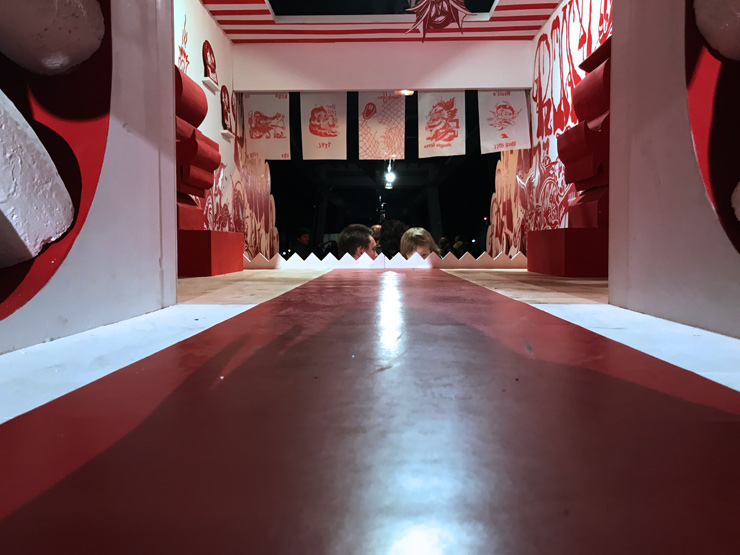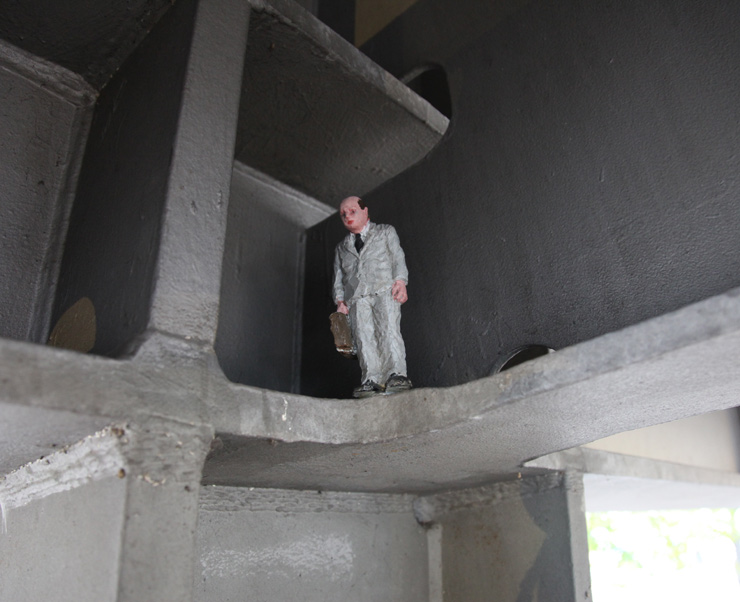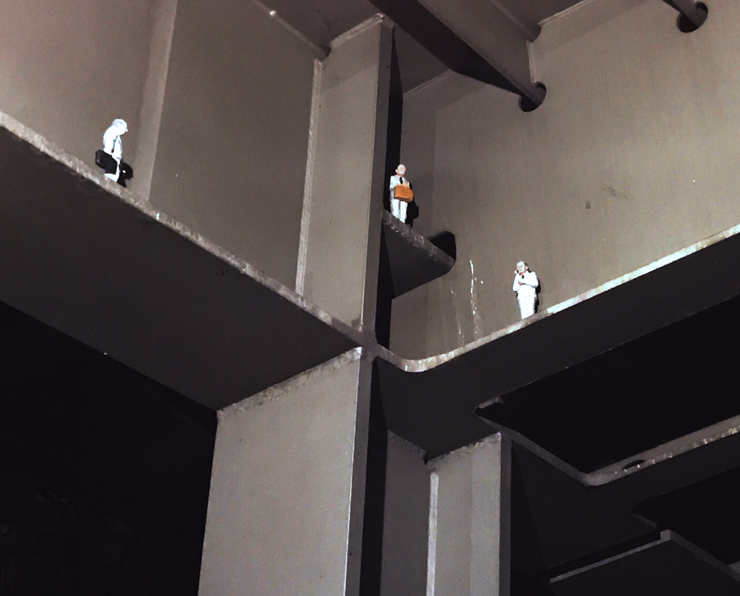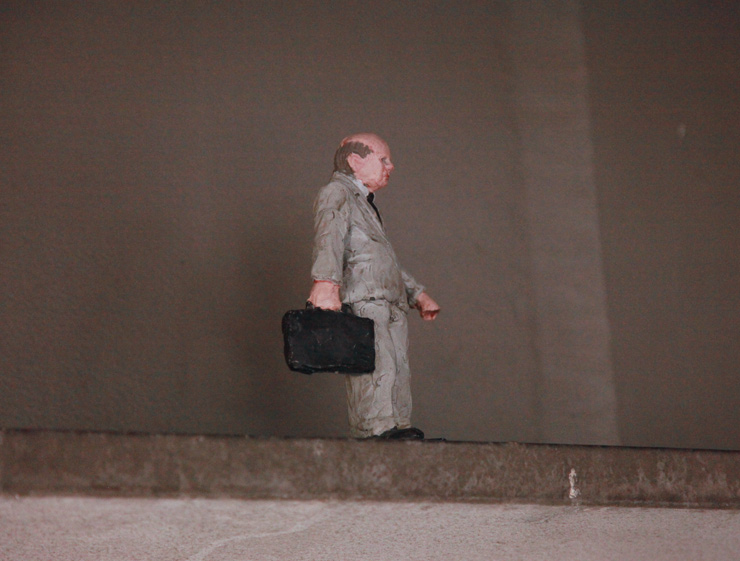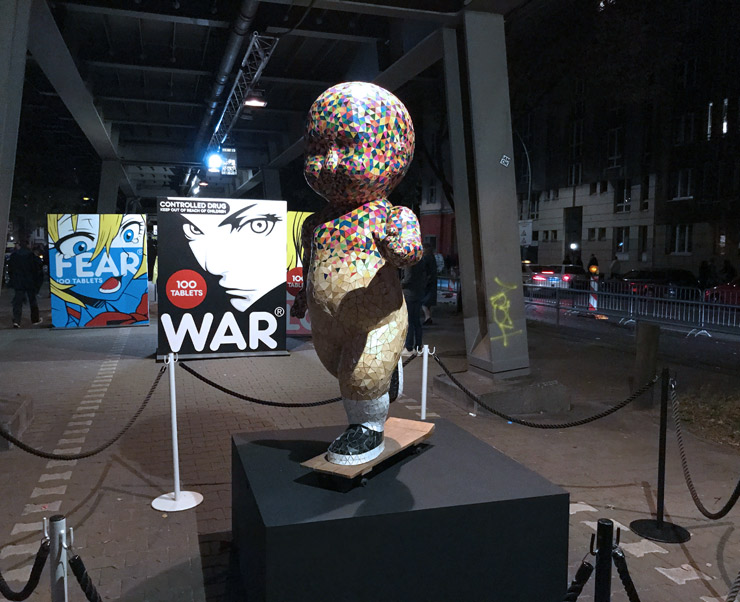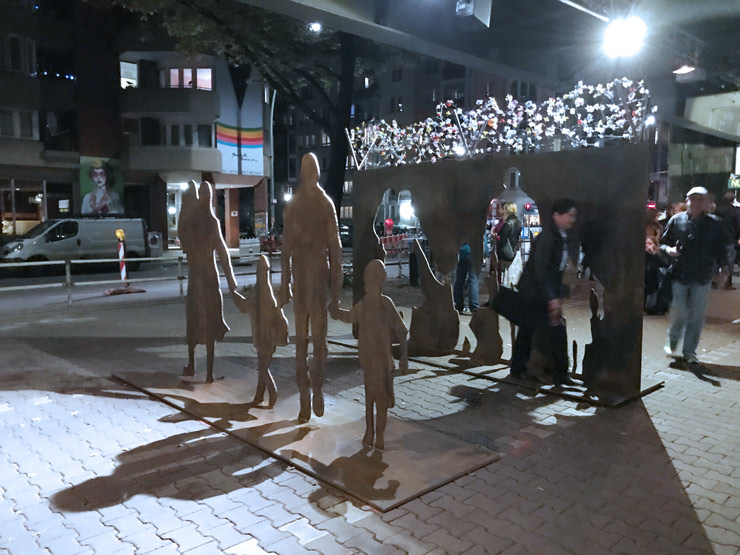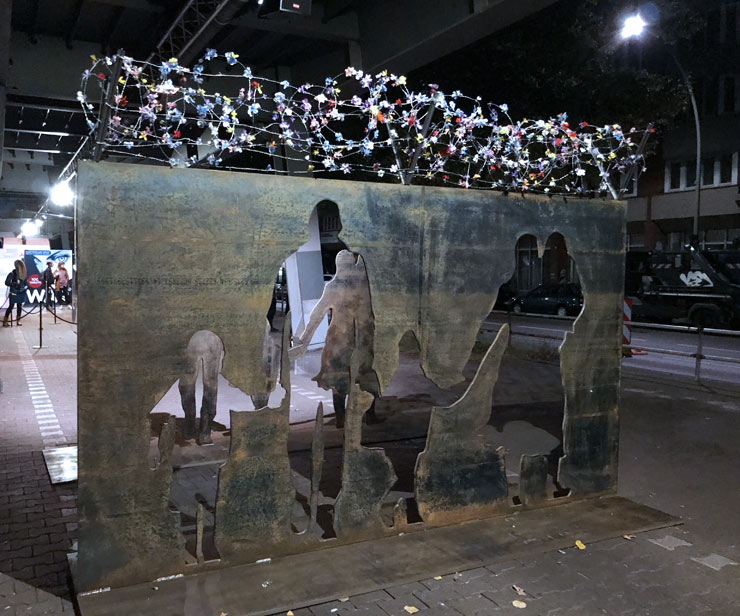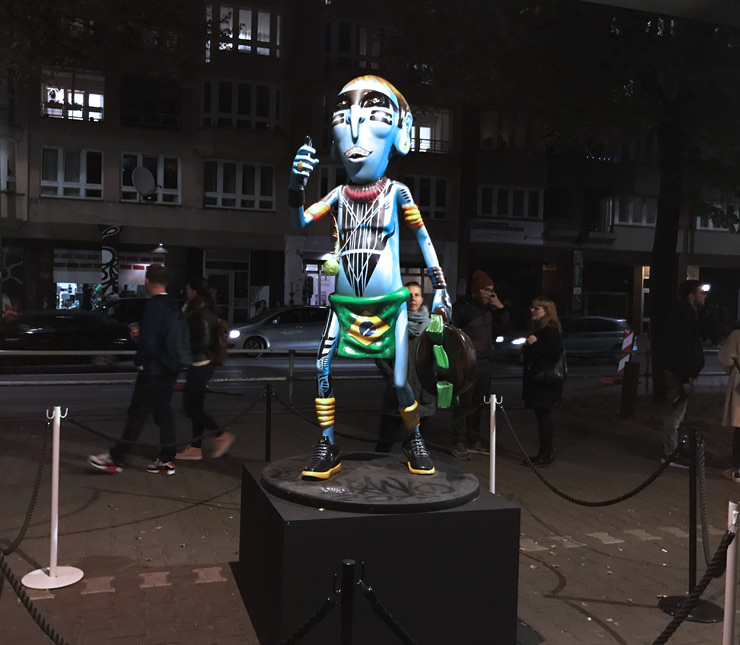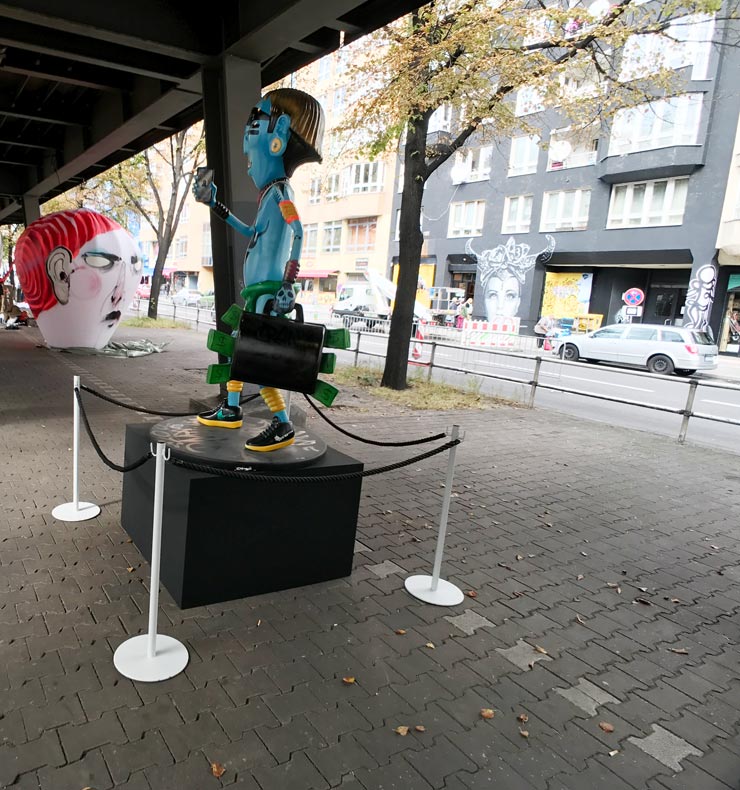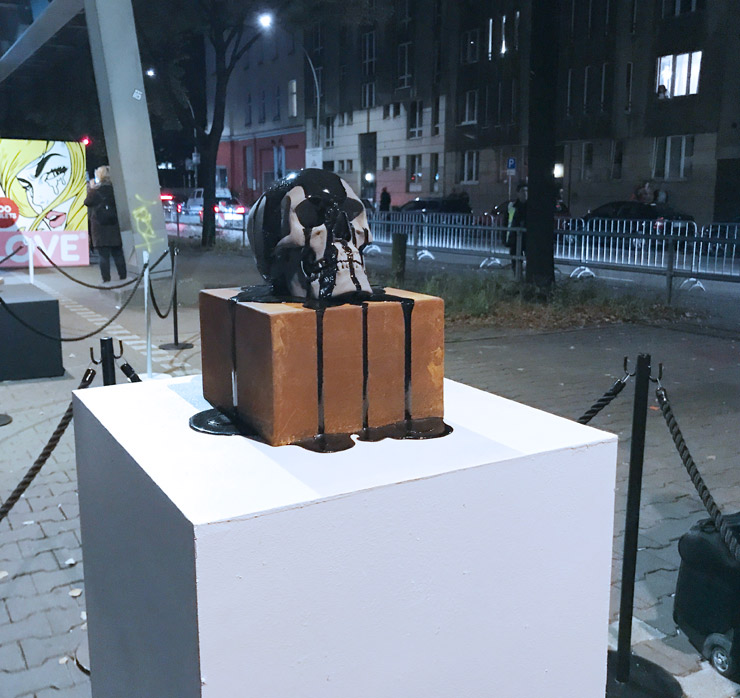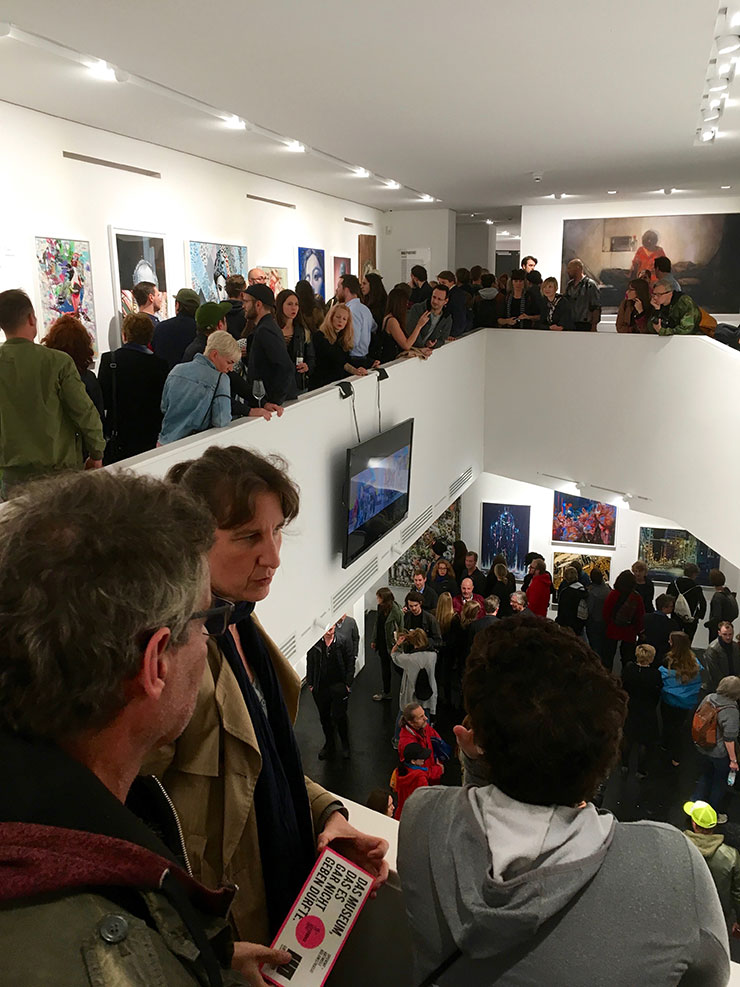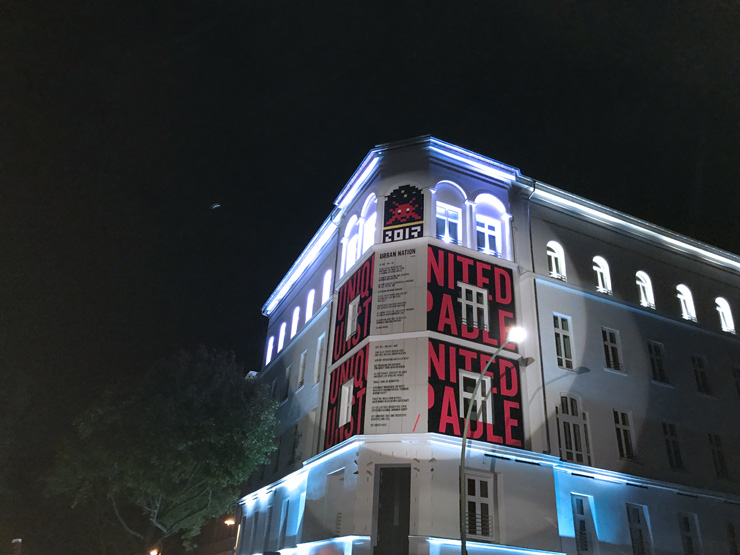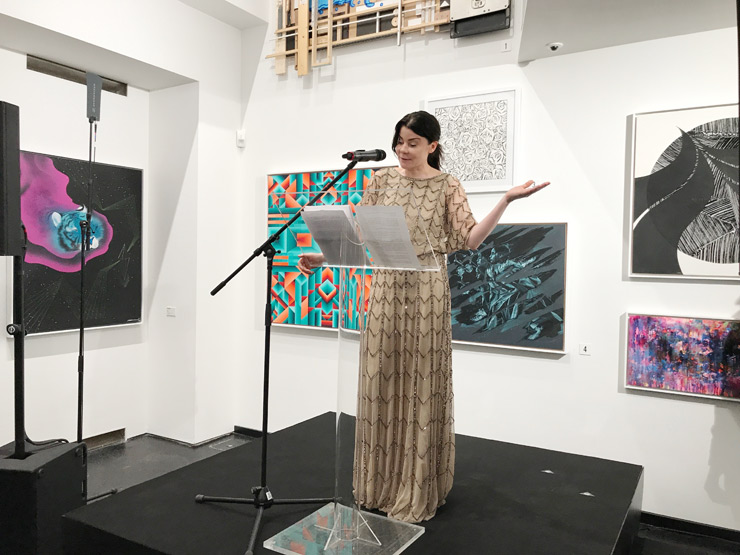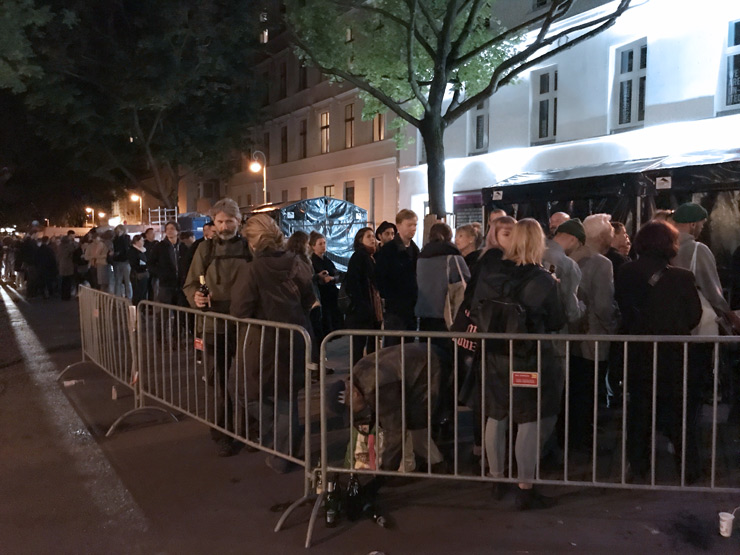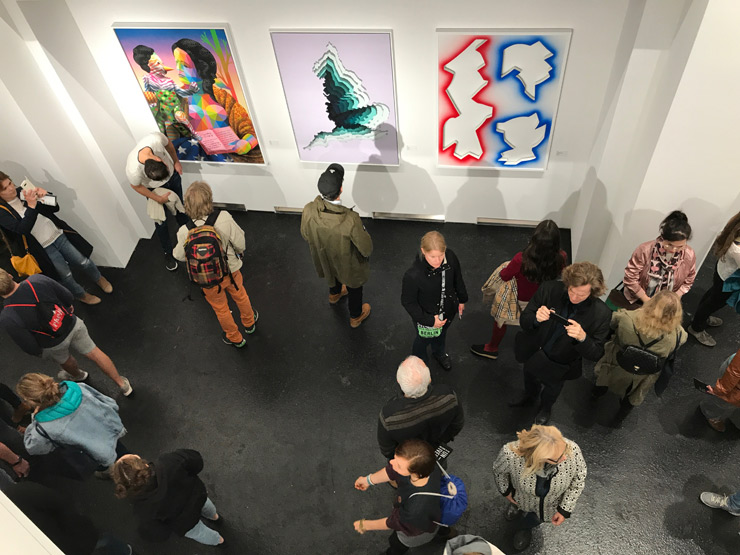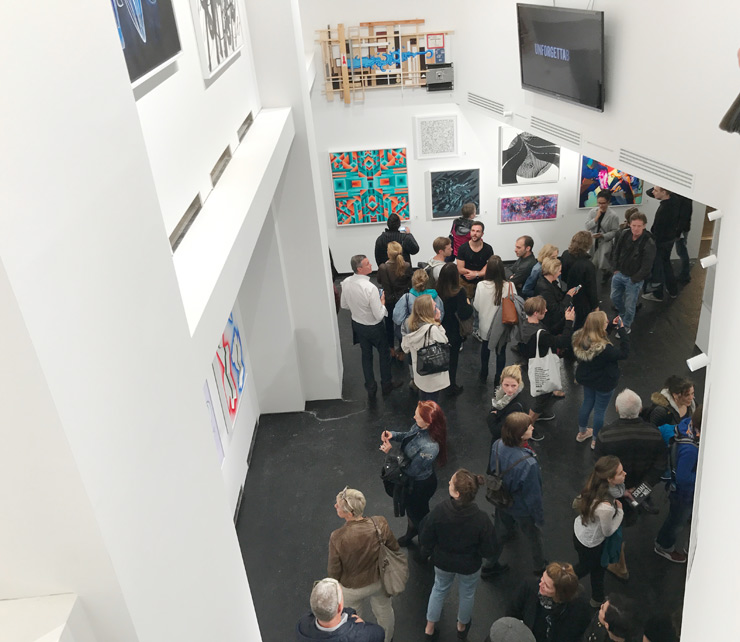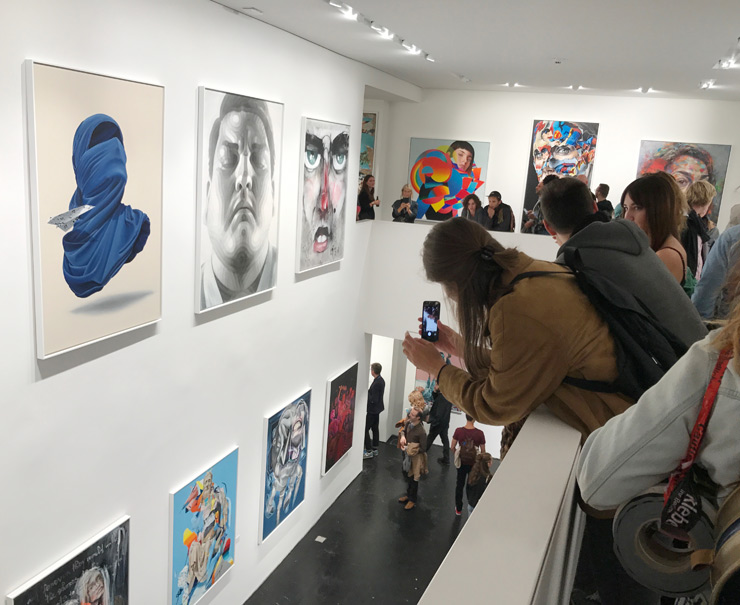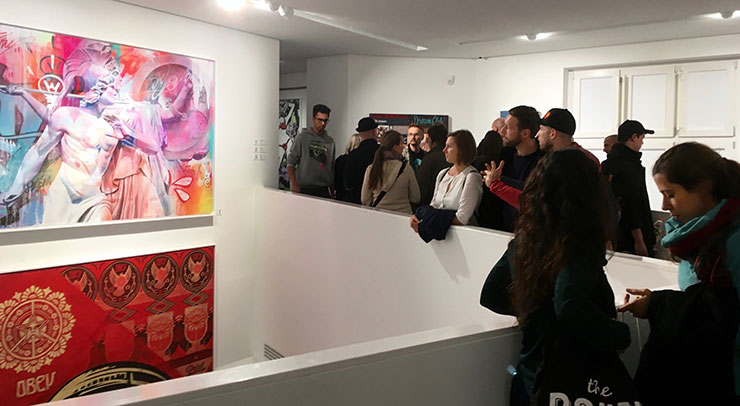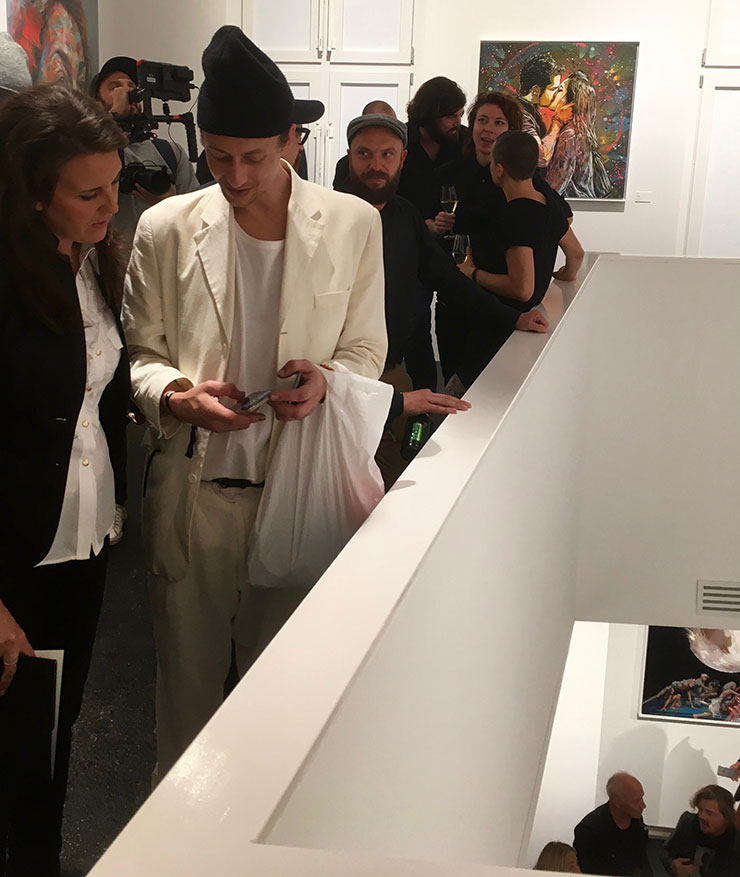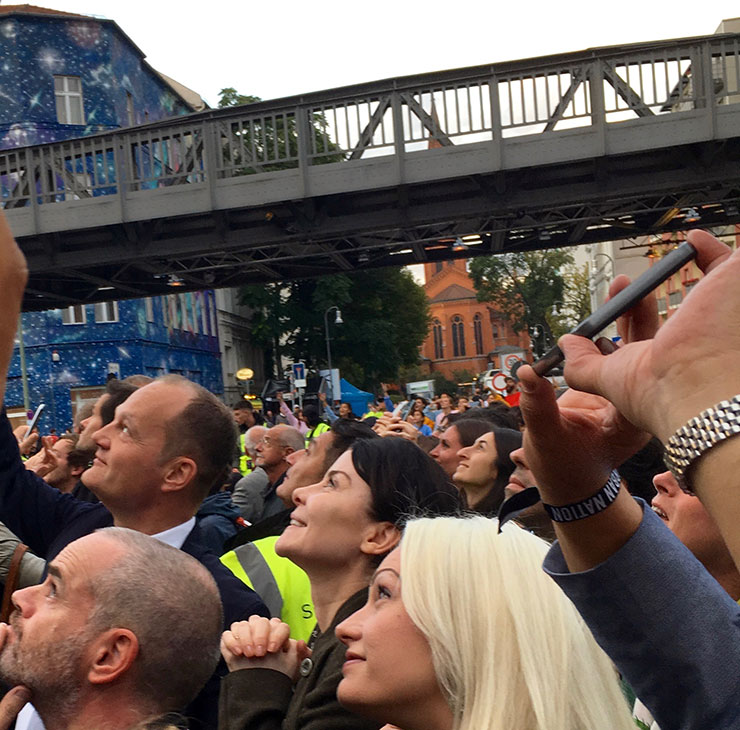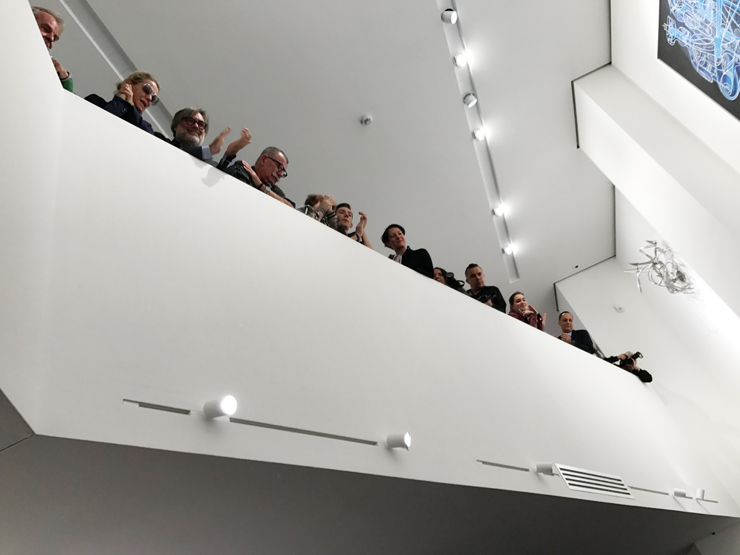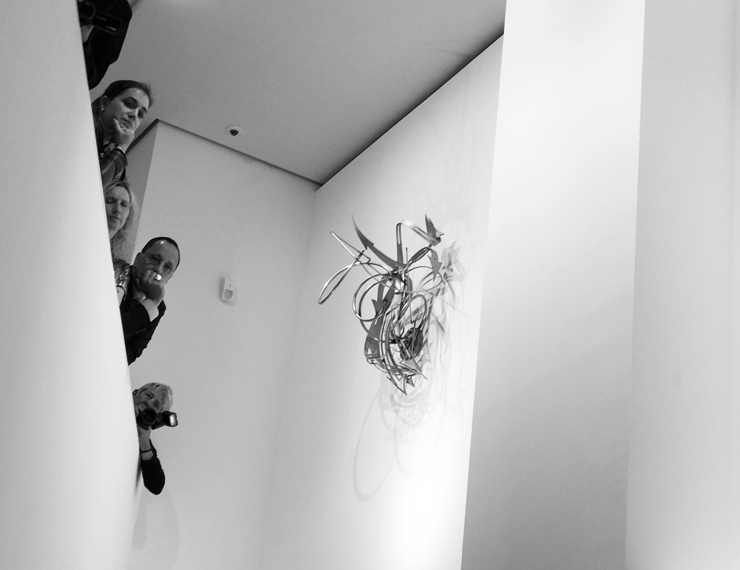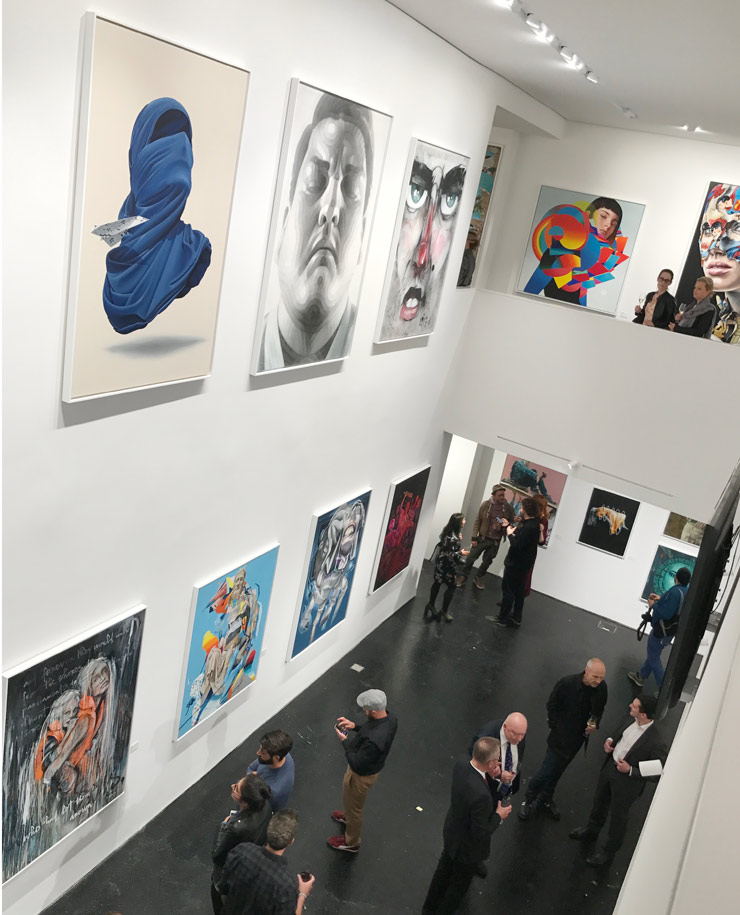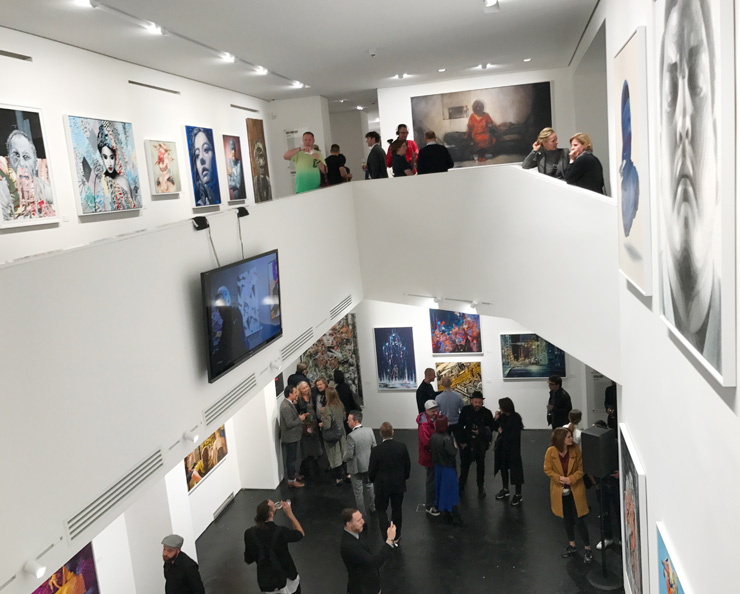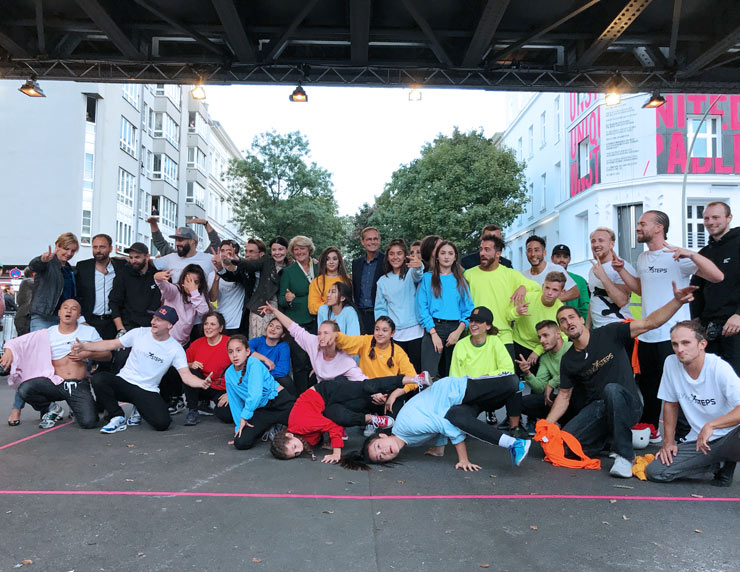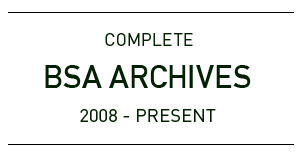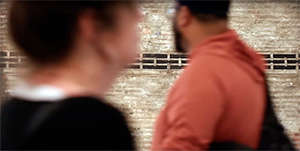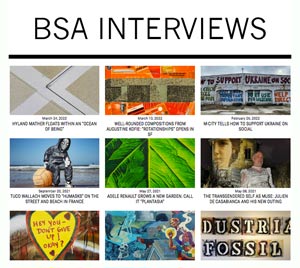A Scholarly Eye On Artistic Interventions in Public Space
The excitement that pours from city walls in Lisbon is palpable, an animated mix of graffiti, Street Art, murals, sculpture, and the traditional artisan tiles. Like the famous Bacalhau dish of Portuguese cuisine, it all can be mixed together almost a thousand different ways and each surprising recombination can be loved for its unique character.
To appreciate the varied elements playing into the Street Art scene here, you won’t find greater insight than by touring with Pedro Soares-Neves, and he’ll make sure you won’t leave without understanding the forty years that have contributed to the scene up to this point.
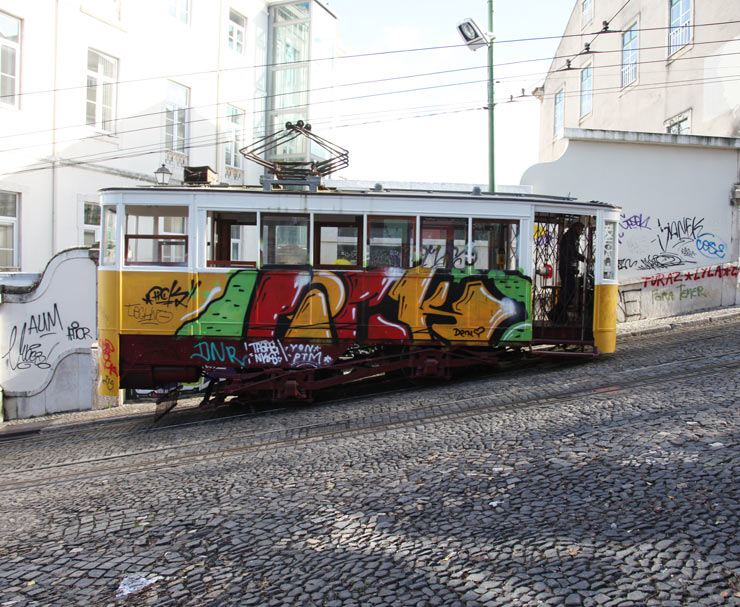
Park. Lisbon. December 2017. (photo © Jaime Rojo)
Most visitors are overtaken by the sweeping views, the heart of the old city in the valley, the winding Bairro Alto streets full of colorful illegal artworks, the ancient bricks, traditional azulejos tiled buildings, tiny streets, sloping topography, endless staircases and retro-style cable cars that are climbing impossible inclines – each slaughtered with colorful graffiti tags.
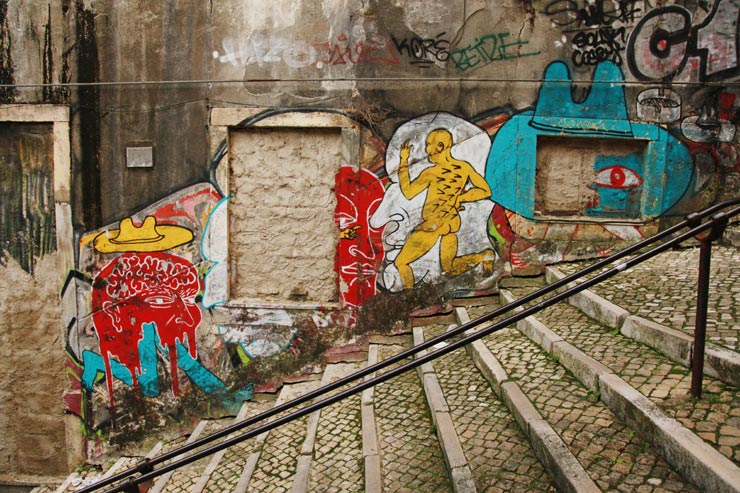
Unidentified artist. Lisbon. December 2017. (photo © Jaime Rojo)
Now an international destination for many Street Artists, the growing number of murals here is remarkable, if not outstanding. Soares-Neves can look at the huge variety of expressions on the street and explain why the art is here now and how it fits into a greater context of a historical city that has gradually embraced nearly all expressions of modern art-in-the-streets.
A self-described fan of urban history Pedro is one of the few scholars in the global urban art scene who calls graffiti writers “authors”, quite possibly because he was one himself in his early teens here during the city’s first stage of graffiti proliferation in the early 1990s.
“I am kind of an architectural urban history fanatic,” he says proudly but in a confessional tone. Completing his doctorate in Design and Urbanism this year he is also co-organizer of the Lisbon Street Art & Urban Creativity Conference and the Street Art & Urban Creativity Scientific Journal.
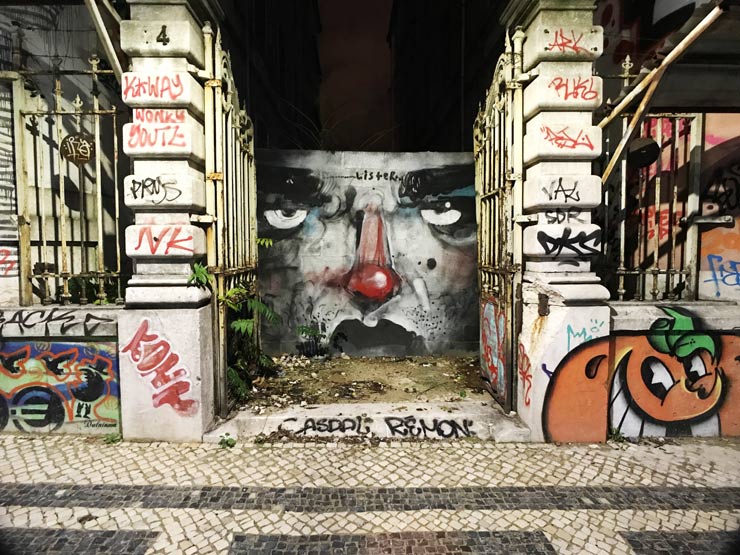
Lister. Lisbon. December 2017. (photo © Jaime Rojo)
A lifelong Lisboan born at the same time the revolution from the dictatorship was born here in the mid 1970s, Soares-Neves tells the story of urban art as a progression of social movement, individual engagement, immigration, urban planning, importation of culture, commercial incursion and coalescing of local artists as a quasi-professional network.
As you ride in his 4-door family SUV-hybrid with kids toys and storybooks scattered across the back seat, you gaze along the historic spice trade waterfront and the Jerónimos monastery and museum row, swerving through the central “filet mignon” of the ornamented city to the outskirts, which he calls “the back-office”.
He gestures at the trains and wooded walls and areas where he once painted graffiti , to some of the current crop of throwups along the highway and to wall murals that have been commissioned by municipal, professional, and commercial interests. As the trip unfolds the story is not quite linear of course, and city history intertwines with personal history.
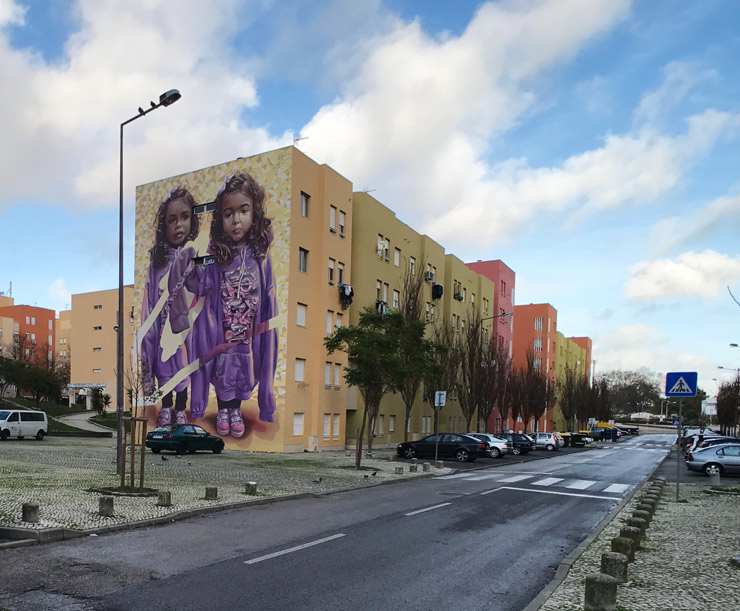
Telmo & Miel. Bairro Padre Cruz. Lisbon. December 2017. (photo © Jaime Rojo)
As is its personality, art-in-the-streets shape-shifts and redefines itself, creating new alliances, reconfiguring the balance. For example, currently Lisbon city leaders are working with former vandals and art school professionals to create programs of large colorful murals on soaring public housing towers.
The adjacent neighborhood of older single family houses laid out like suburbs features Soare-Neves’ own curated walls done by more conceptual artists who play with ideas about public space as well as aesthetics. The Portuguese +MaisMenos– directly intervenes with stenciled words here, creating quizzical conundrums for passersby and the French experimenter Matthew Tremblin who brings an online poll results via bar charts posing an existential question about Street Art.
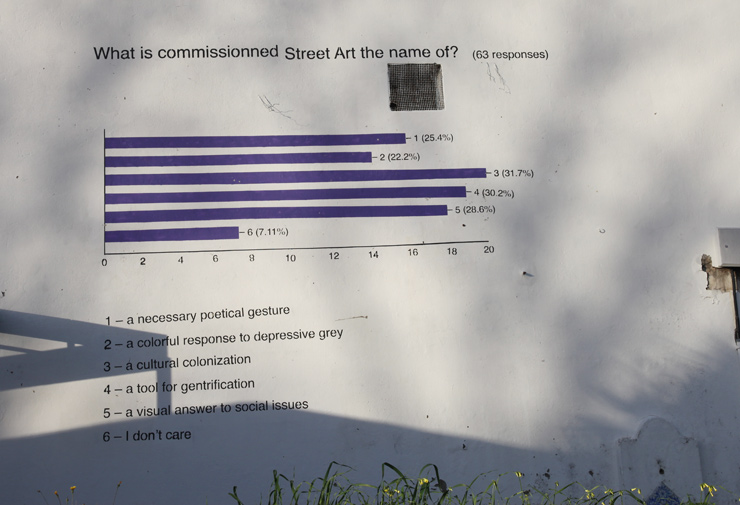
Matthew Tremblin. Bairro Padre Cruz. Lisbon. December 2017. (photo © Jaime Rojo)
A truly unique insight into the rather omnibus experience of this urban academic, we actually get to look at two eras of Pedro’s own personal history as an artist are here as well, only blocks away from one another.
This IS a tour!
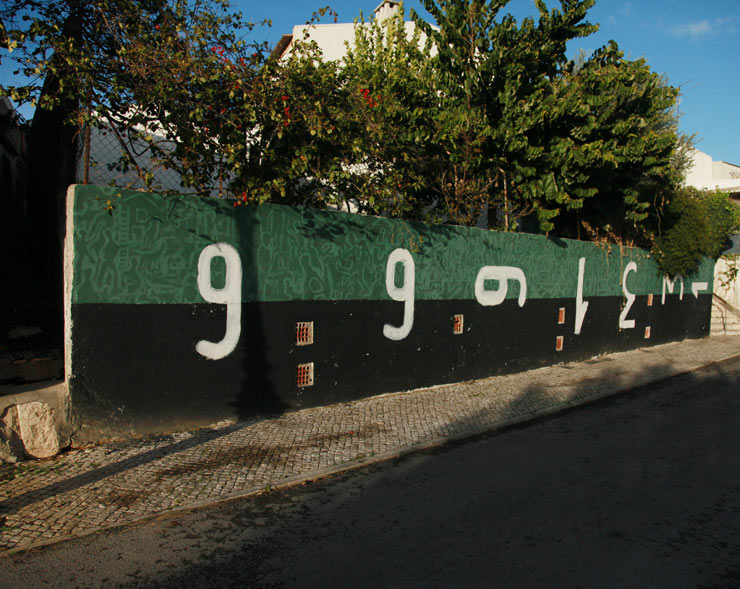
Pedro Soares-Neves. Bairro Padre Cruz. Lisbon. December 2017. (photo © Jaime Rojo)
One Soares painting is on a low wall encircling a park. Part of a graffiti wall of fame (which he helped organize), it shows his 1990s affinity for character illustration and experimentation with letter styles. His more recent installation is a mixed media paint/land art derivation that converts disused construction materials and a habit-formed footpath leading up a grassy knoll to a numerical wall.
Again, the spirit of experimentation here is what is core to his art practice. Perhaps this is why his personal philosophies toward public space lean toward the organically Situationist act of creation, a practice that can be extended to all of the public and to the moment of inspiration.
Following are many images captured in Lisbon during our tour interspersed with this history of the last few decades courtesy Soares-Neves and our own research.
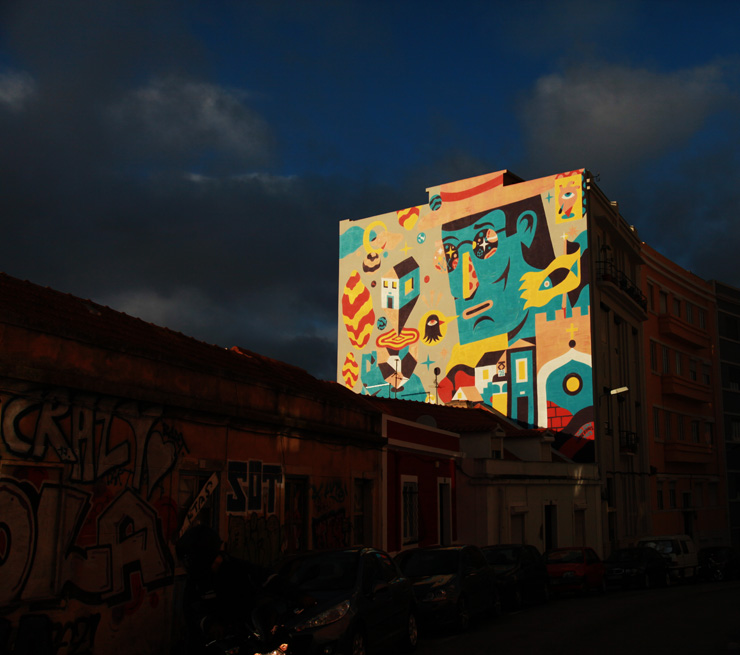
Corleone. Underdogs Gallery/Public Arts Program . Lisbon. December 2017. (photo © Jaime Rojo)
1980s-90s and Lisbon’s Dawn of Graffiti
Speaking with Pedro about the early graffiti of the 90s you capture a perspective on two important cultural factors that steered its direction.
The first is that through the lense of the liberators of the Carnation Revolution in the 1970s the style of aerosol bubble tags and characters recalled the earlier people-powered community murals and represented “freedom” in their minds, whereas cities elsewhere in Europe would have thought this painting indicated vandalism or a breakdown of the social fabric.
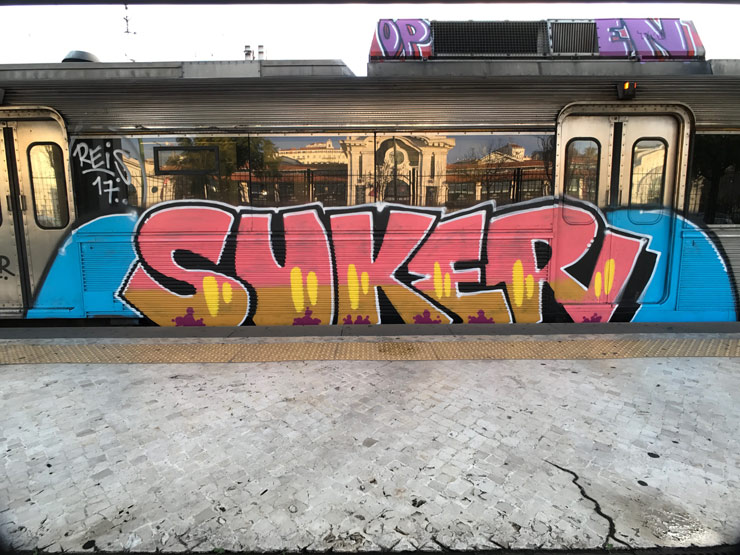
Suker. Lisbon. December 2017. (photo © Jaime Rojo)
Secondly, the fascination with graffiti was spurred by the children of African immigrants from former Portuguese territories of Angola, Mozambique and Capo Verde who moved to Lisbon after wars with them ended during the revolution. Now second generation teen immigrants from two cultures, they were looking for self-identity, according to Soares-Neves.
“They found resonance in this Afro-American and Latin American thing that was going on during the 80s so they connected with it and used it for language.”
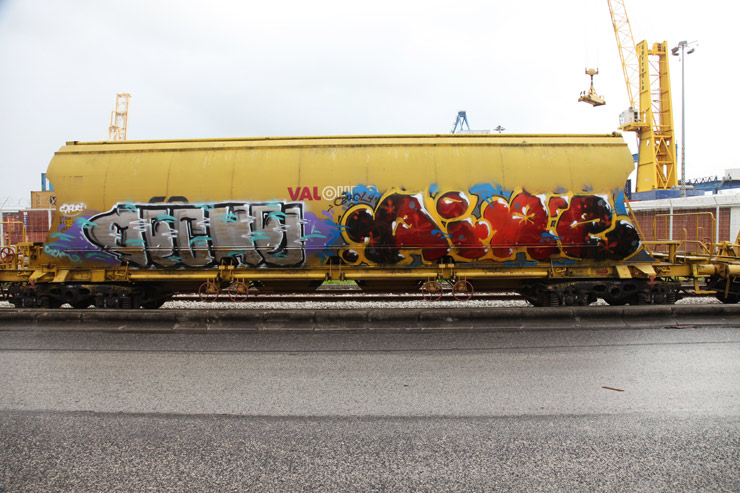
Aire. Lisbon. December 2017. (photo © Jaime Rojo)
Quite possibly they were reacting to class and race prejudice and they identified with brothers and sisters in the music videos of American commercial hip hop culture. Seeing the exciting growth and the implied power of graffiti writers, musicians, and bboy movies like “Wild Style” in the 1980s, the expression of graffiti was alluring – a welcome visual art and anti-establishment practice that created identity, community, and newfound respect among a select peer group of cool kids.
“Actually it started with bboying culture in the mid 80s and then in the early 90s it started with a visual language of it,” he says, explaining the progression.
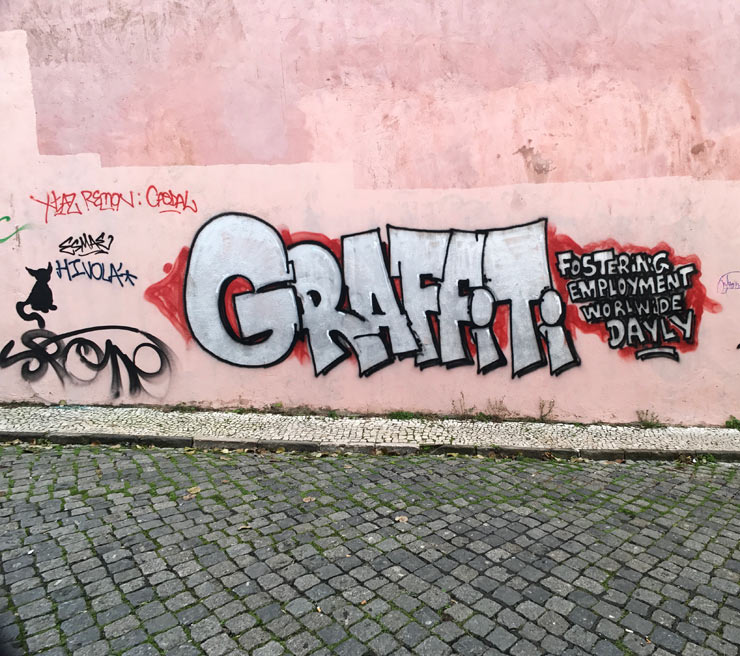
Unidentified Artist…speaking the truth. Lisbon. December 2017. (photo © Jaime Rojo)
A Personal Introduction to Graff
His own teenage aestheticism extended to characters, and a fascination for punk or “rough” magazines and the illustration stylings of artists in the classic Chiclete com Banana magazines. “I had this relationship with drawing and cartoons and this kind of stuff – this popular culture sort of thing,” he says.
His talents as an artist were well prized among his peers until he was nearly outshone by a graffiti writer from Capo Verde, a classmate who threatened Pedro’s status as the school artist; a funny story he explains this way:
“At that time in my high school I was ‘The’ guy who was doing the best cartoons and all this kind of stuff,” he says, reflecting on his celebrity. “Suddenly he did a big piece on the wall! So I was the king of the ‘drawing thing’ and this motherf***er came here and did a big and colorful piece!”
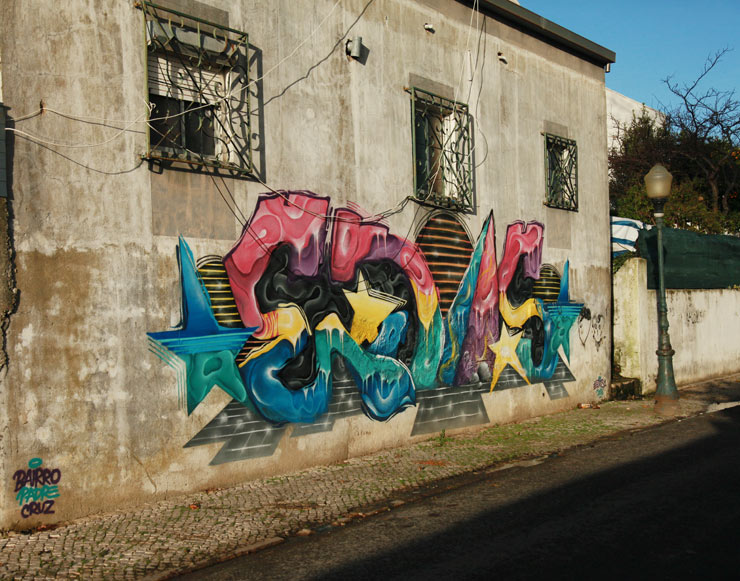
Edis1. Bairro Padre Cruz. Lisbon. December 2017. (photo © Jaime Rojo)
BSA: ..and everyone knew about it of course.
Pedro: Yeah of course it was much more visible than what I did. So I started to interact with the guy.
Pedro’s personal history with graffiti began there and never stopped. After starting on walls and greatly enlarging his own illustrations and experimenting with letter styles, he and his peers grew to about 10 or 12 writers and the graffiti scene appeared to blow up from there.
A community of writers from many backgrounds spread across the city practicing one-upsmanship in technical skill and logistical daring, operating singularly, in small groups, or the occasional Wall of Fame project. Because there wasn’t a strict evolutionary lineage of style, many young artists developed their own in the laboratory of the street, not necessarily related to the hip hop culture but adapting from their own culture.
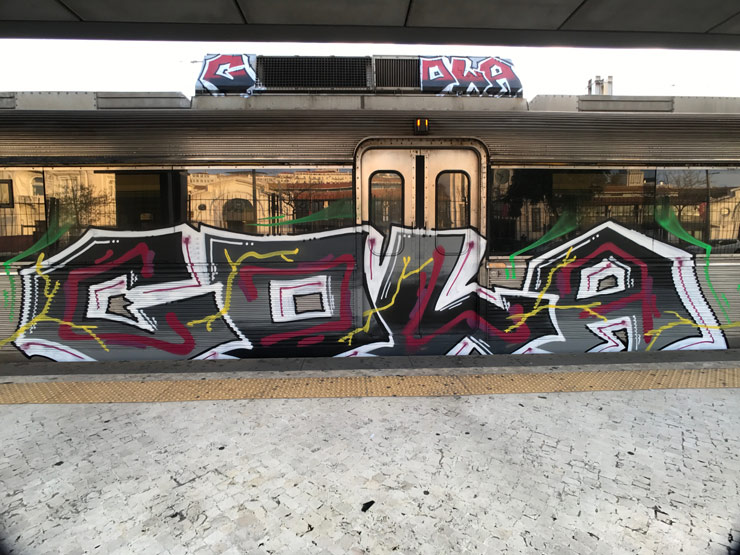
Cola. Lisbon. December 2017. (photo © Jaime Rojo)
2000s and the Turn Toward Street Art
By the late 90s and early 00s he feels that the scene suffered a sort of malaise when purely commercial murals began to take parts of the wall inventory and change the character of some areas. It was a development he deeply disliked for its perversion of a freer art practice yet he appreciated it for the employment it provided to professional artists. The city also borrowed the vernacular of graffiti for public service announcements painted as murals.
The mid 2000s began to reflect the influences of artists like Banksy and a new sort of community comprised of artists from old school graffiti writers and new generation Street Artist began to coalesce in Lisbon he says. Additionally the later 2000s began an increasing flow of international Street Artists and graffiti writers who began avoiding Barcelona after that city started cracking down on their famed urban art scene.
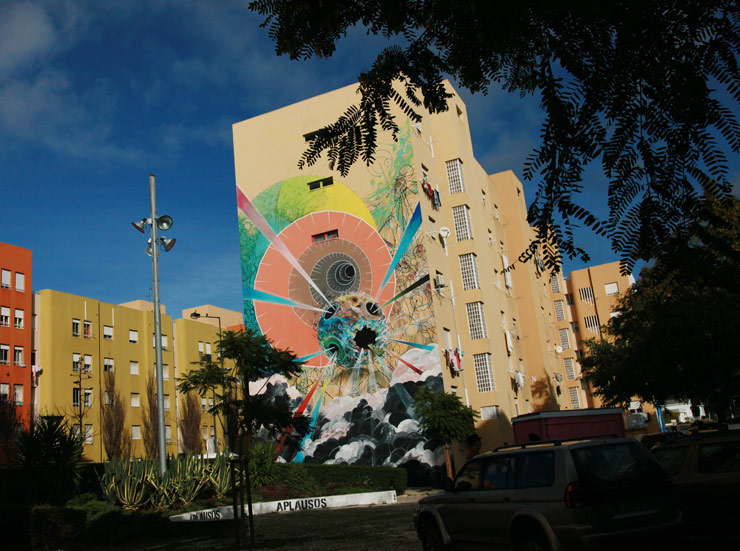
RAM. Bairro Padre Cruz. Lisbon. December 2017. (photo © Jaime Rojo)
“They (artists) started to add a few other languages to try to surpass this previous period and also began dialoguing with the new things that were happening in Street Art,” he says of the witty skewering of pop culture iconography, introduction of fine art illustration styles and the use of newer art-making methods.
“It was starting to really have lots of people doing stencils and paste ups and this kind of stuff all around. It started to influence the younger generation and that put some pressure on the older generations, who started to do that themselves.”
Visual Street Performance and the Crono Project
A collective guild comprised of artists from both graffiti and Street Art like HBSR81, Hium, Klit, Mar, Ram, Time and Vhils joined together in the mid 2000s and called themselves Visual Street Performance (VSP). A professional/DIY effort, they began to organize large events and an annual exhibition through 2010 that expanded the vernacular to hybrids of fine art and elements of pop, character illustration, photo realism, surrealist fantasy, found object art, abstract expressionist, more traditional graffiti and graphic design.
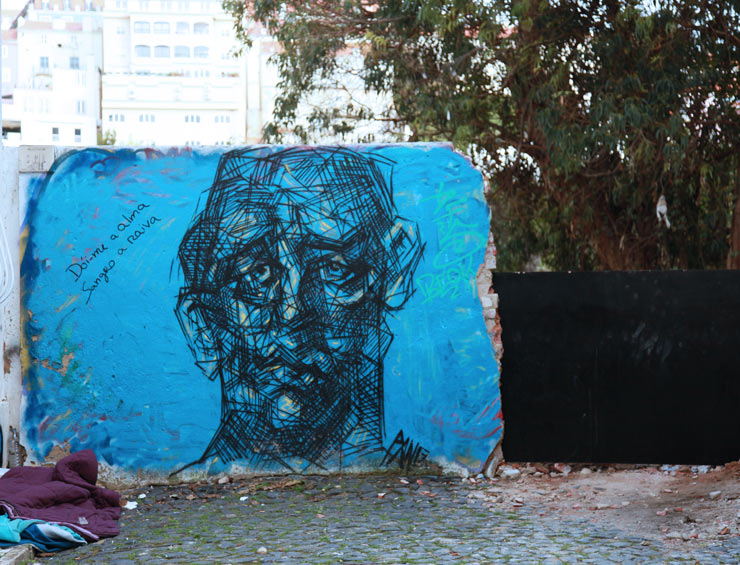
Pang. Lisbon. December 2017. (photo © Jaime Rojo)
Pedro had been studying abroad in the Czech Republic and Rome for a few years, “And when I came back I noticed a different panorama. There were lots of younger kids with totally different skills and with that approach of making money out of it,” he says with a mixture of admiration and possibly concern at the professionalism entering the equation.
“They managed to invent themselves,” he says, “and also within the exhibitions the kids like Vhils were born from these,” he says as he talks about the commercial aspects of the cultural scene with connections to an aerosol art brand, print makers, and related clothing projects.
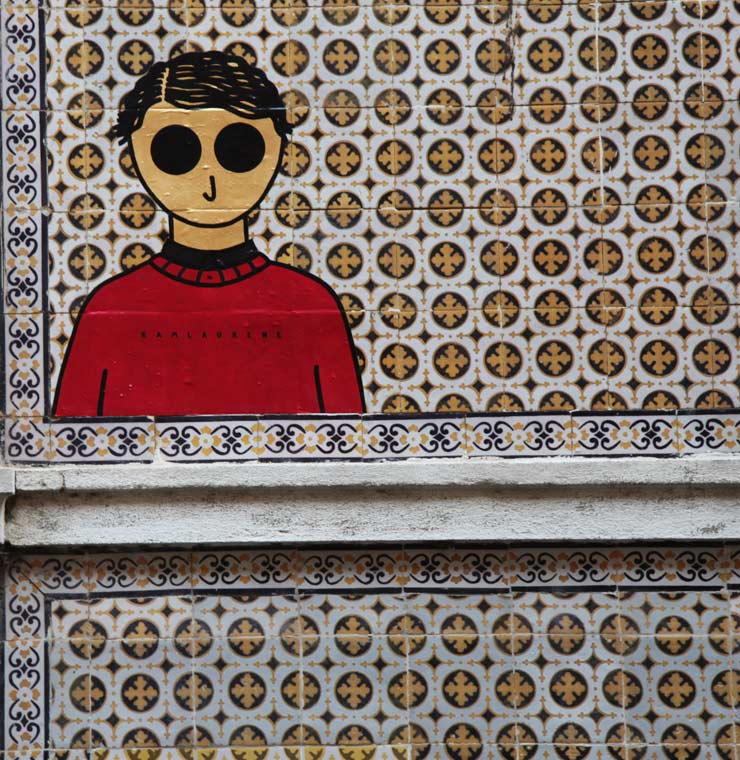
Kam Laurene. Lisbon. December 2017. (photo © Jaime Rojo)
A notable commercial and marketing milestone that married Street Art and urban culture with the image of Lisbon itself took place in 2010-11 when the year long Crono project, curated by Soares-Neves, Angelo Milano (of Fame Festival), and local Street Artist Vhils (Alexandre Farto), brought rising stars of the moment to a high profile block-long series of ornate Art Nouveau and shuttered buildings along a heavily traveled strip in the city, Avenida Fontes Pereira de Melo.
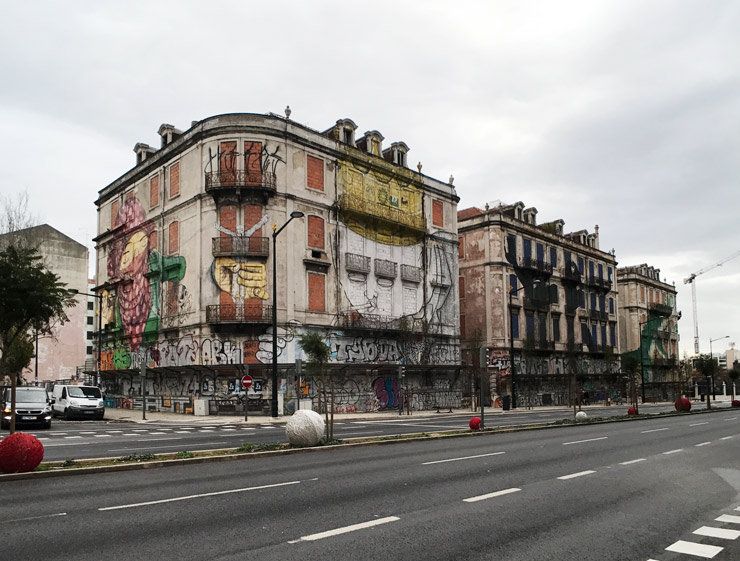
Os Gemeos . Blu . Sam3 . Erica Il Cane. Crono Project. Lisbon. December 2017. (photo © Jaime Rojo)
The Internet’s volleying of fresh images of pieces by the Italian anti-corporate BLU, the hallucinatory dream illustration style of Brazilian graffiti twins Os Gemeos, and the lyrical storytelling of Spanish 2-D SAM3 alerted the Street Art worlds’ knowledge of Lisbon, and the project quickly became a destination for travellers.
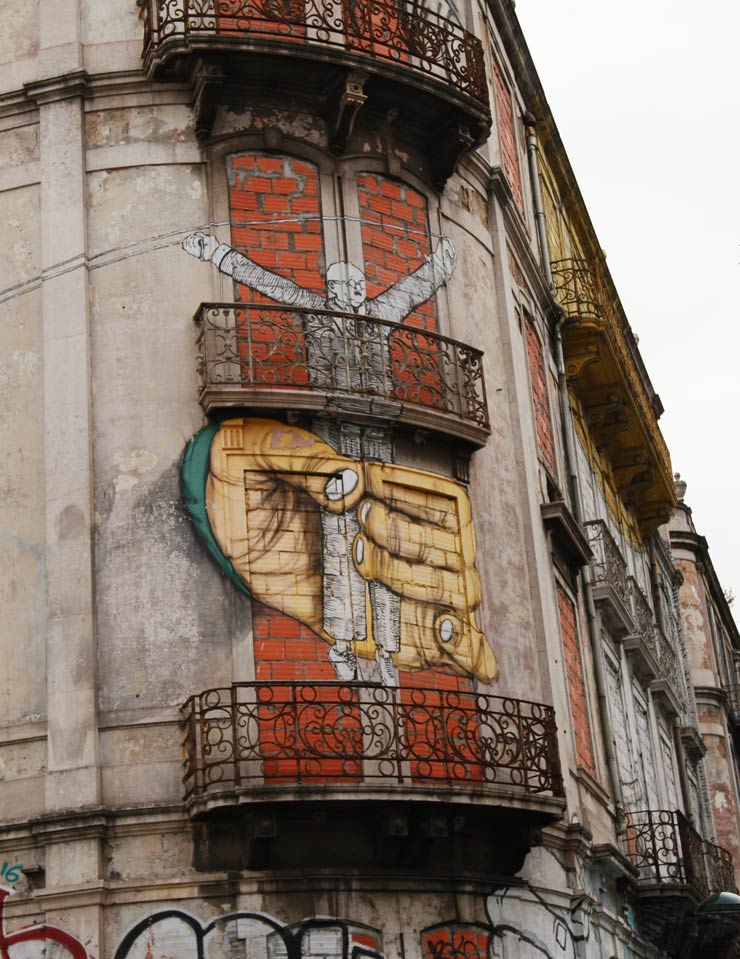
Os Gemeos . Blu. Crono Project. Lisbon. December 2017. (photo © Jaime Rojo)
Soares-Neves sometimes speaks about the commercial appropriation of the street art vernacular in his academic work and in some ways it appears that the unexpected success of the Crono Project unsettled him as well. The curators had worked with the city to finance the project with an intention of giving opportunities to artists and fostering new aspects of the public art conversation, but according to Soares-Neves the high profile of the project undermined their own anti-establishment sentiments when city leaders recognized that a comparatively modest investment had ballooned into a successful city “branding” campaign.
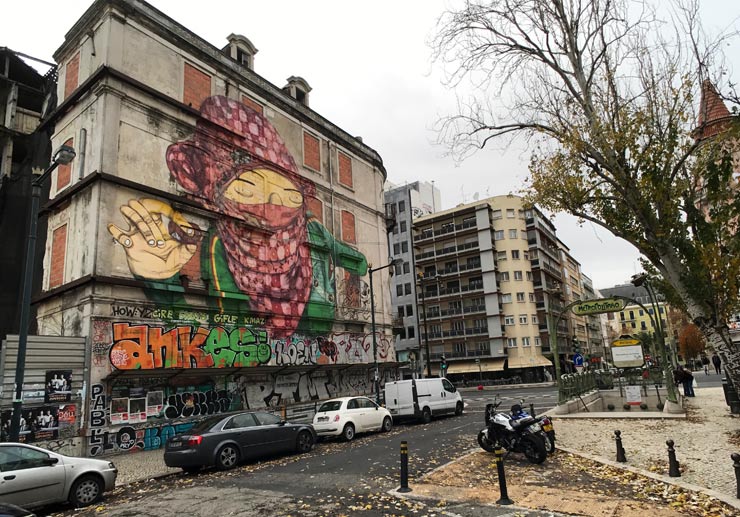
Os Gemeos. Crono Project. Lisbon. December 2017. (photo © Jaime Rojo)
Possibly this is a cautionary tale that underscores the incremental dangers present when subculture crosses the rubicon into simply “culture”. There is always the fear that the original philosophies encoded in a subculture will be irreparably transformed, candy-coated, cheapened, or worse, excised.
Recently closed London-based Street Art print pioneers “Pictures On Walls” lamented in a somewhat tongue-in-cheek way on their website in January when describing the evolution of their 15 year old business this way, “…inevitably disaster struck – and many of our artists became successful. Street Art was welcomed into mainstream culture with a benign shrug and the art we produced became another tradeable commodity.”
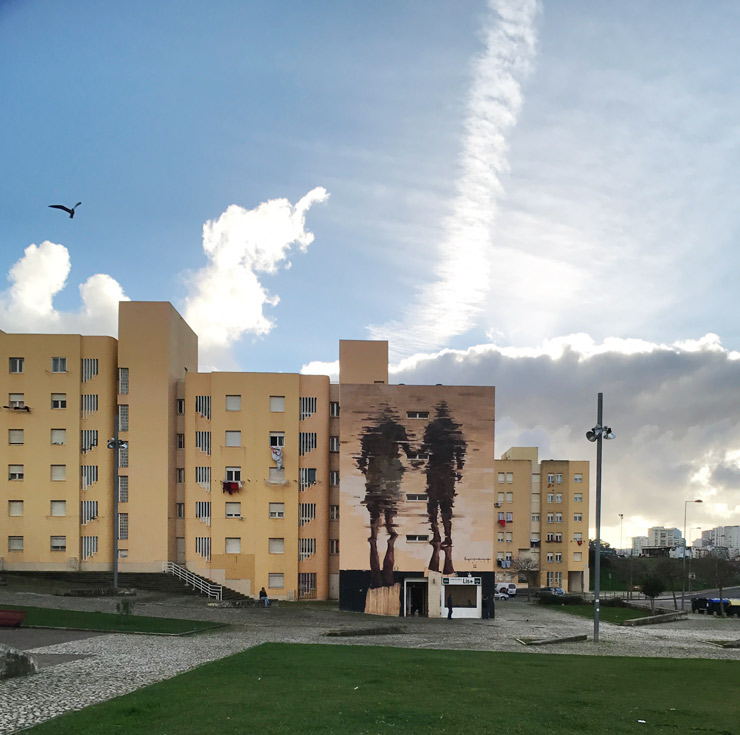
Borondo. Bairro Padre Cruz. Lisbon. December 2017. (photo © Jaime Rojo)
The City We See Today
The city seems like it is absorbing all of these changes well, and the variety of faces and styles of public artistic intervention that you see scattered throughout it feel vibrant and necessary. The city continues its 25 year heritage of organic graffiti and entertains international writers and has the occasional Walls of Fame. Elements of unsanctioned Street Art exists as well and neighborhoods are accented by the new generation of muralists with mad skillz.
Then there are those who are a little harder to categorize, like the subtle reworkings of traditional Portugues tiles with modern icons and patterns by Add Fuel and the prized sculptural pieces across the city by the trash-recycling animal naturalist Bordalo II, who just had a massive solo exhibition in November.
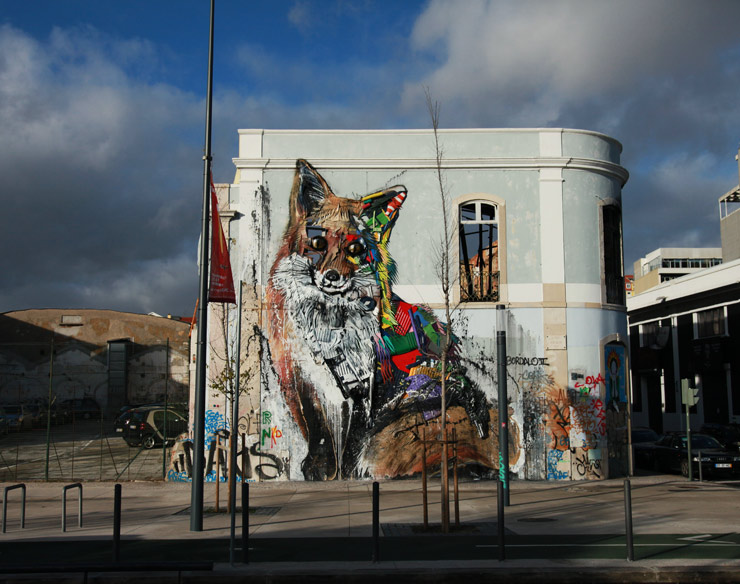
Bordalo II. In conjunction with his solo exhibition ATTERO Lisbon. December 2017. (photo © Jaime Rojo)
The contemporary urban artist and international Street Art star Vhils is a company at this point: operating a studio in a few cities, here running a gallery, a studio laboratory program for young artists, a street art tour business, and partnering with city art programming initiatives as well as brands. Somehow he still finds time to create artworks in the streets, including a recent portrait collaboration with Shepard Fairey in Lisbon and LA.
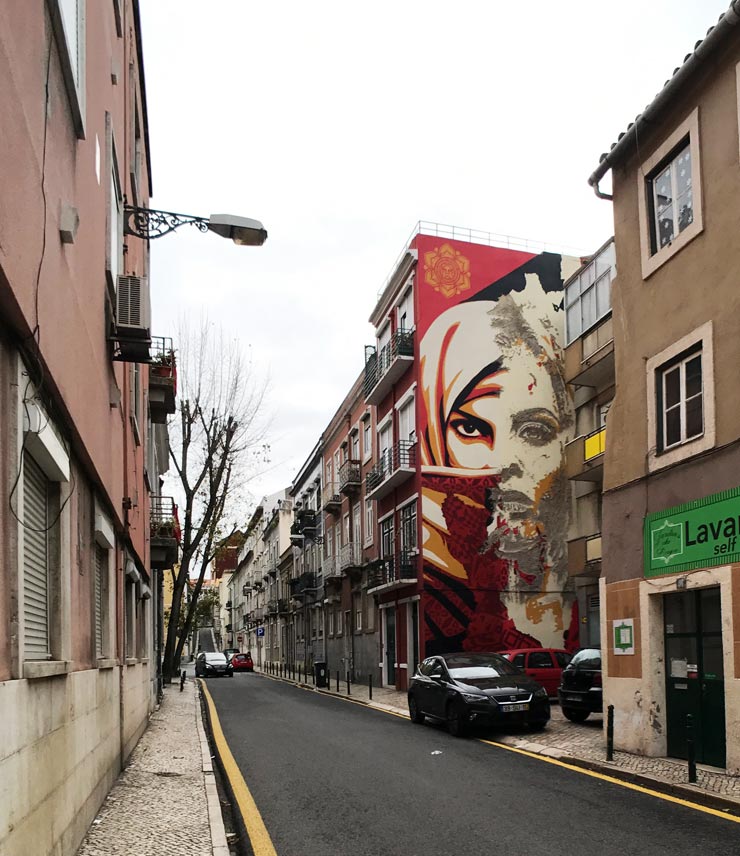
Shepard Fairey . VHILS. Underdogs Gallery/Public Arts Program . Lisbon. December 2017. (photo © Jaime Rojo)
At the end of our tour marathon Pedro Soares-Neves takes us to the Centro de Informação Urbana de Lisboa (Lisbon Urban Information Center) where we climb the stairs through the airy modernist foyer full of scholarly readers to discover a small scale maquette of the entire city that we have just been traversing.
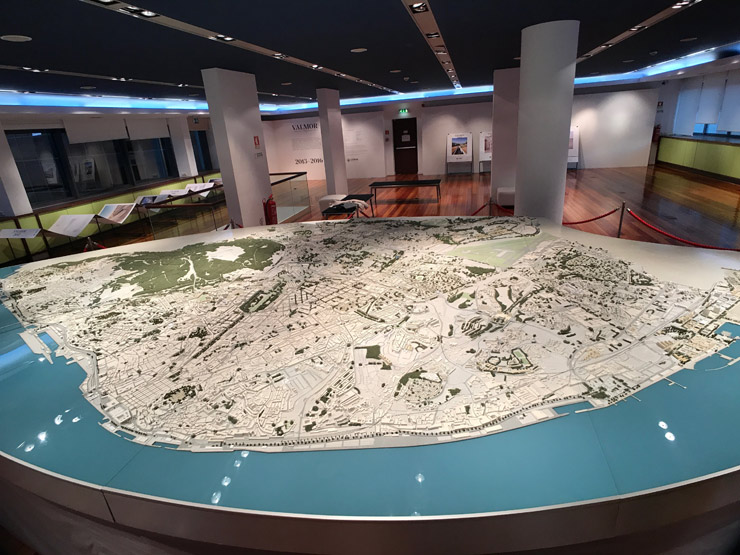
Lisbon. December 2017. (photo © Jaime Rojo)
Fanned out for you before the shiny blue Tagus River, perhaps 15 meters at its full expanse, the topographic features of the city are much less daunting when viewed from this perspective. As Pedro walks around the perimeter of the mini-city and points to neighborhoods, regions, the forest, the airport, the old city and the newly gentrifying areas of Lisboa he recounted stories of expansion, retrenchment, privatization, skullduggery and deliverance.
Thanks to him we appreciate graffiti/ Street Art/ urban art truly in its context of this city, its history, its people and the built environment like never before.
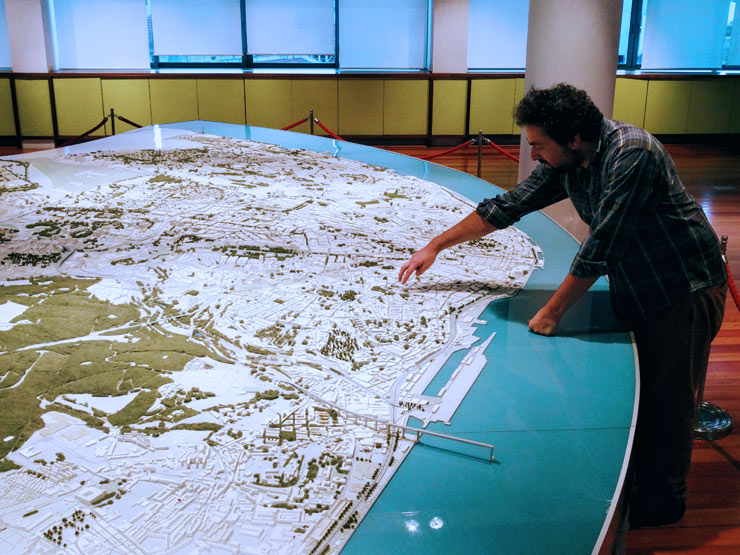
Lisbon. Pedro makes a point. December 2017. (photo © Steven P. Harrington)
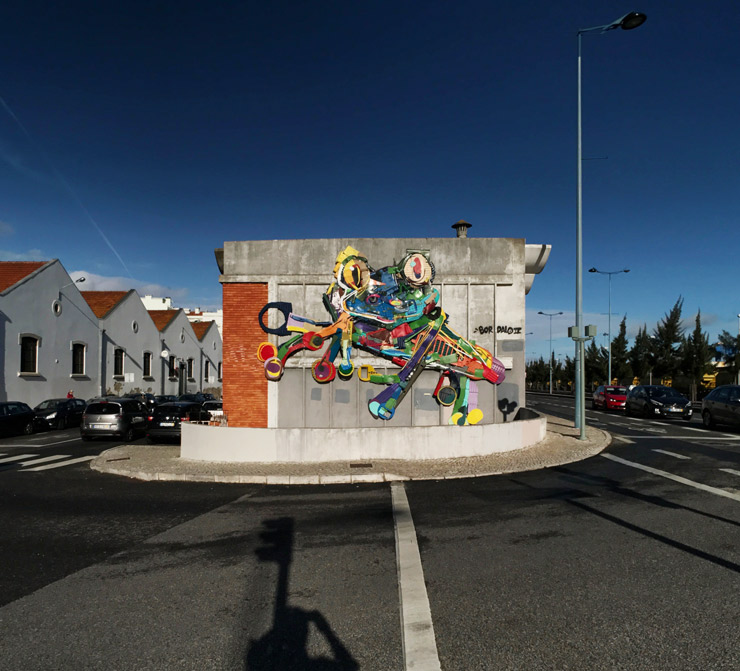
Bordalo II. In conjunction with his solo exhibition ATTERO Lisbon. December 2017. (photo © Jaime Rojo)
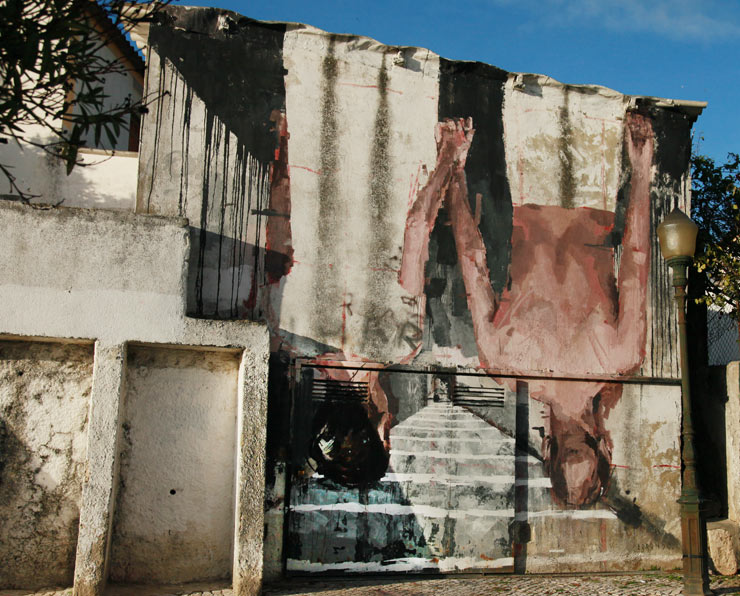
Borondo. Bairro Padre Cruz. Lisbon. December 2017. (photo © Jaime Rojo)
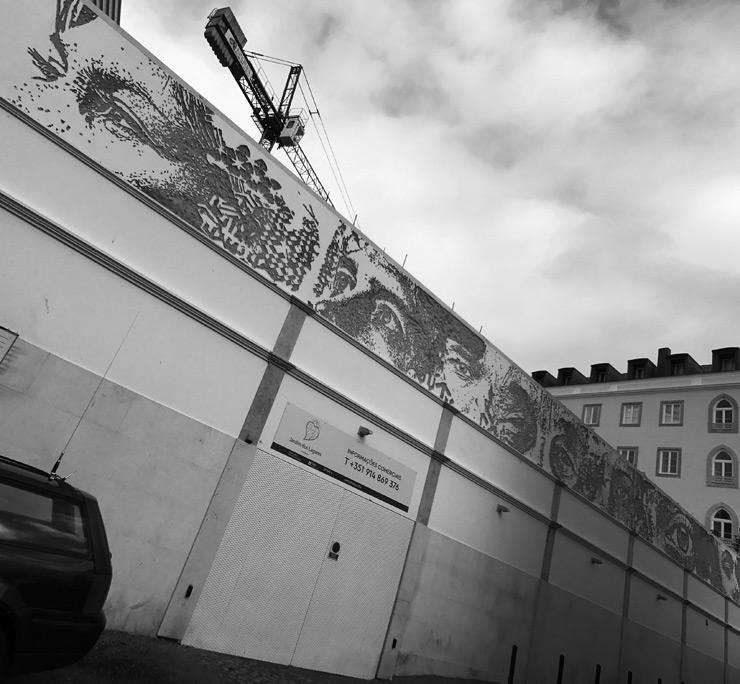
Vhils. Lisbon. December 2017. (photo © Jaime Rojo)
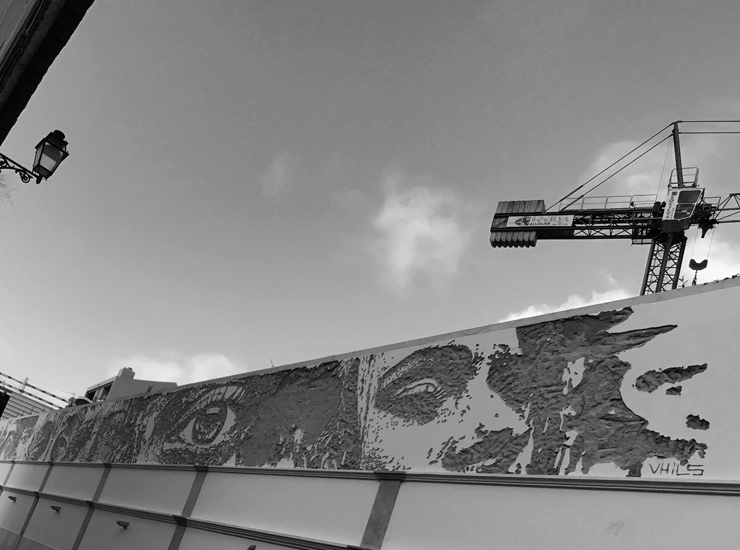
Vhils. Lisbon. December 2017. (photo © Jaime Rojo)
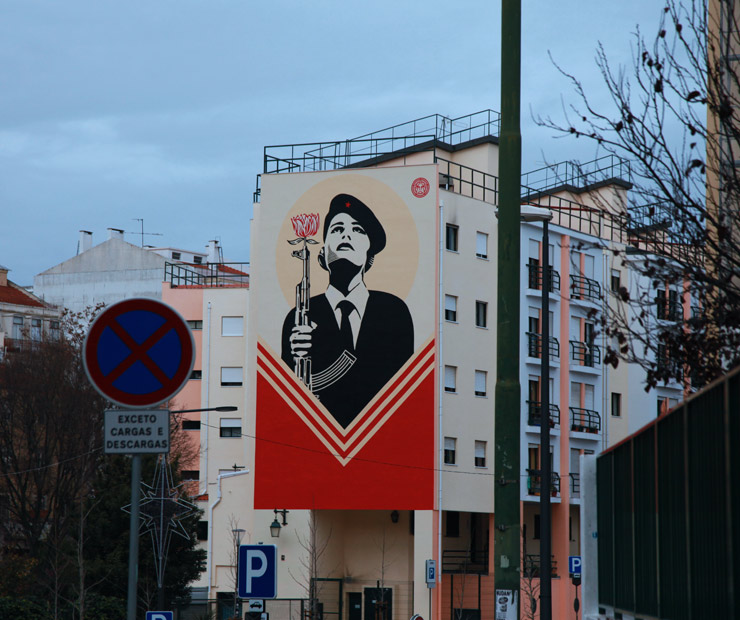
Shepard Fairey. Underdogs Gallery/Public Arts Program . Lisbon. December 2017. (photo © Jaime Rojo)
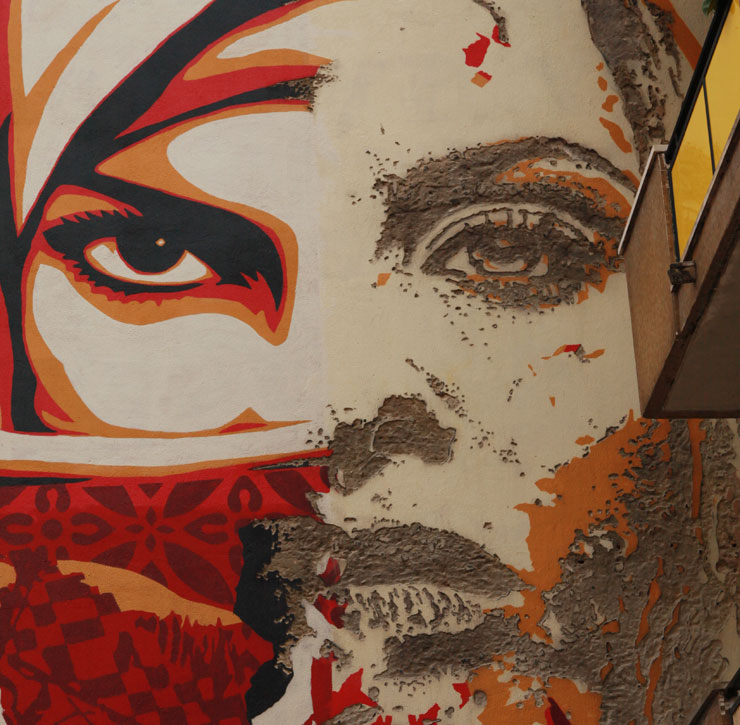
Shepard Fairey . VHILS. Detail. Underdogs Gallery/Public Arts Program . Lisbon. December 2017. (photo © Jaime Rojo)
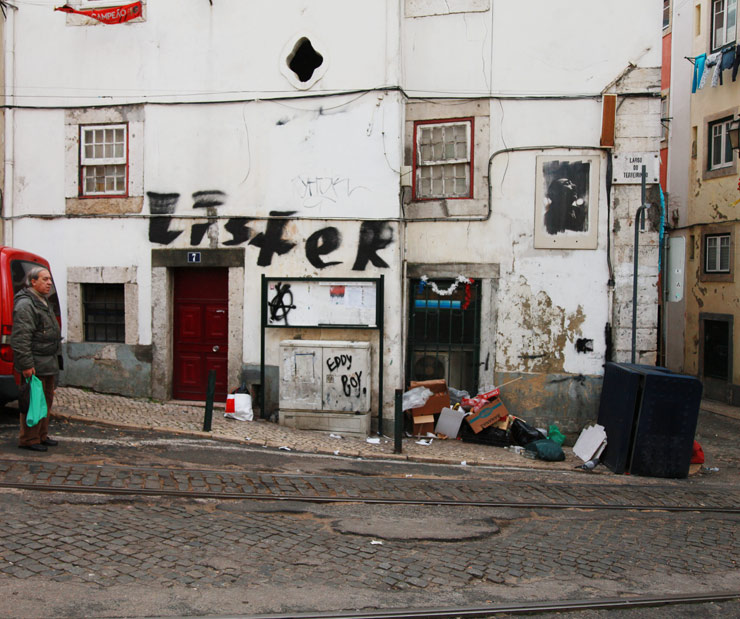
Lister. Lisbon. December 2017. (photo © Jaime Rojo)
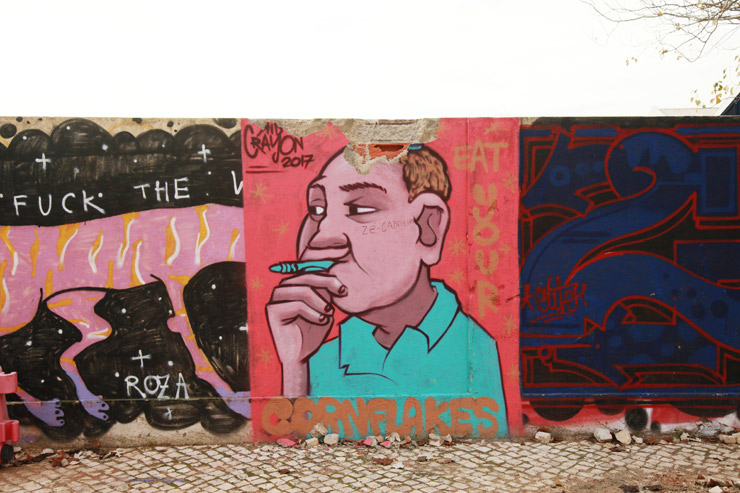
Crayon. Lisbon. December 2017. (photo © Jaime Rojo)
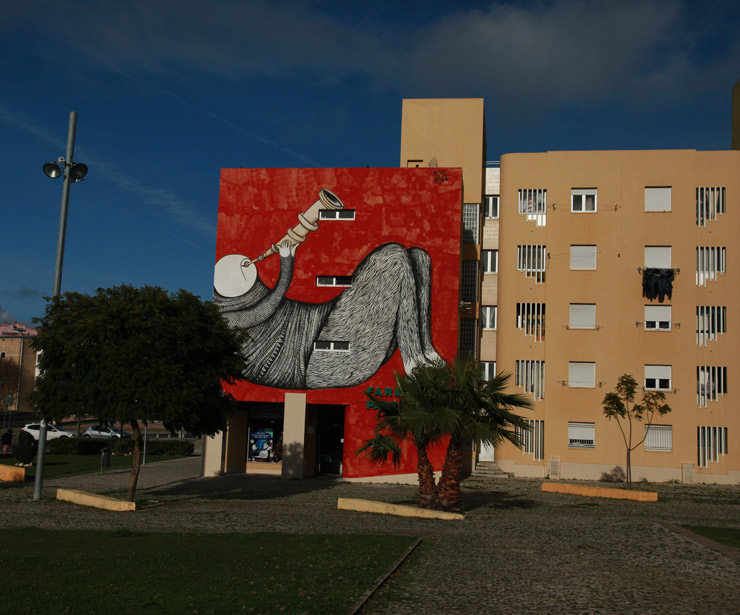
Andre Nada. Bairro Padre Cruz. Lisbon. December 2017. (photo © Jaime Rojo)
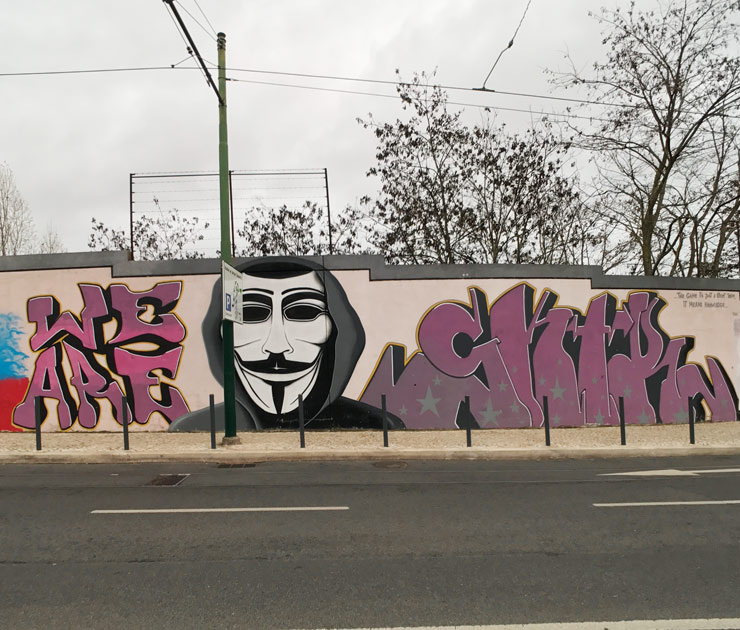
Unidentified Artist. Amoreiras Wall Of Fame. Lisbon. December 2017. (photo © Jaime Rojo)
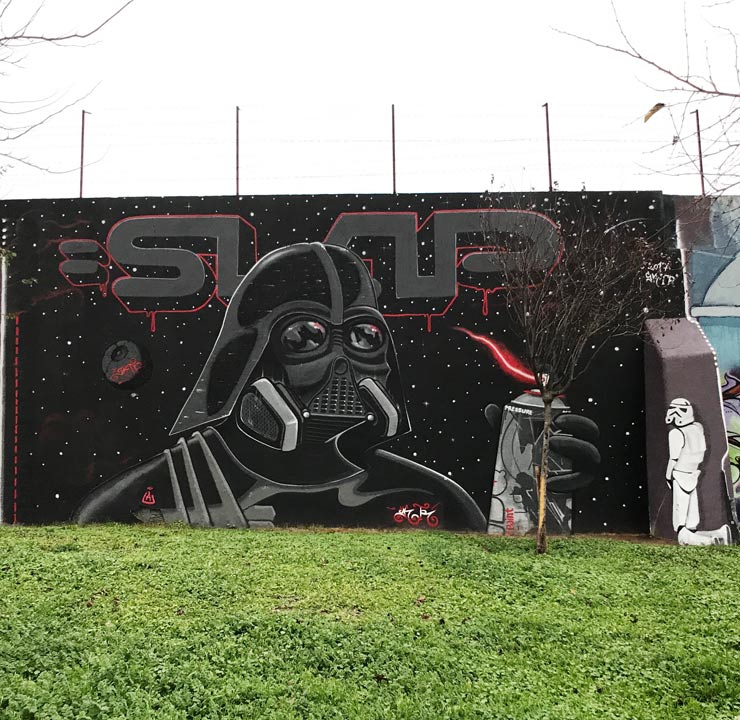
Slap. Amoreiras Wall Of Fame. Lisbon. December 2017. (photo © Jaime Rojo)
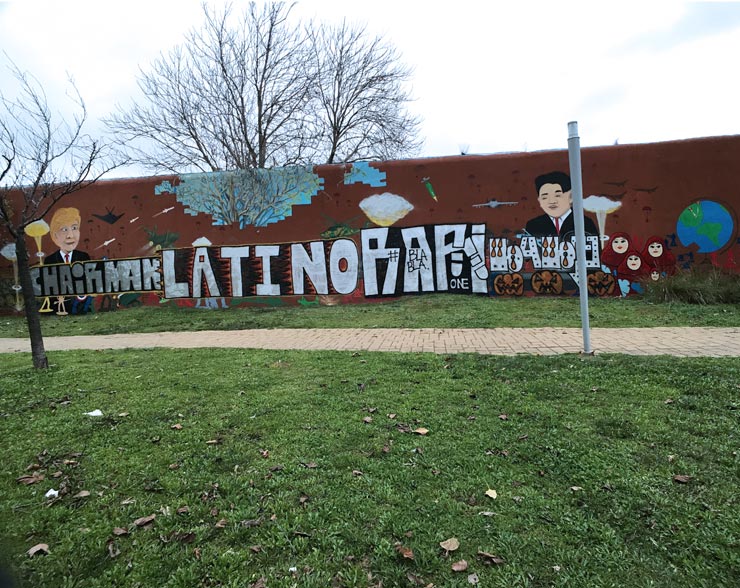
RariOne. Amoreiras Wall Of Fame. Lisbon. December 2017. (photo © Jaime Rojo)
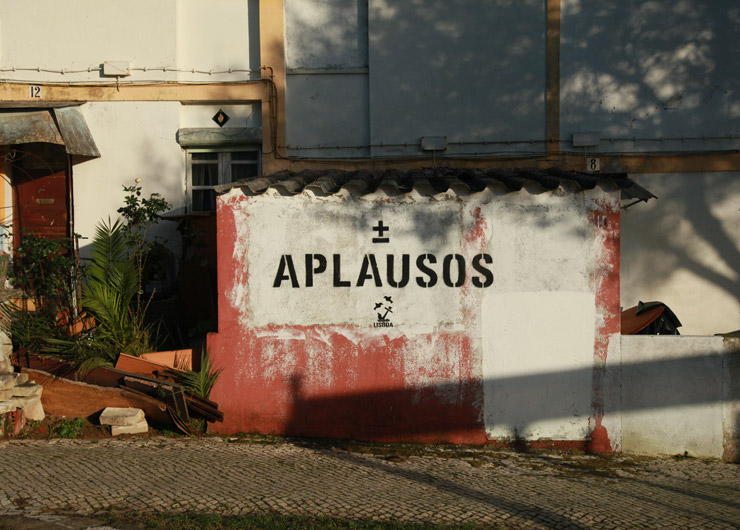
±MAISMENOS± Bairro Padre Cruz. Lisbon. December 2017. (photo © Jaime Rojo)
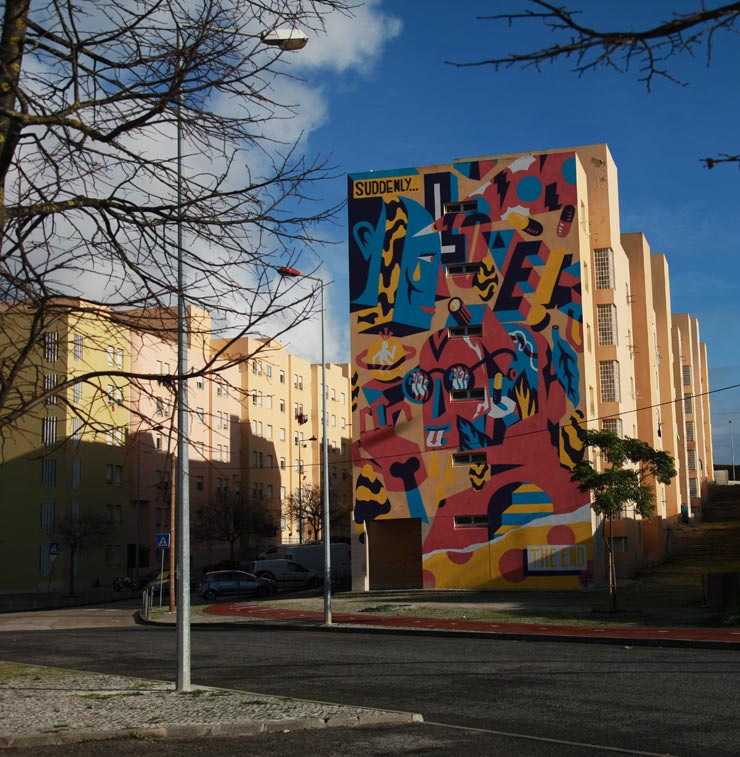
Corleone. Bairro Padre Cruz. Underdogs Gallery/Public Arts Program . Lisbon. December 2017. (photo © Jaime Rojo)
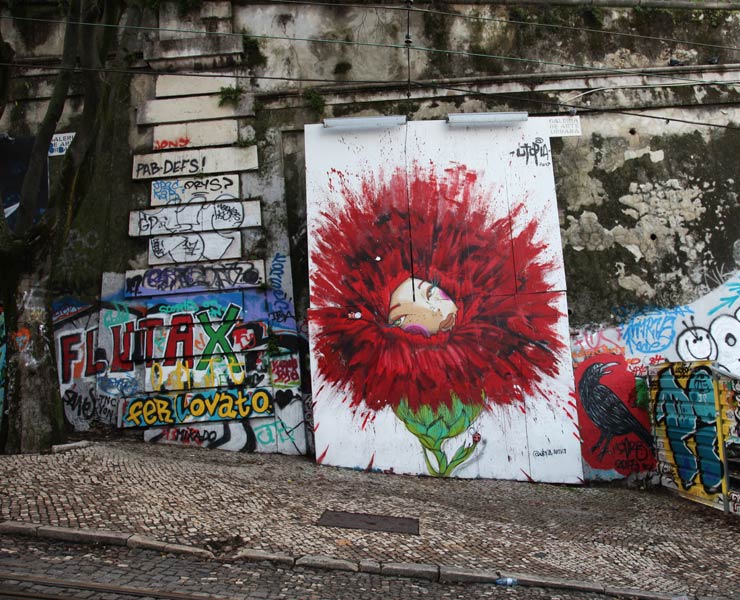
Utopia. Galeria De Arte Urbana. Lisbon. December 2017. (photo © Jaime Rojo)
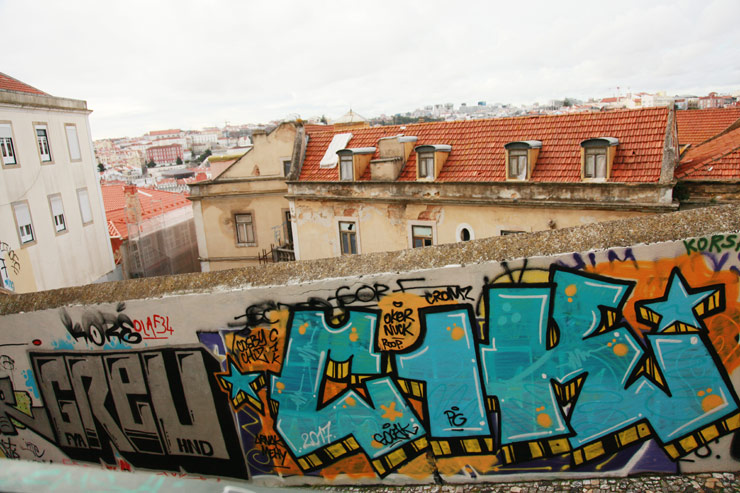
Tags. Lisbon. December 2017. (photo © Jaime Rojo)
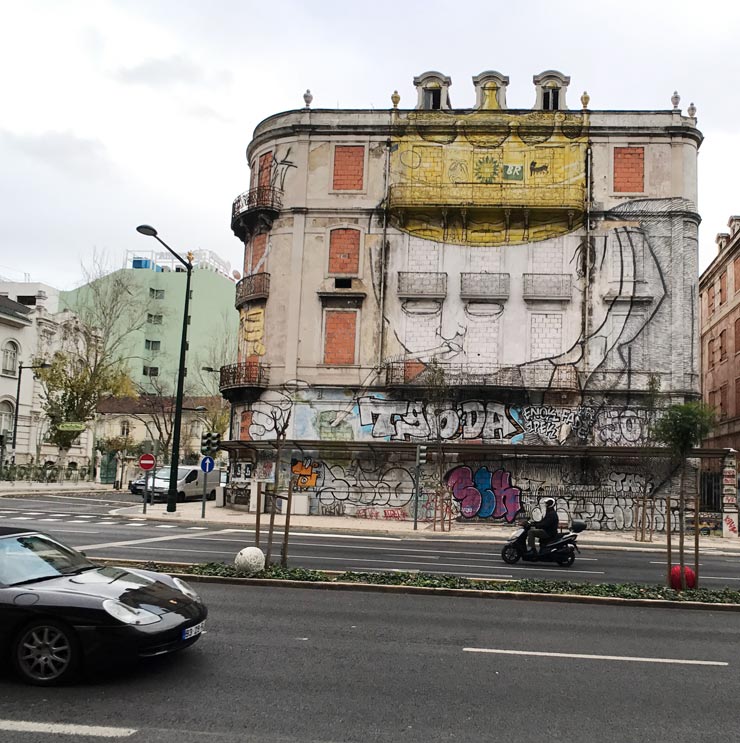
Blu. Lisbon. Crono Project. December 2017. (photo © Jaime Rojo)
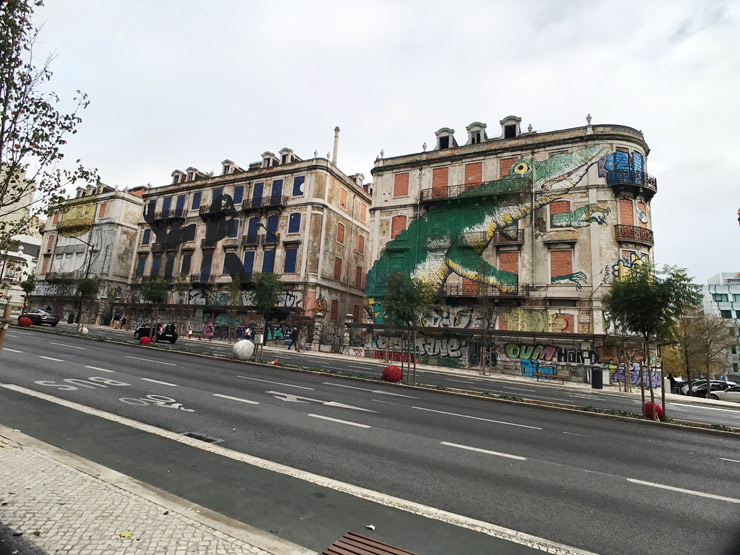
Blu . Sam3 . Erica Il Cane. Crono Project. Lisbon. December 2017. (photo © Jaime Rojo)
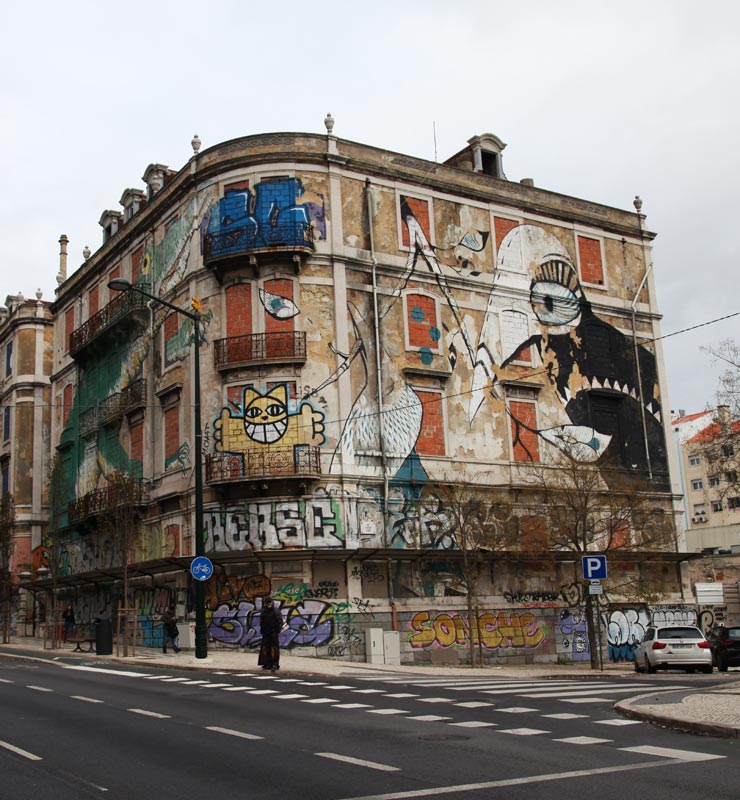
Erica Il Cane . Lucy McLauchlan . M-Chat. Crono Project. Lisbon. December 2017. (photo © Jaime Rojo)
With gratitude to Pedro Soares Neves and to Raul Carvalho, General Manager of Underdogs Gallery for taking the time to talk to us, for sharing their knowledge and insights with us and for showing us around Lisbon.
BSA in Lisbon comes to you courtesy BSA in Partnership with Urban Nation (UN).

This is the first of two articles with BSA in Lisbon in collaboration with UN Berlin, it was originally published on the Urban Nation website, and the project is funded in part with the support of Urban Nation Museum for Urban Contemporary Art (UN) in Berlin.
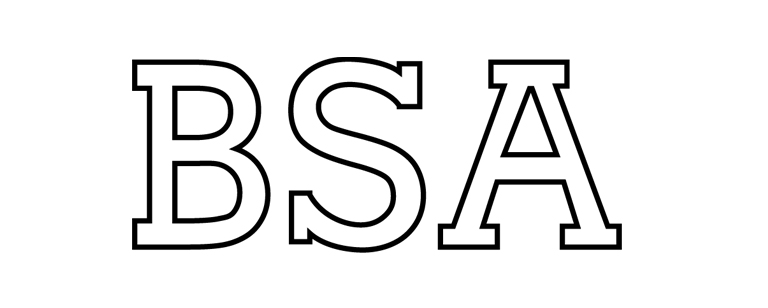 BROOKLYN STREET ART LOVES YOU MORE EVERY DAY
BROOKLYN STREET ART LOVES YOU MORE EVERY DAY
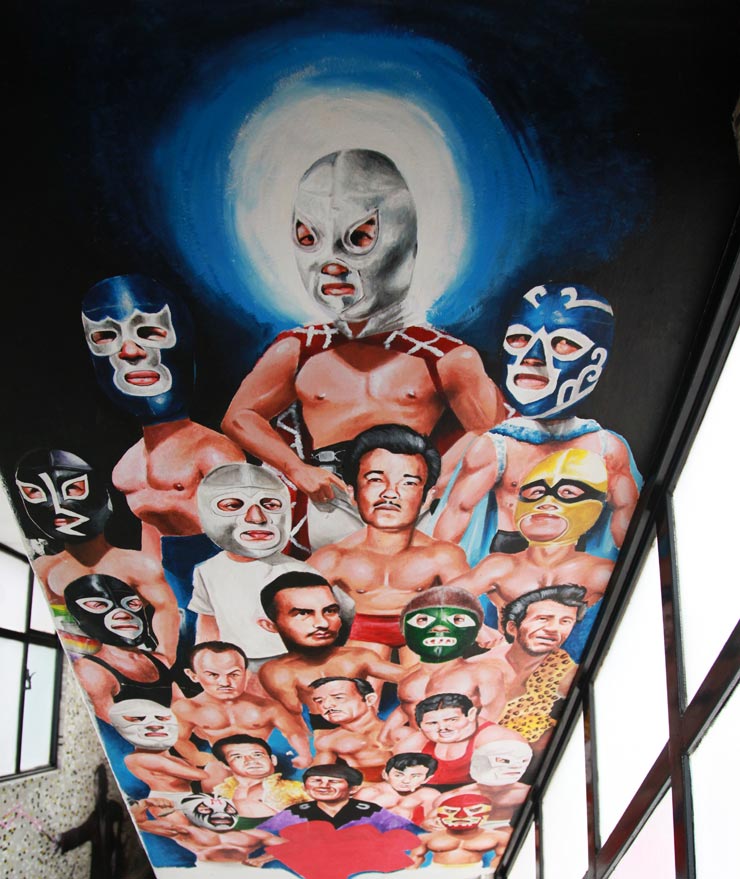

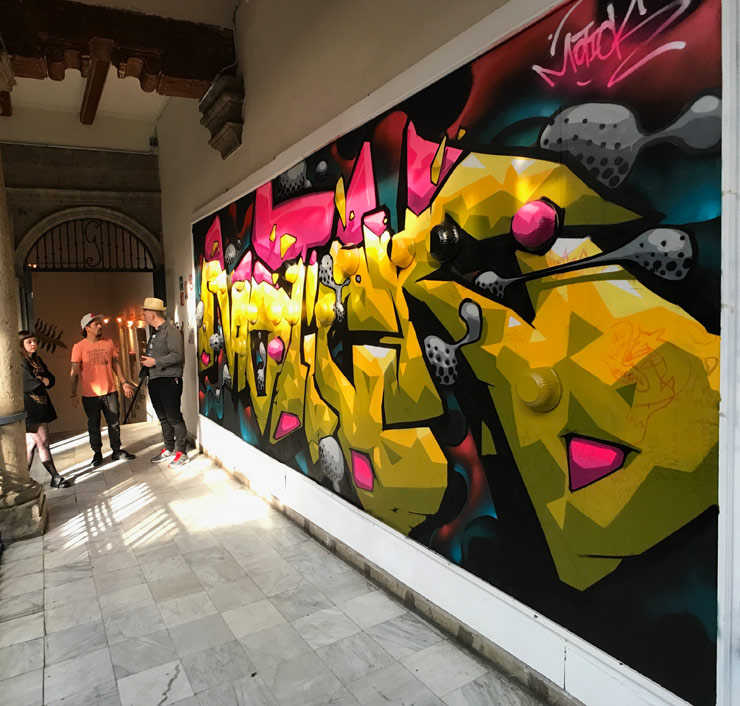
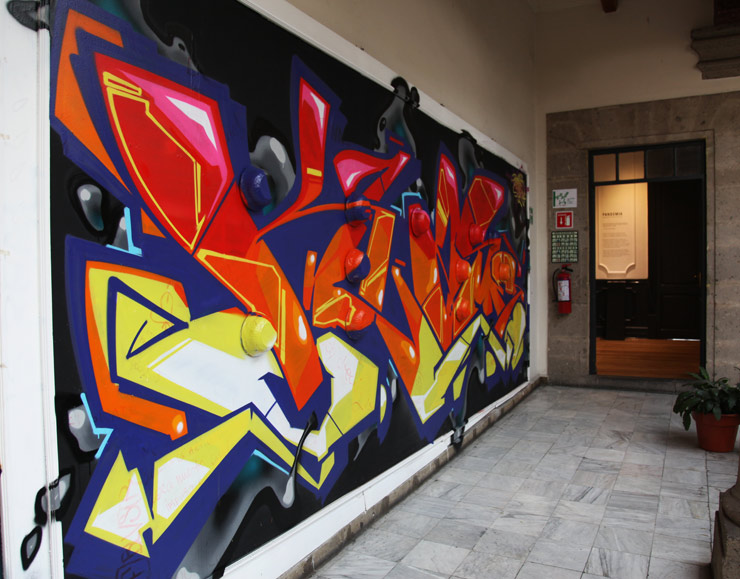
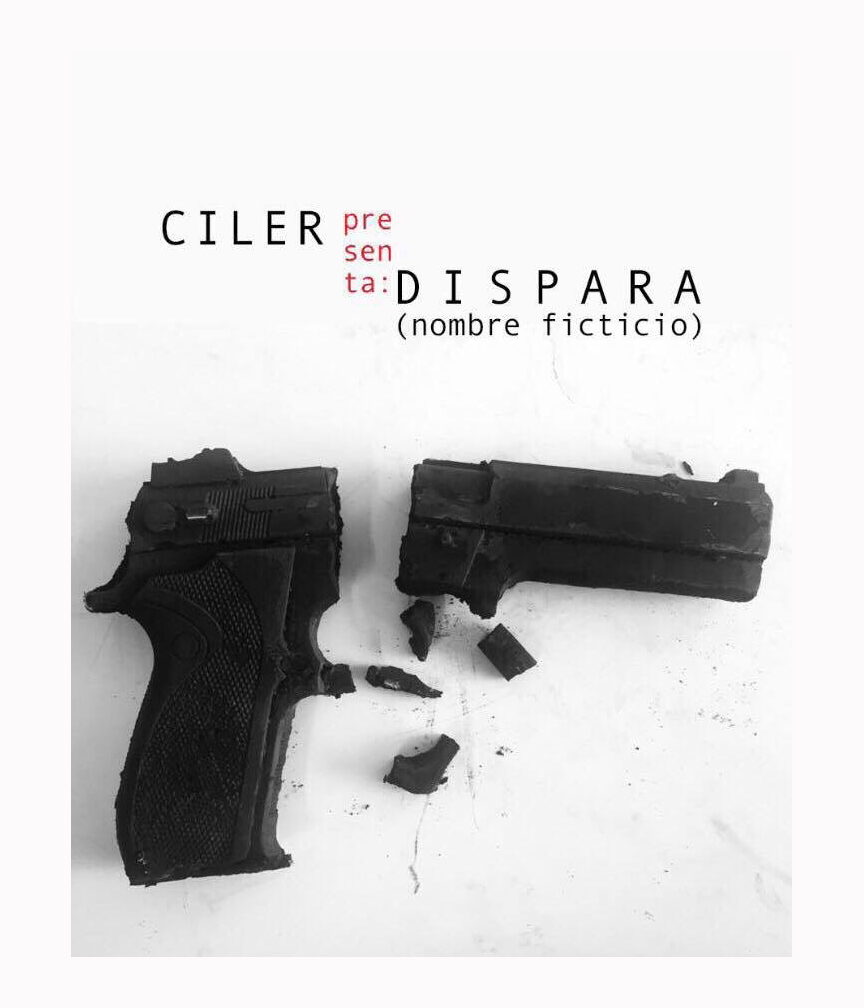 “One of the things that excites us the most is the idea of an exhibition as more of a ‘happening’. We want there to be a part that is graphic and a part that is an experience,” he says as he leads us to a separate white walled colonial space where handguns are made from molds in black wax and guests at the opening scrawled missives across makeshift walls related to violence in society. “It’s meant as an interactive critique,” he says, “these are guns that shoot ideas.”
“One of the things that excites us the most is the idea of an exhibition as more of a ‘happening’. We want there to be a part that is graphic and a part that is an experience,” he says as he leads us to a separate white walled colonial space where handguns are made from molds in black wax and guests at the opening scrawled missives across makeshift walls related to violence in society. “It’s meant as an interactive critique,” he says, “these are guns that shoot ideas.”